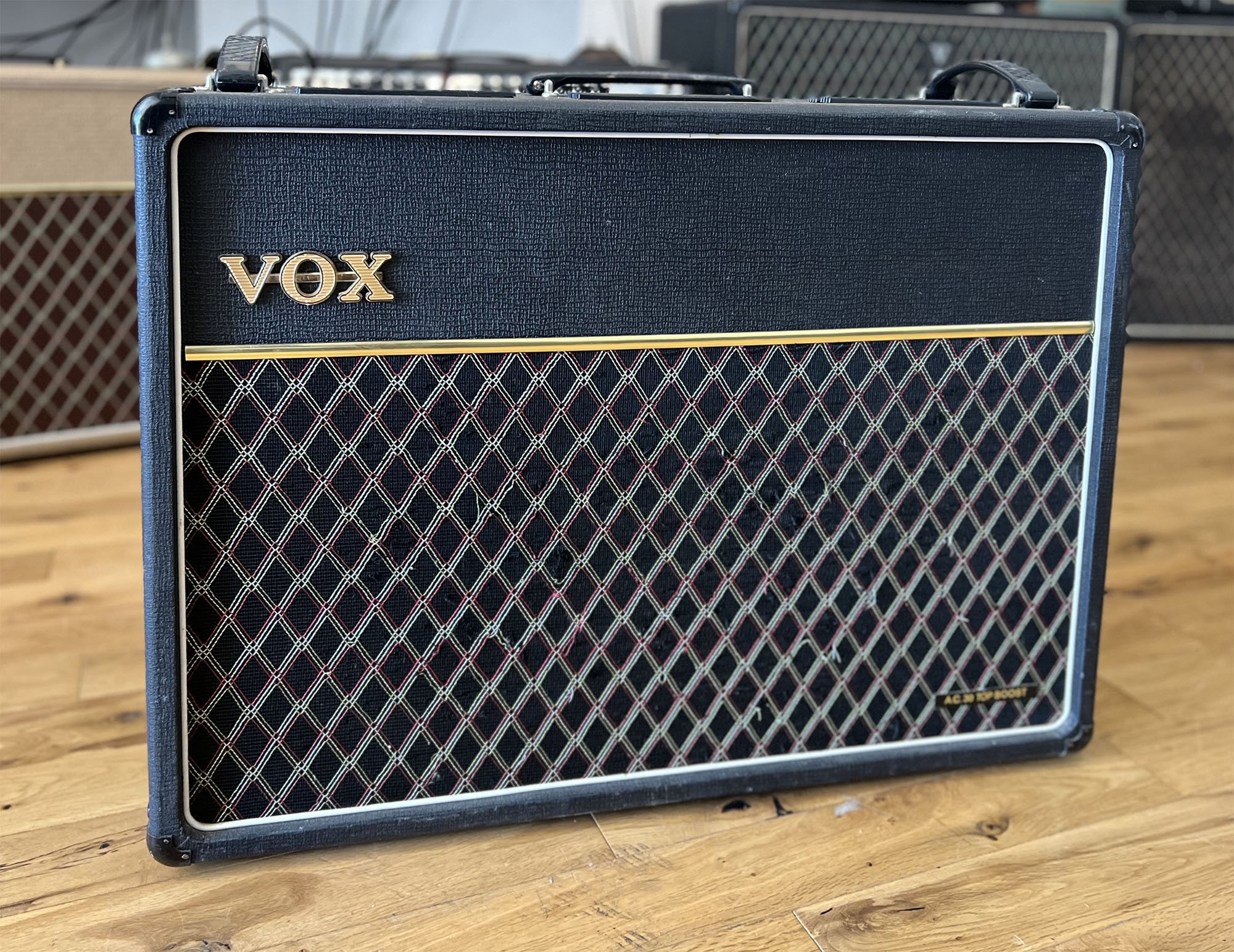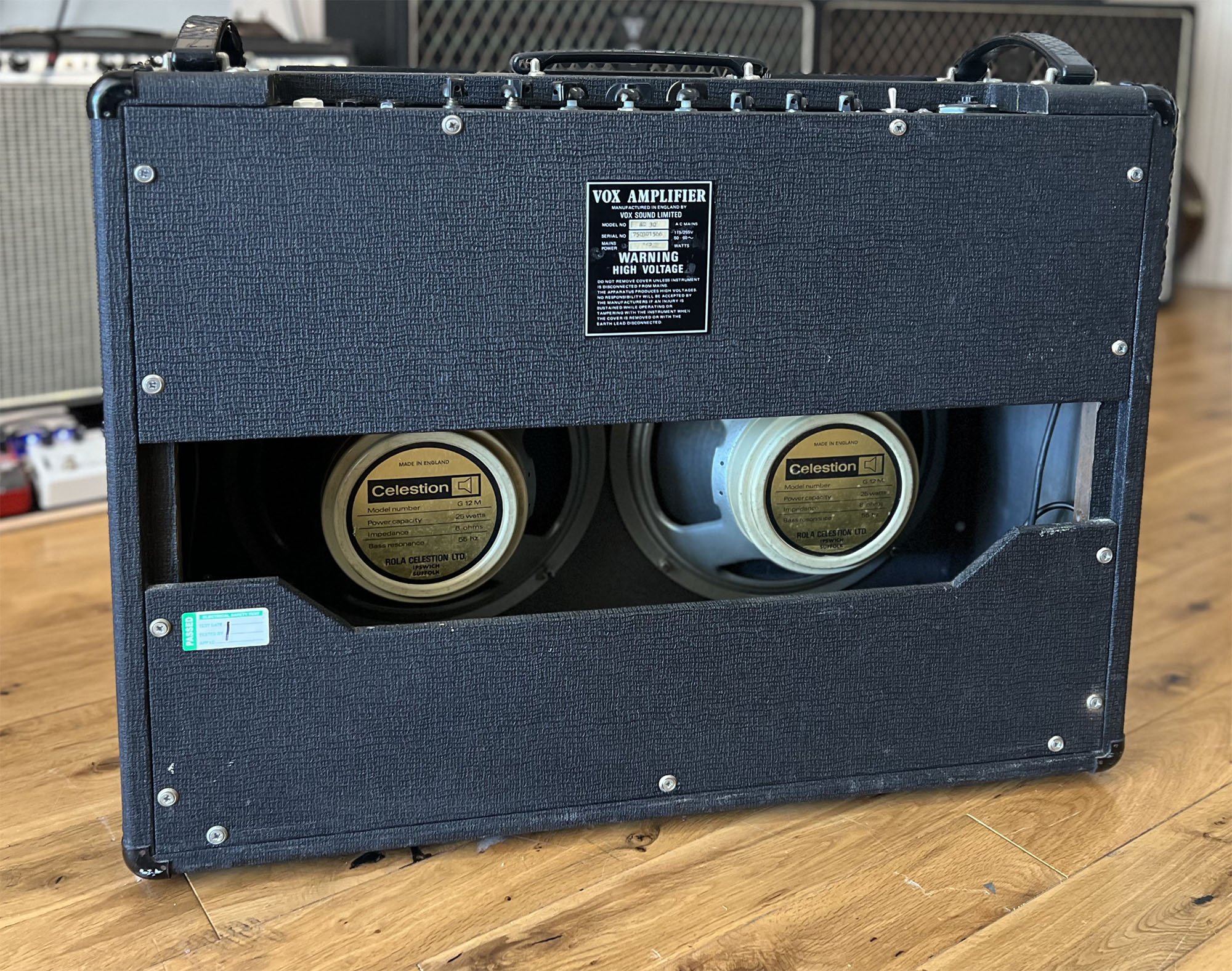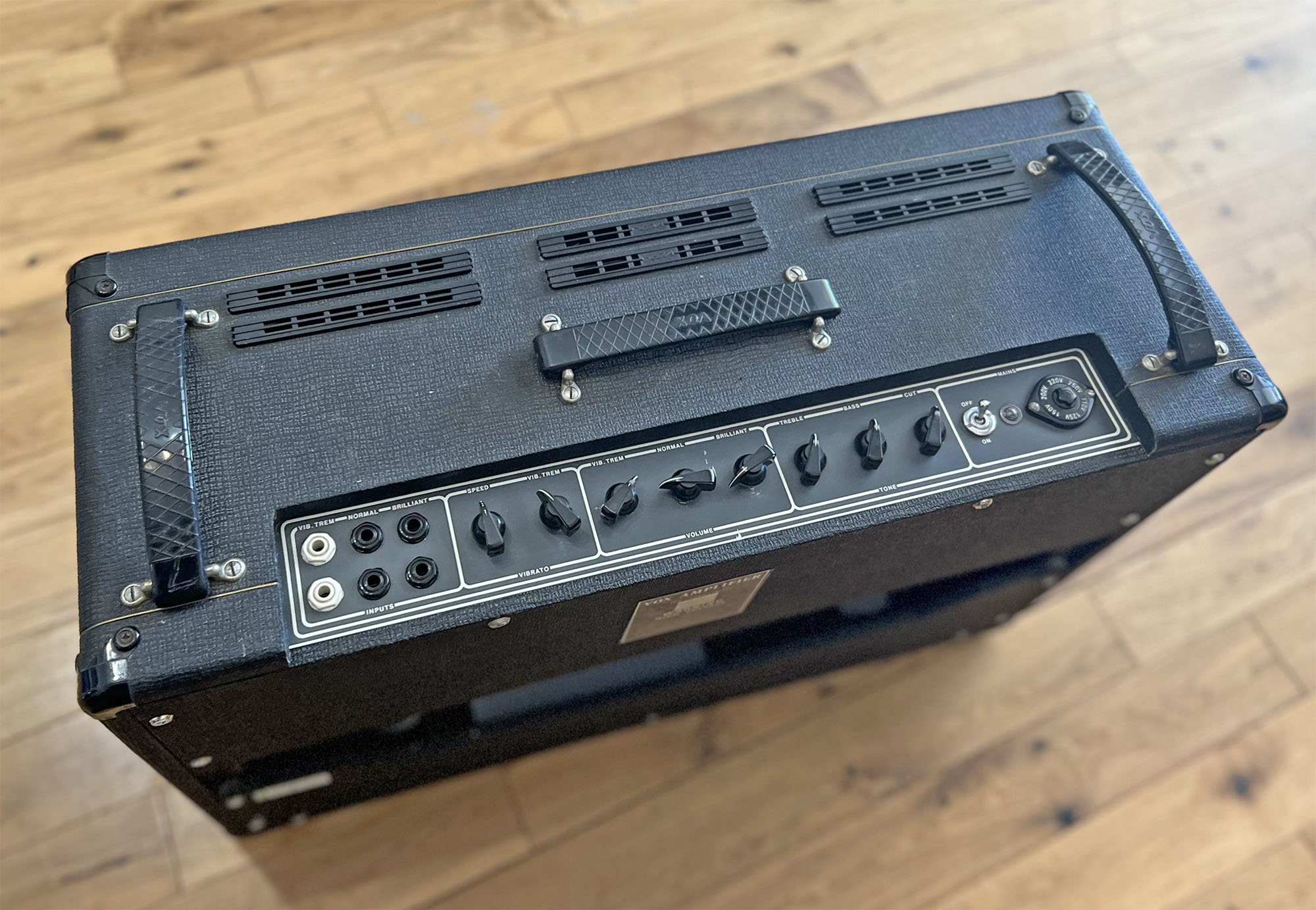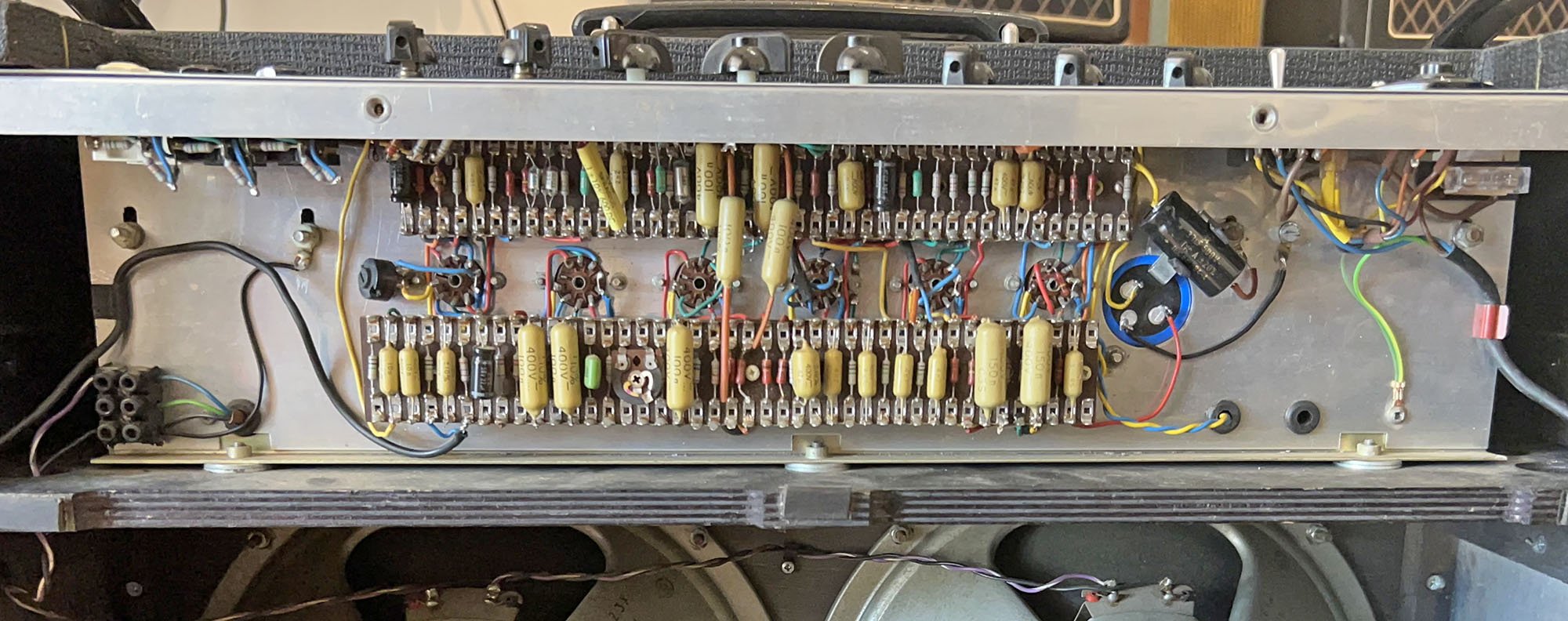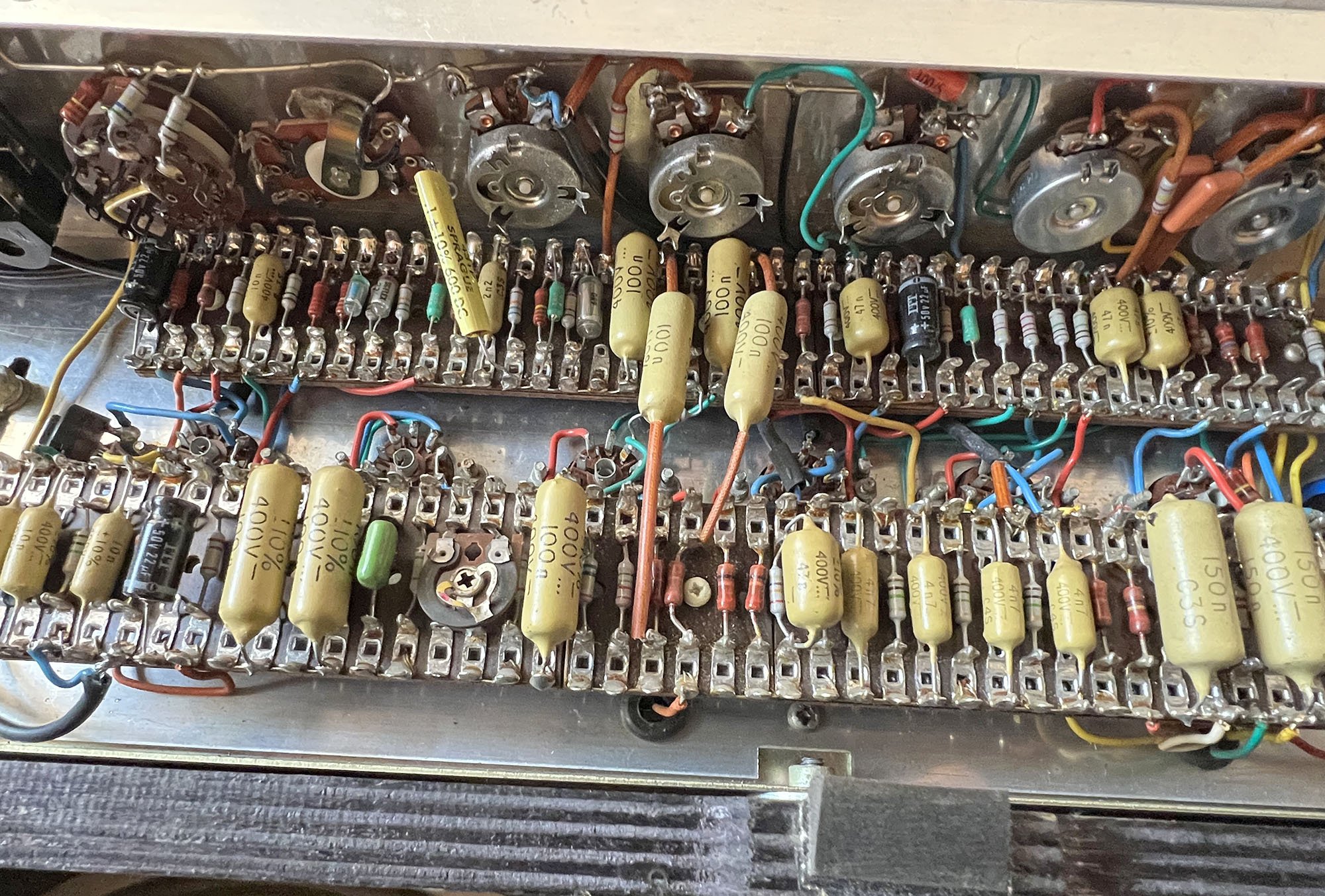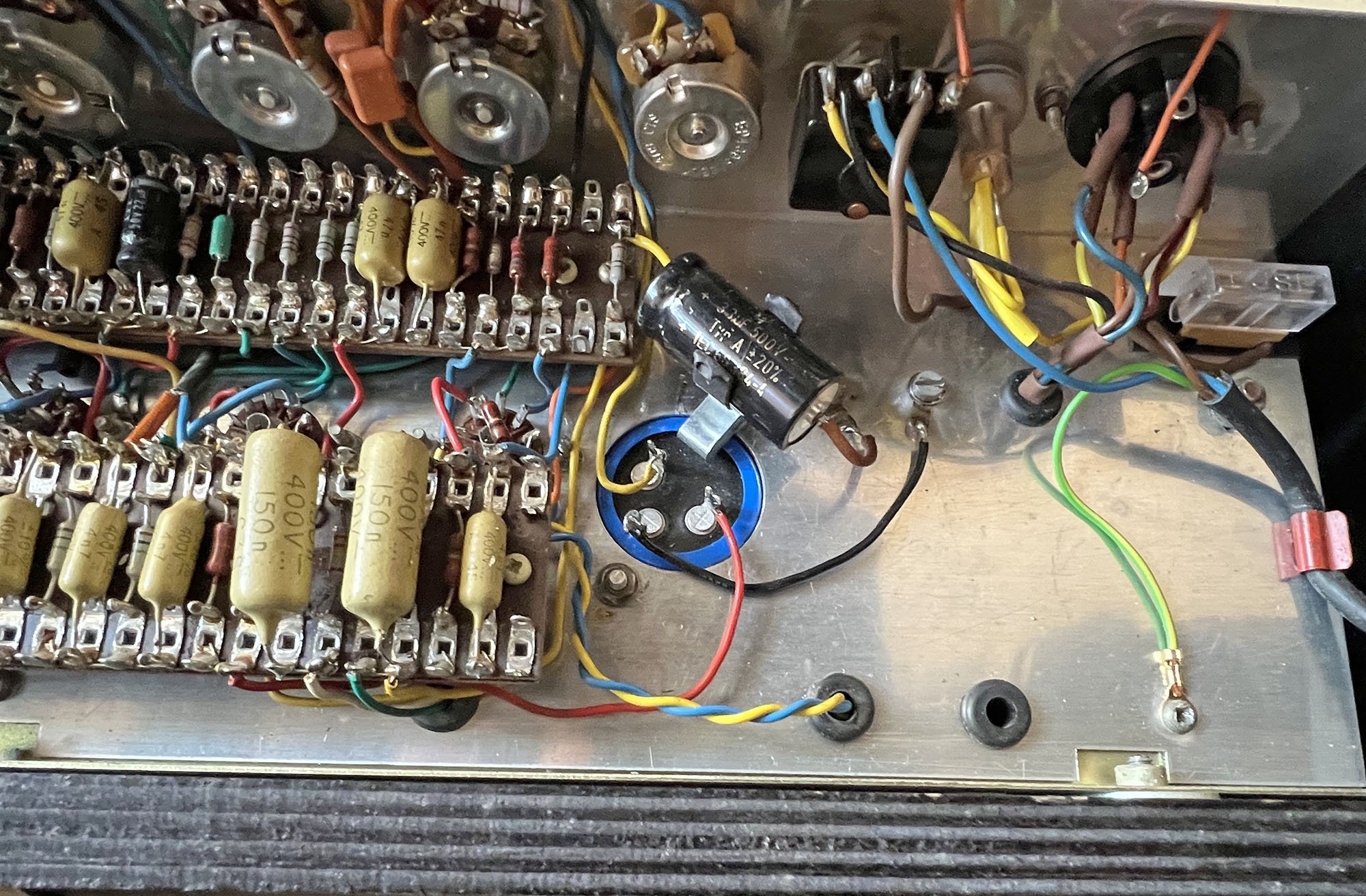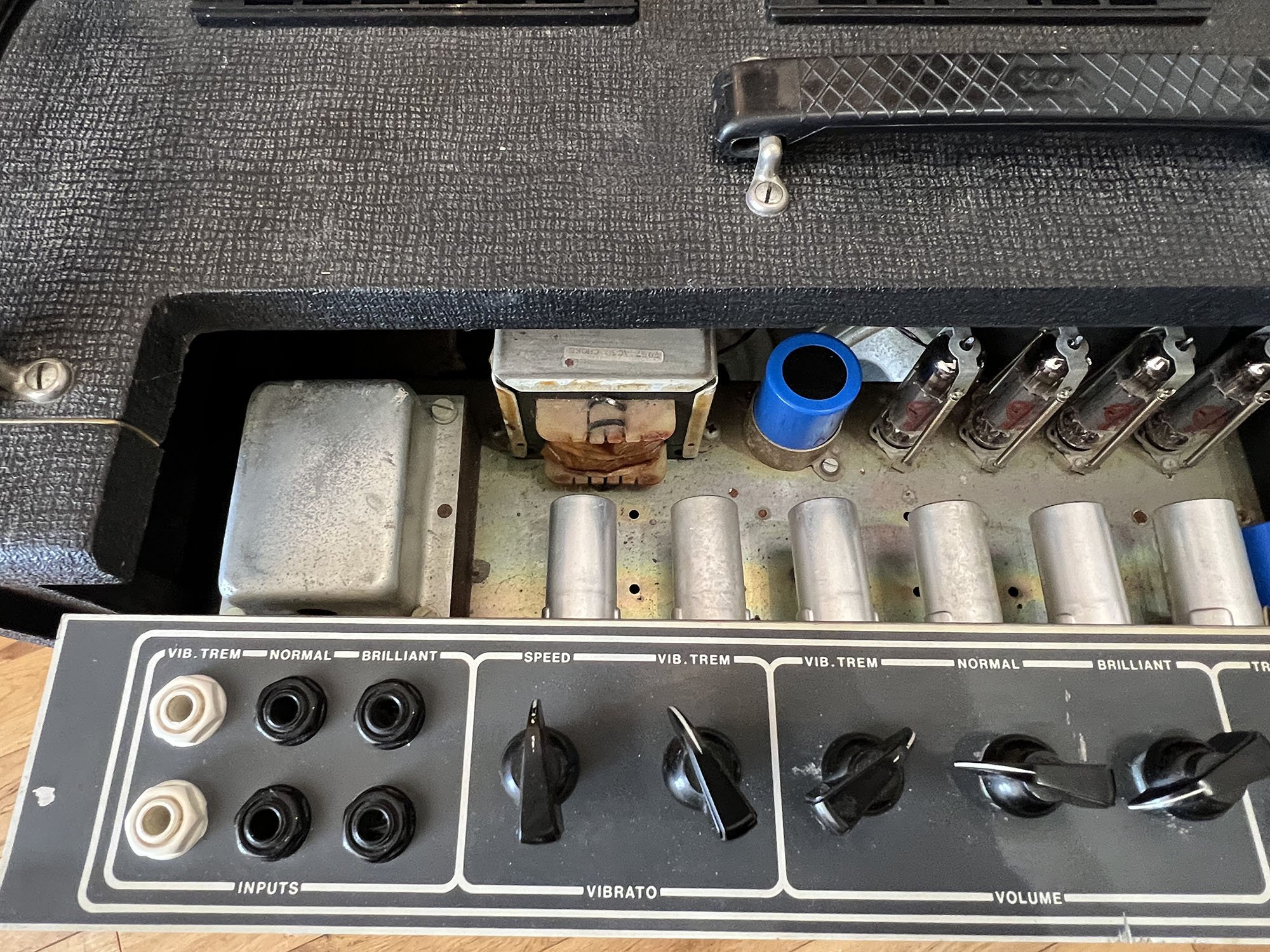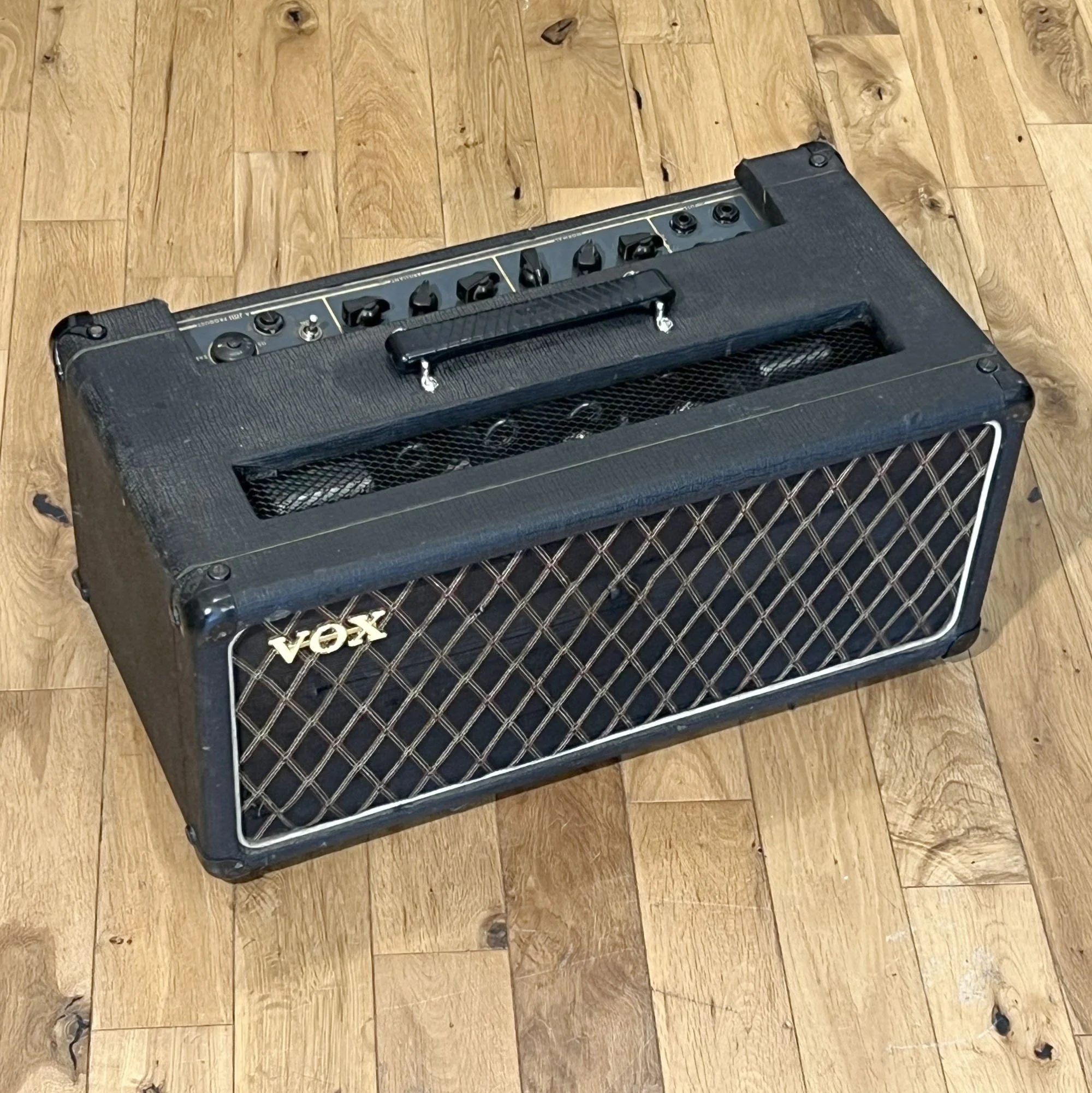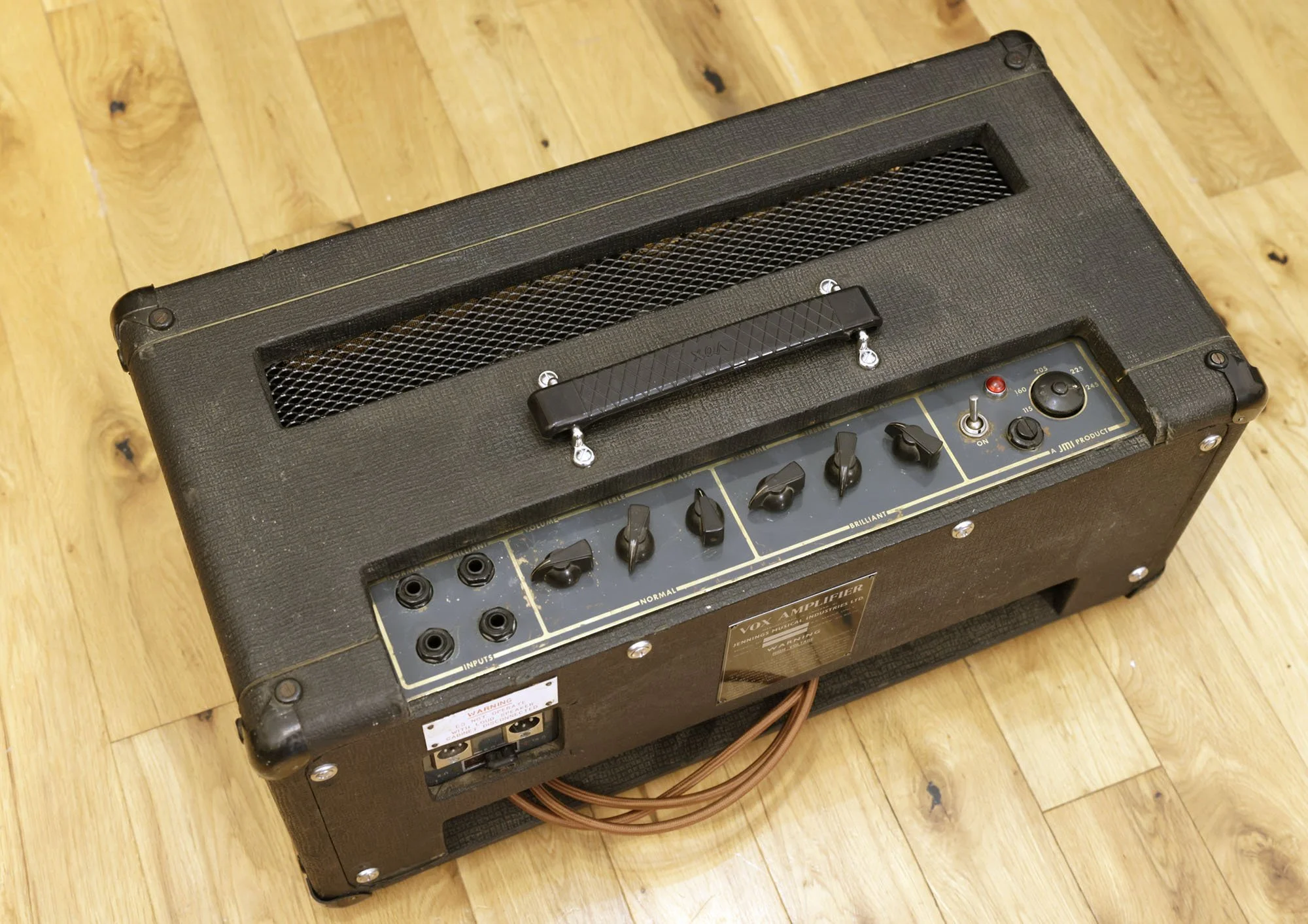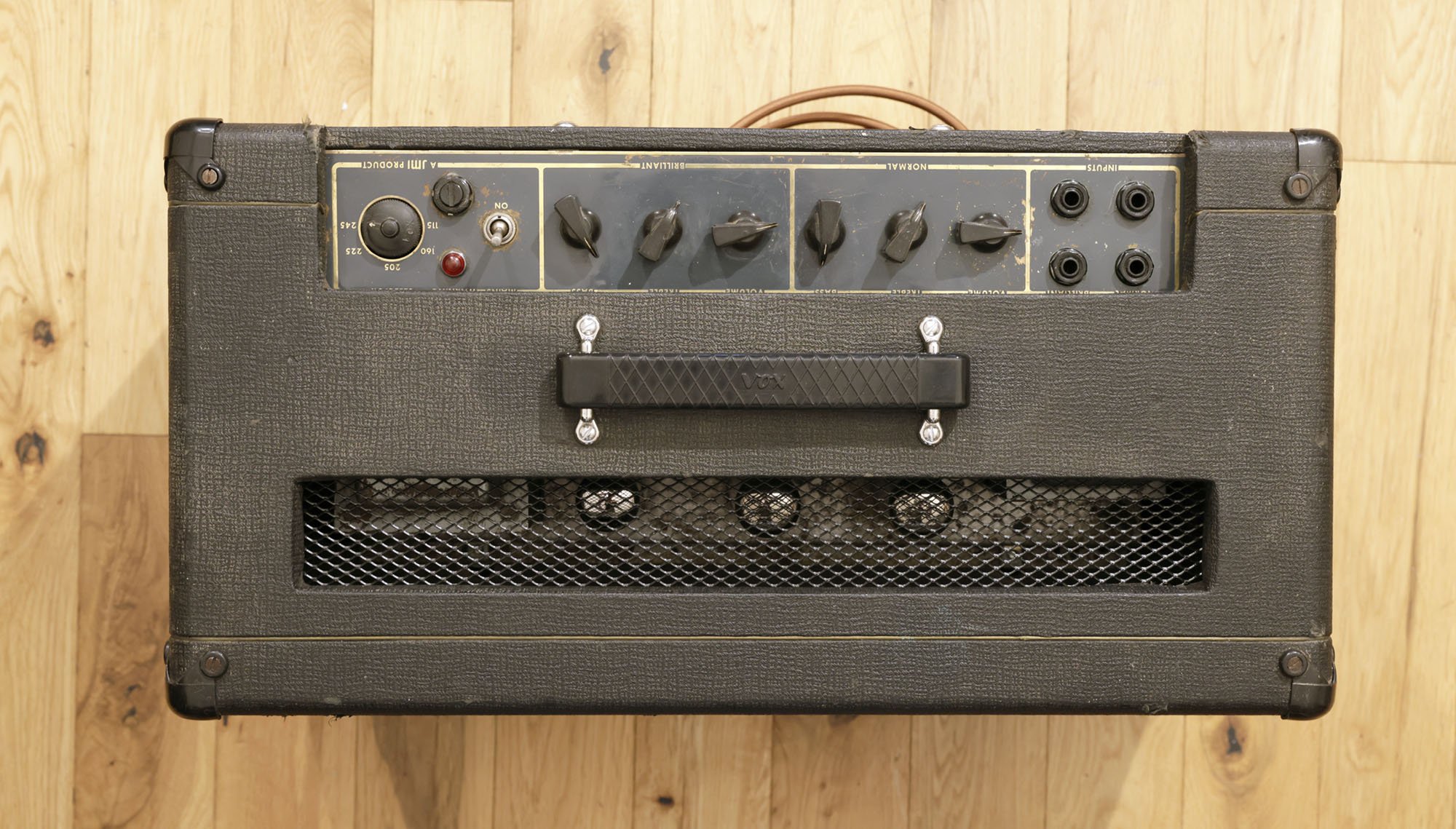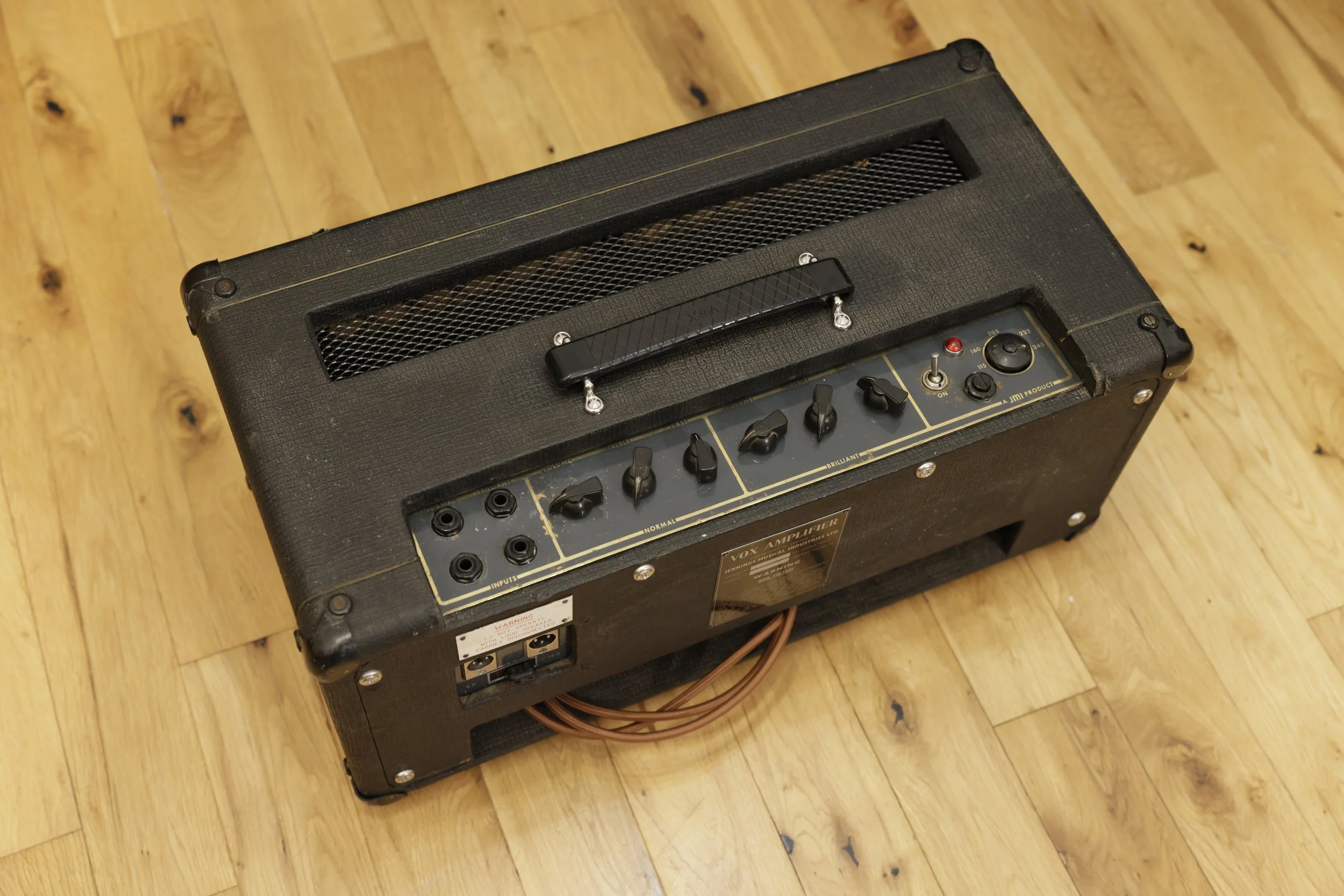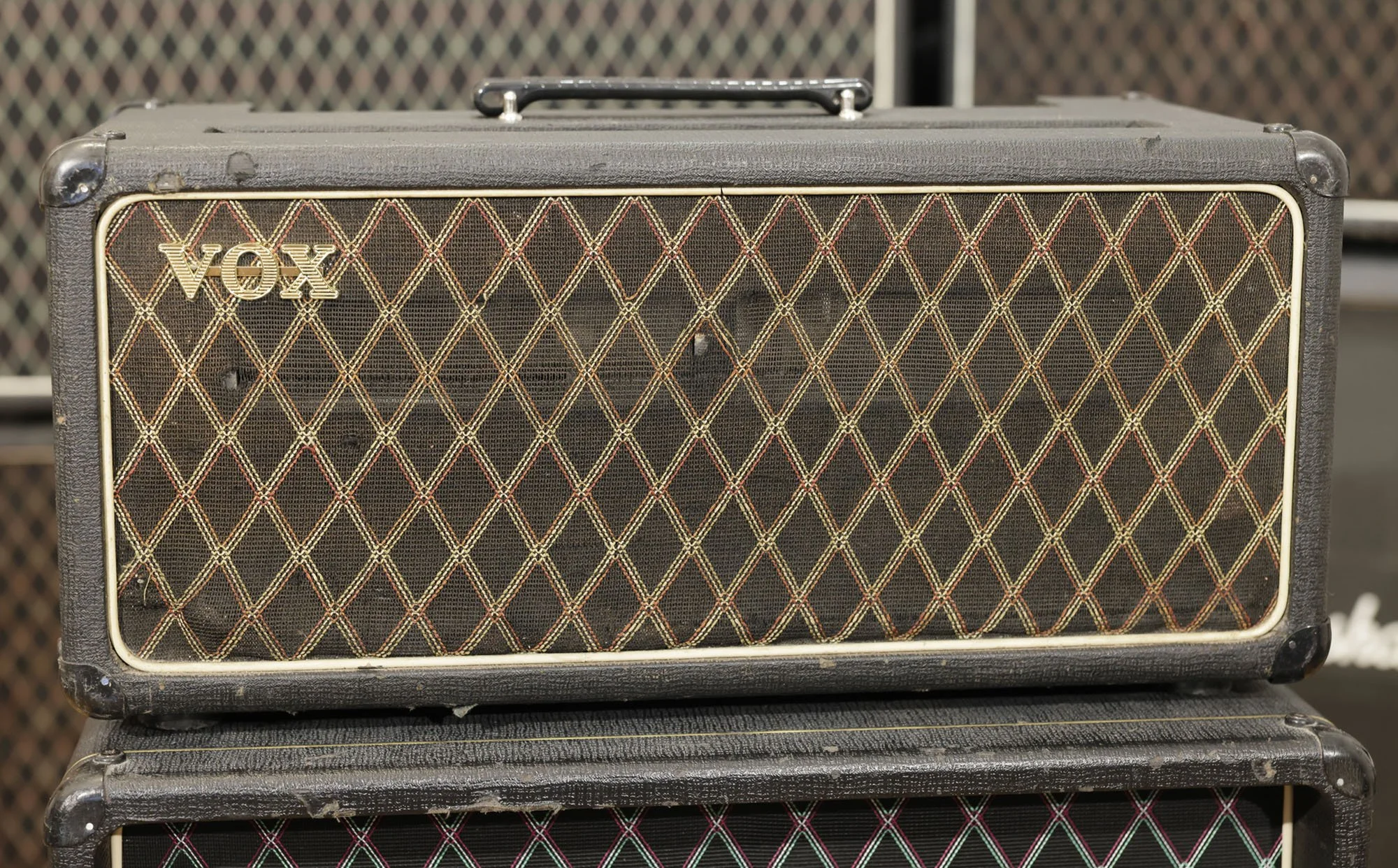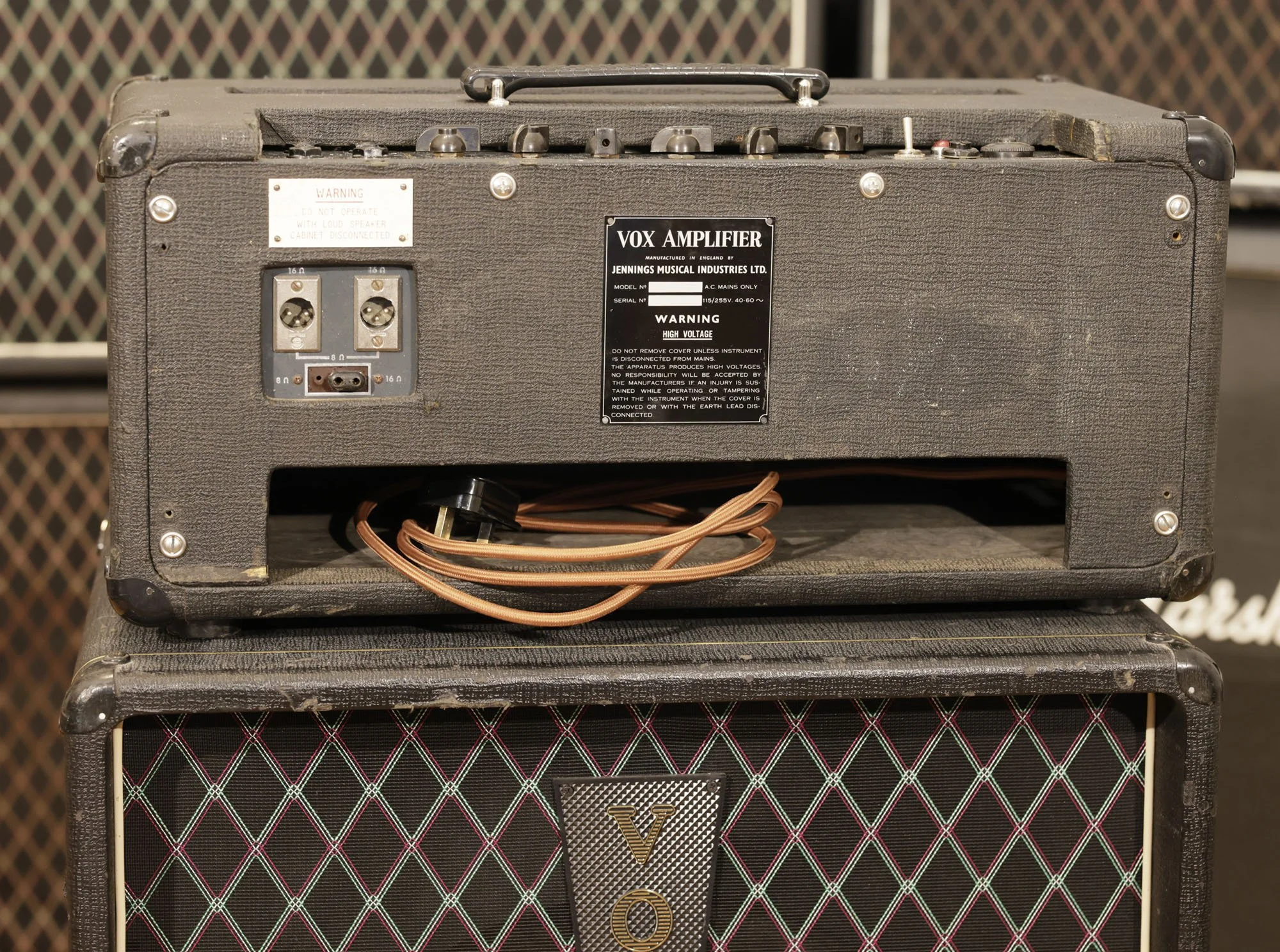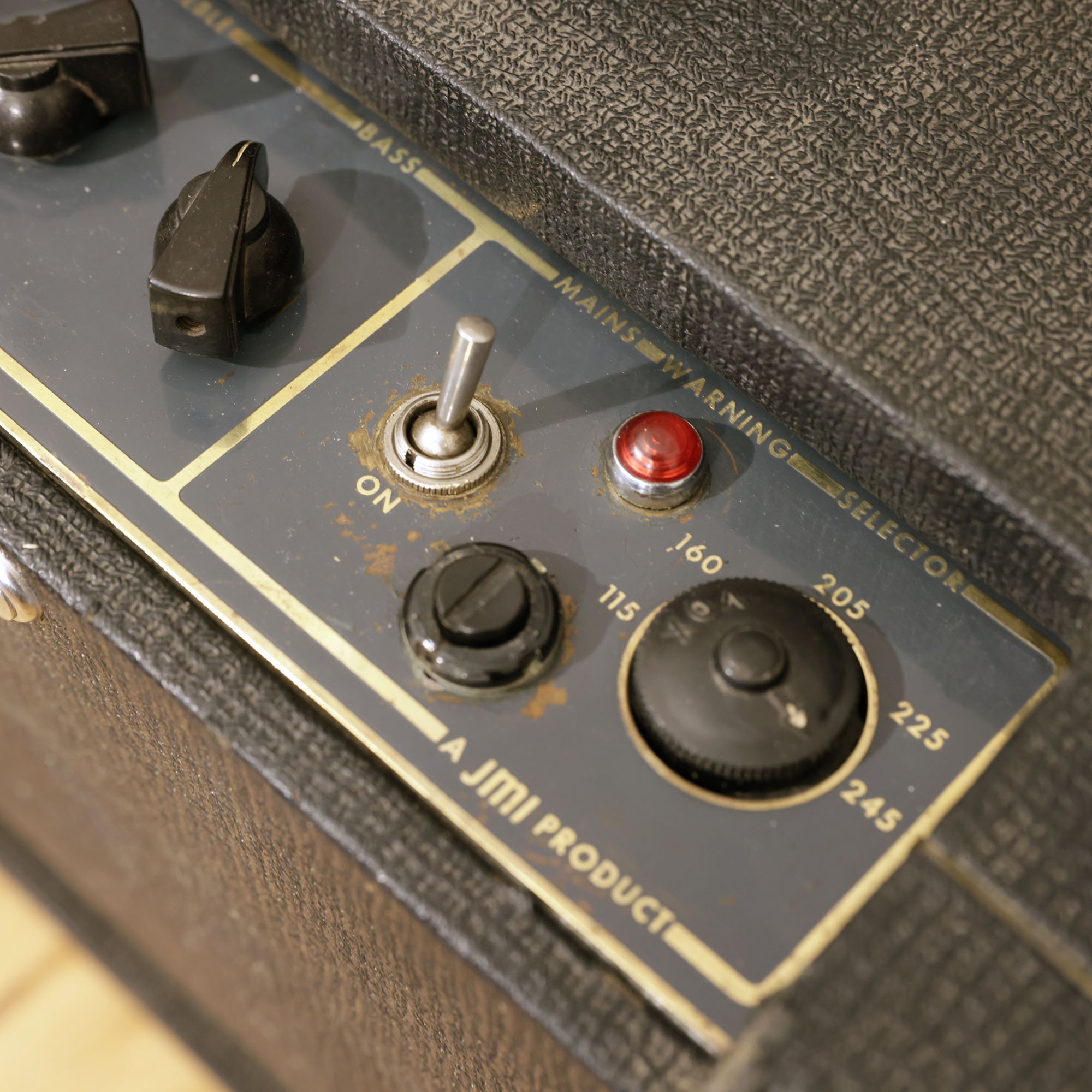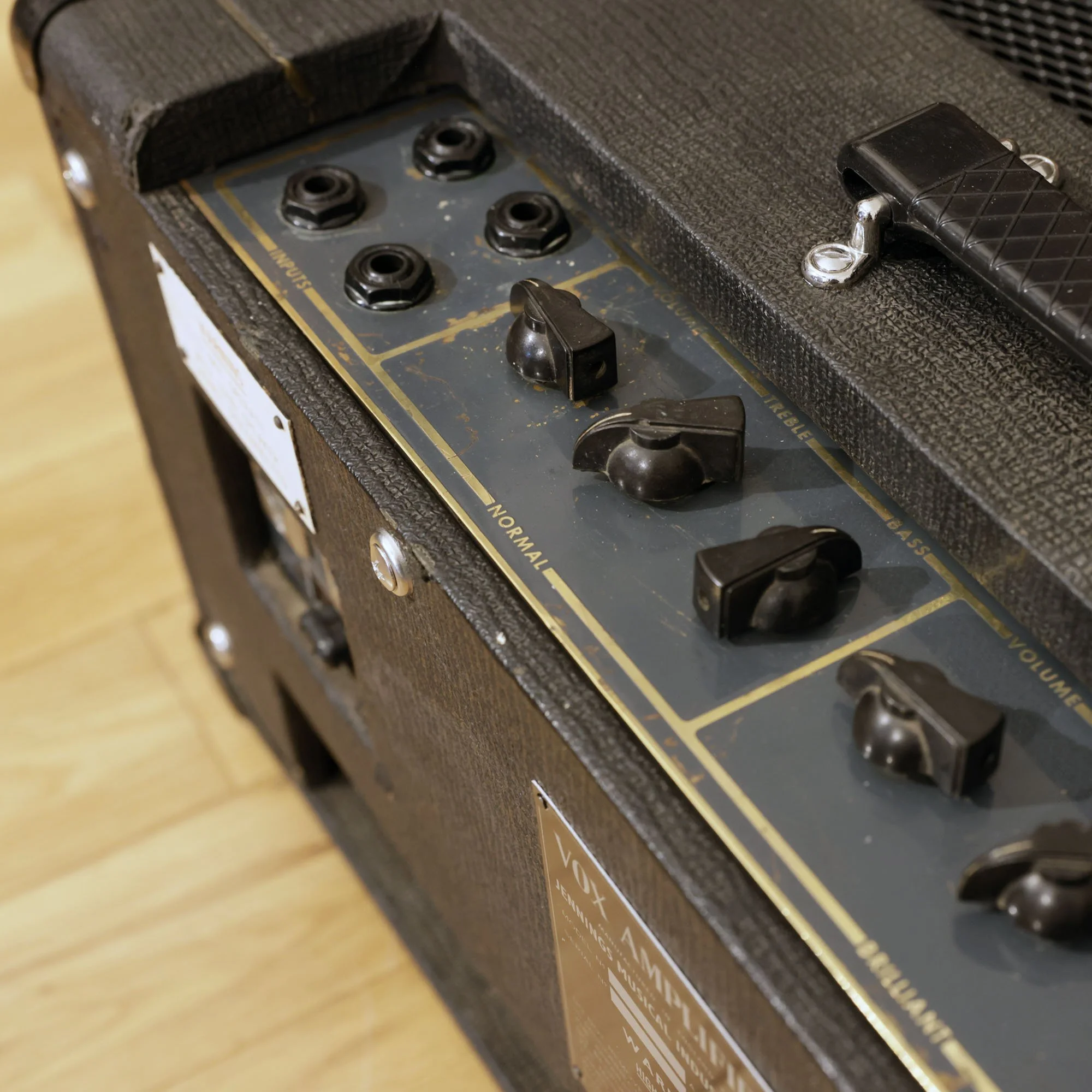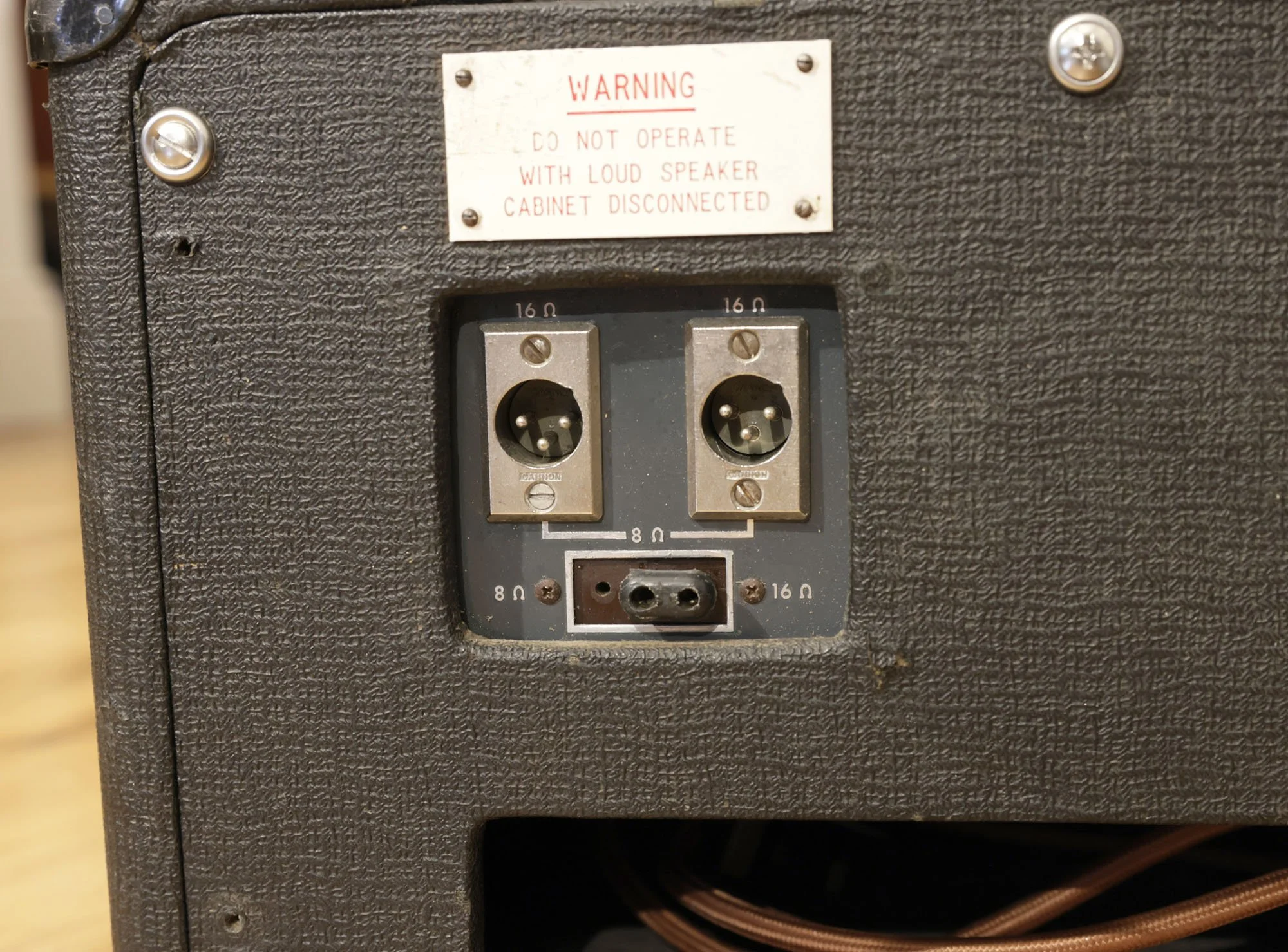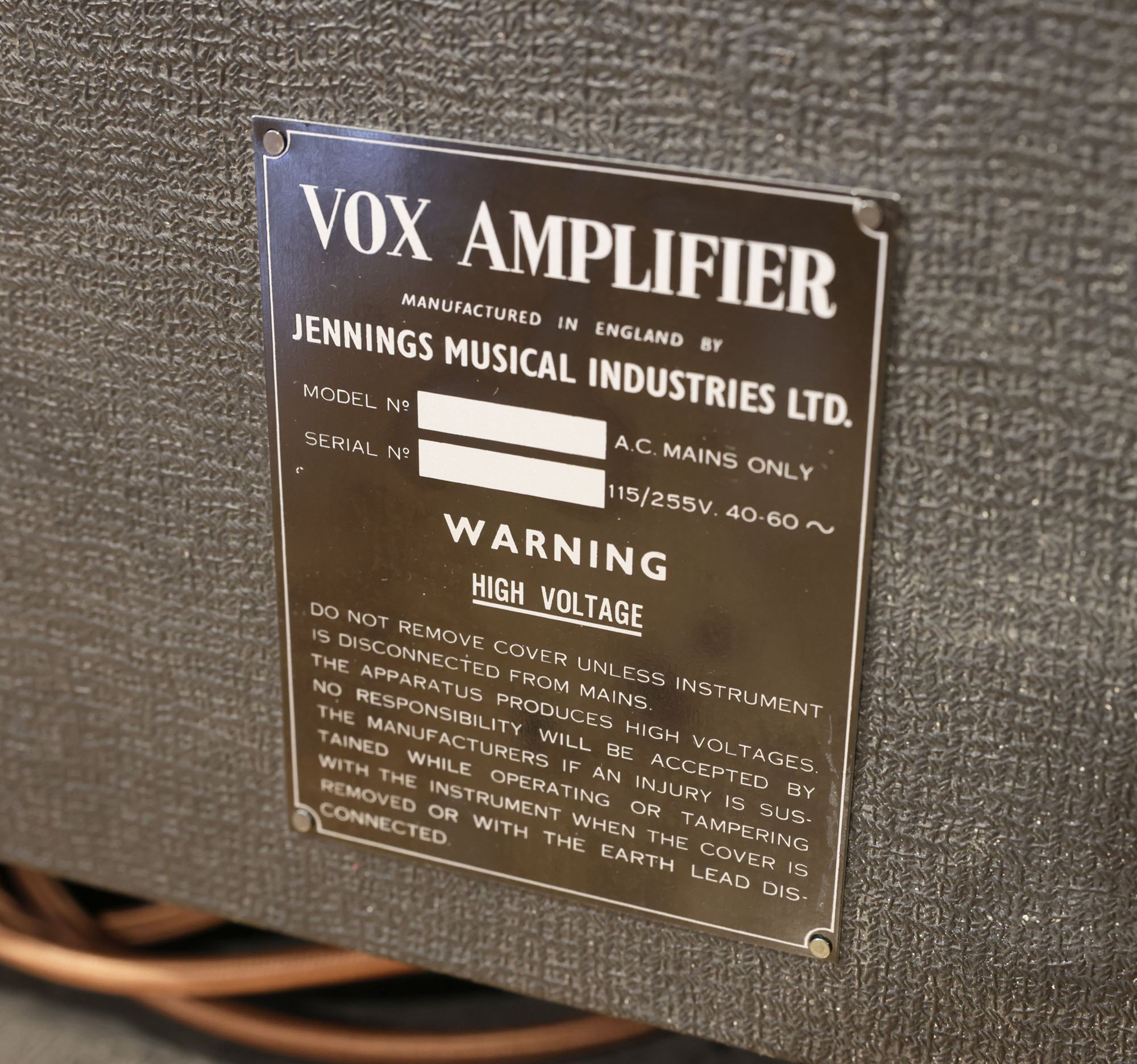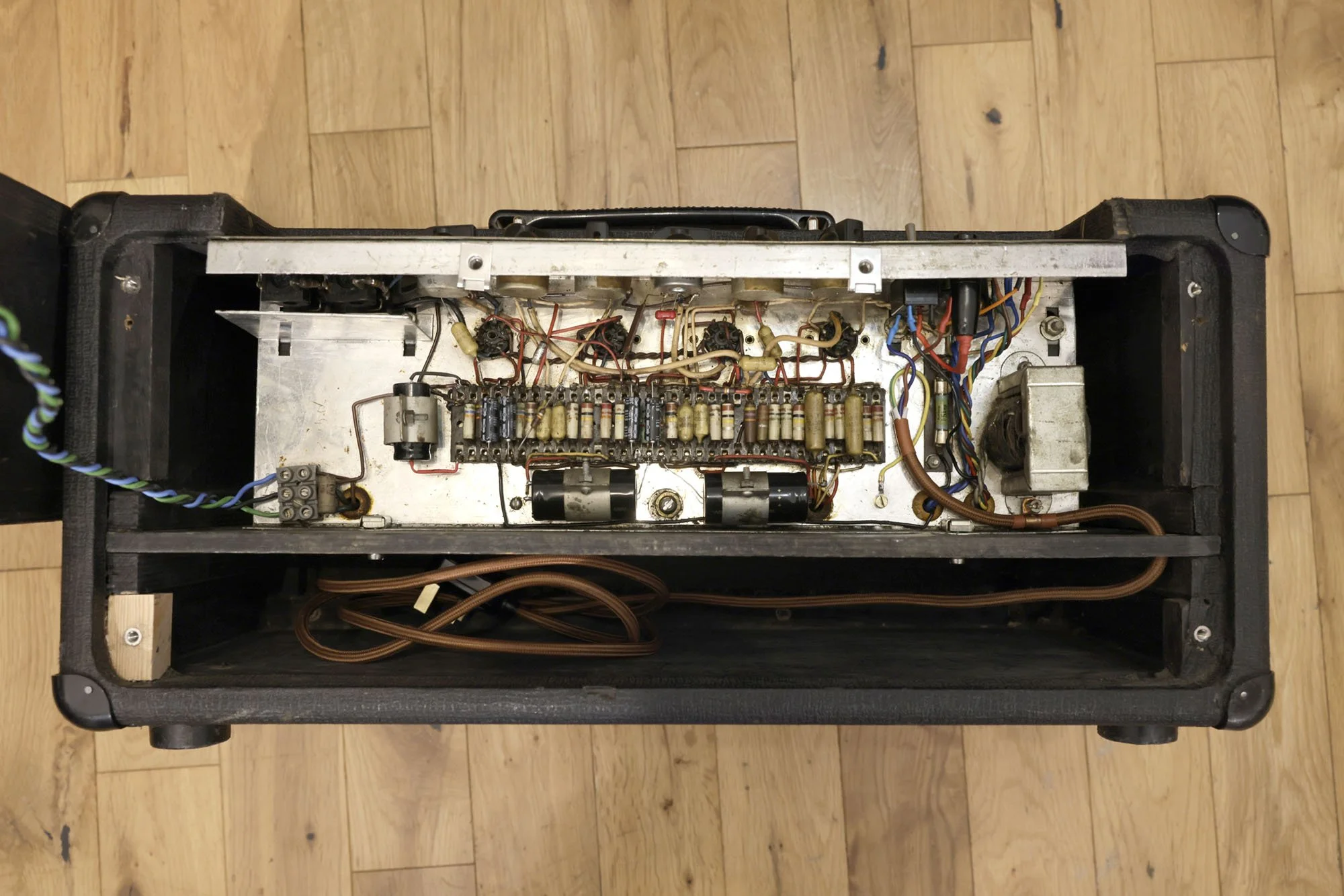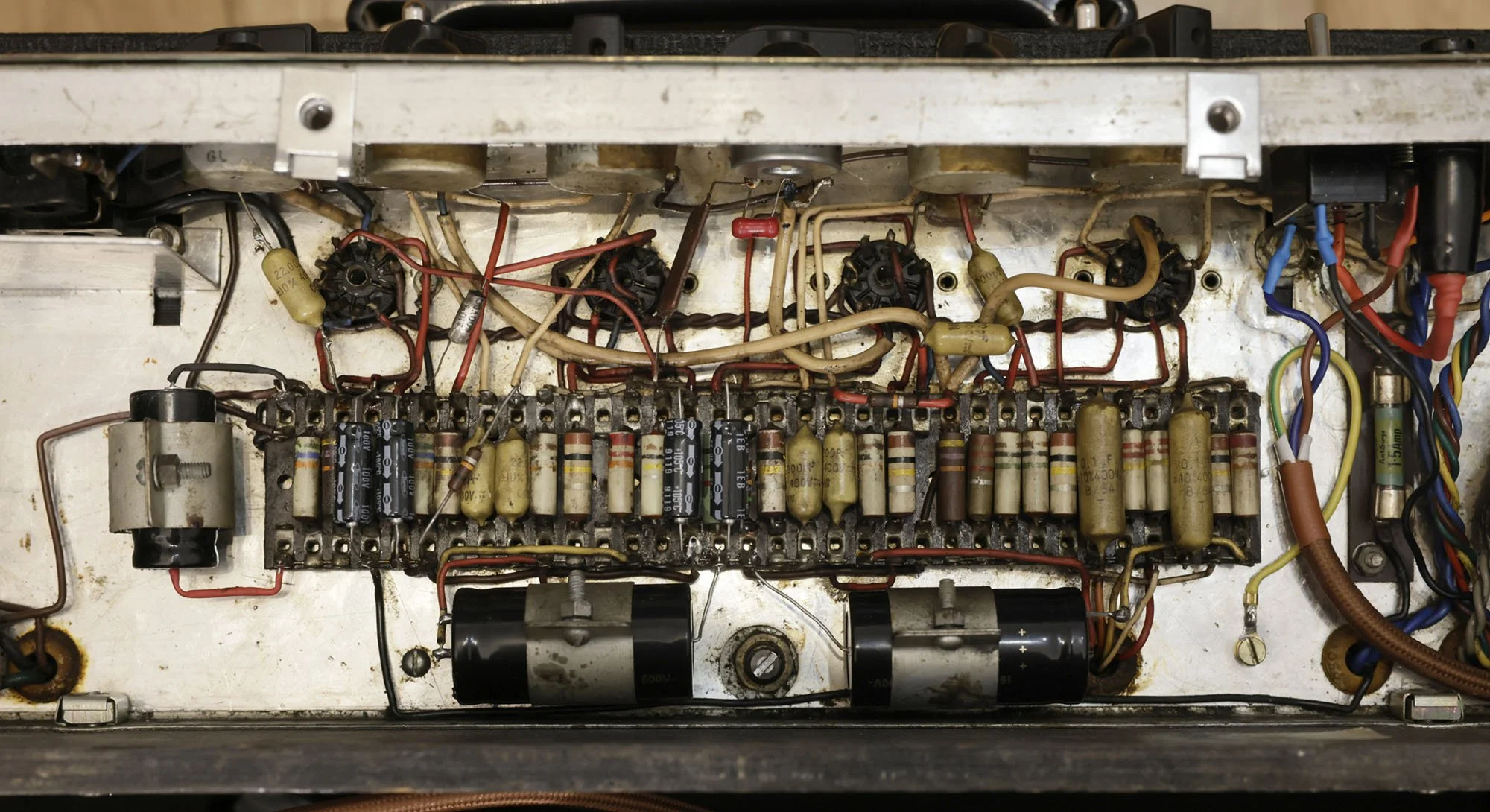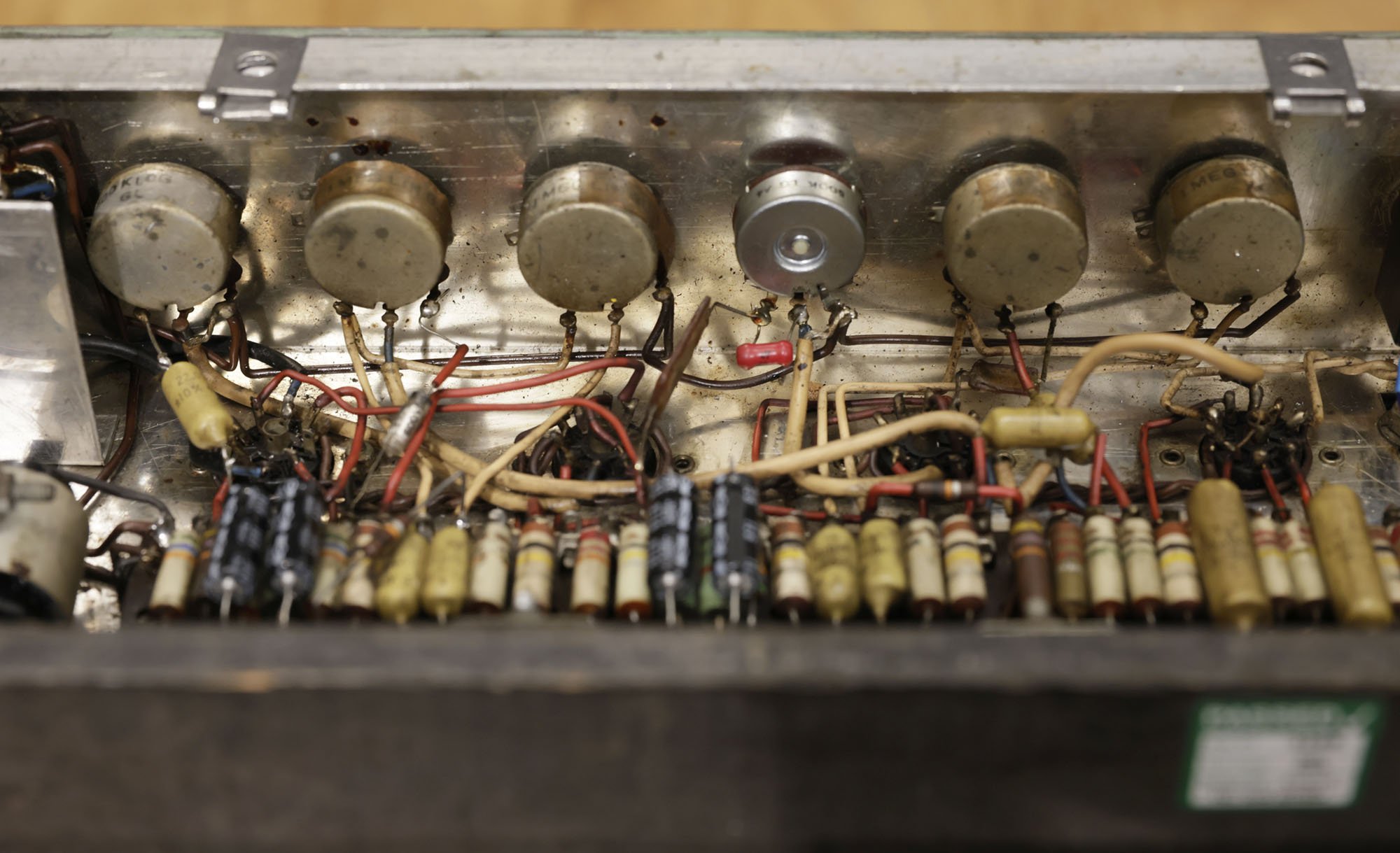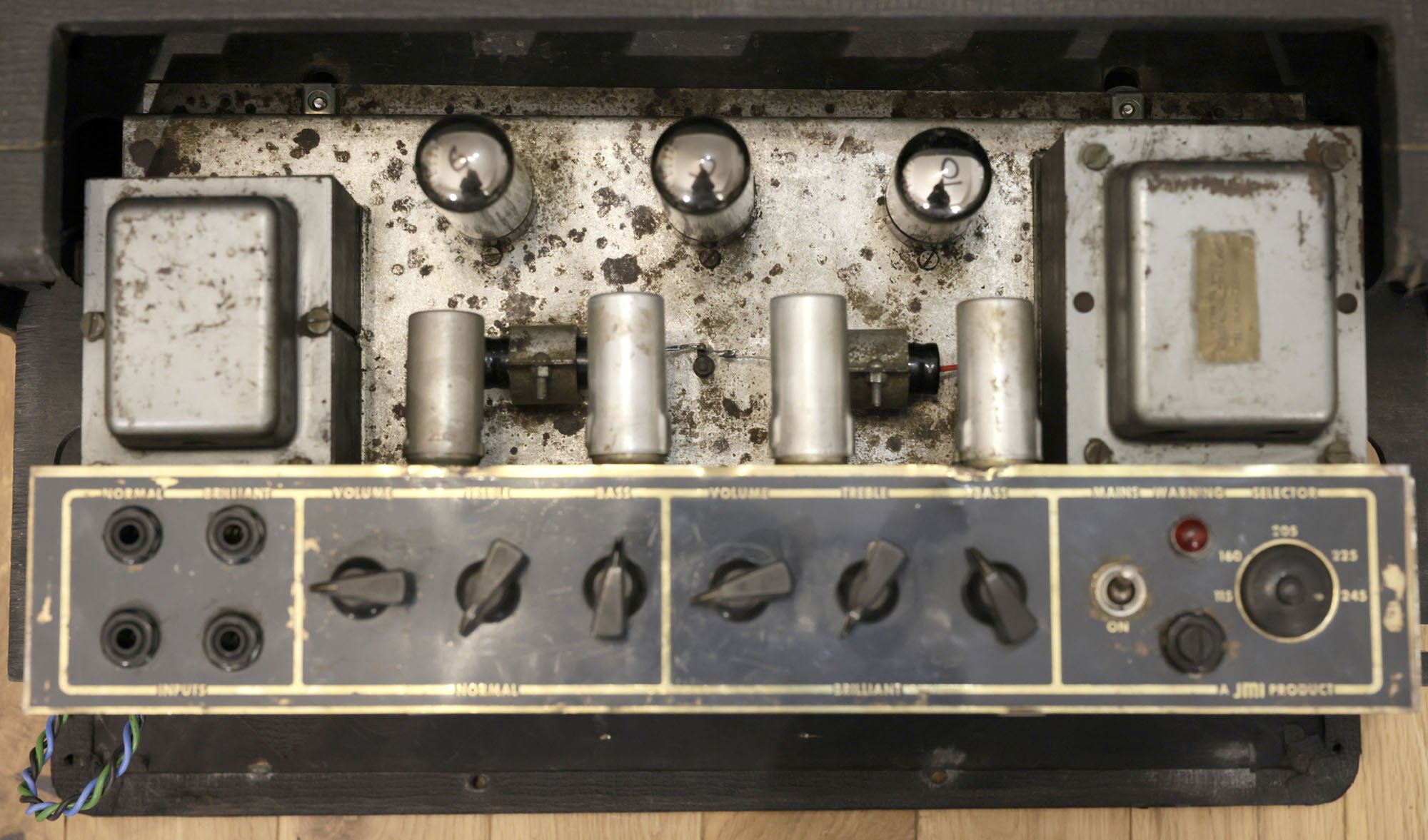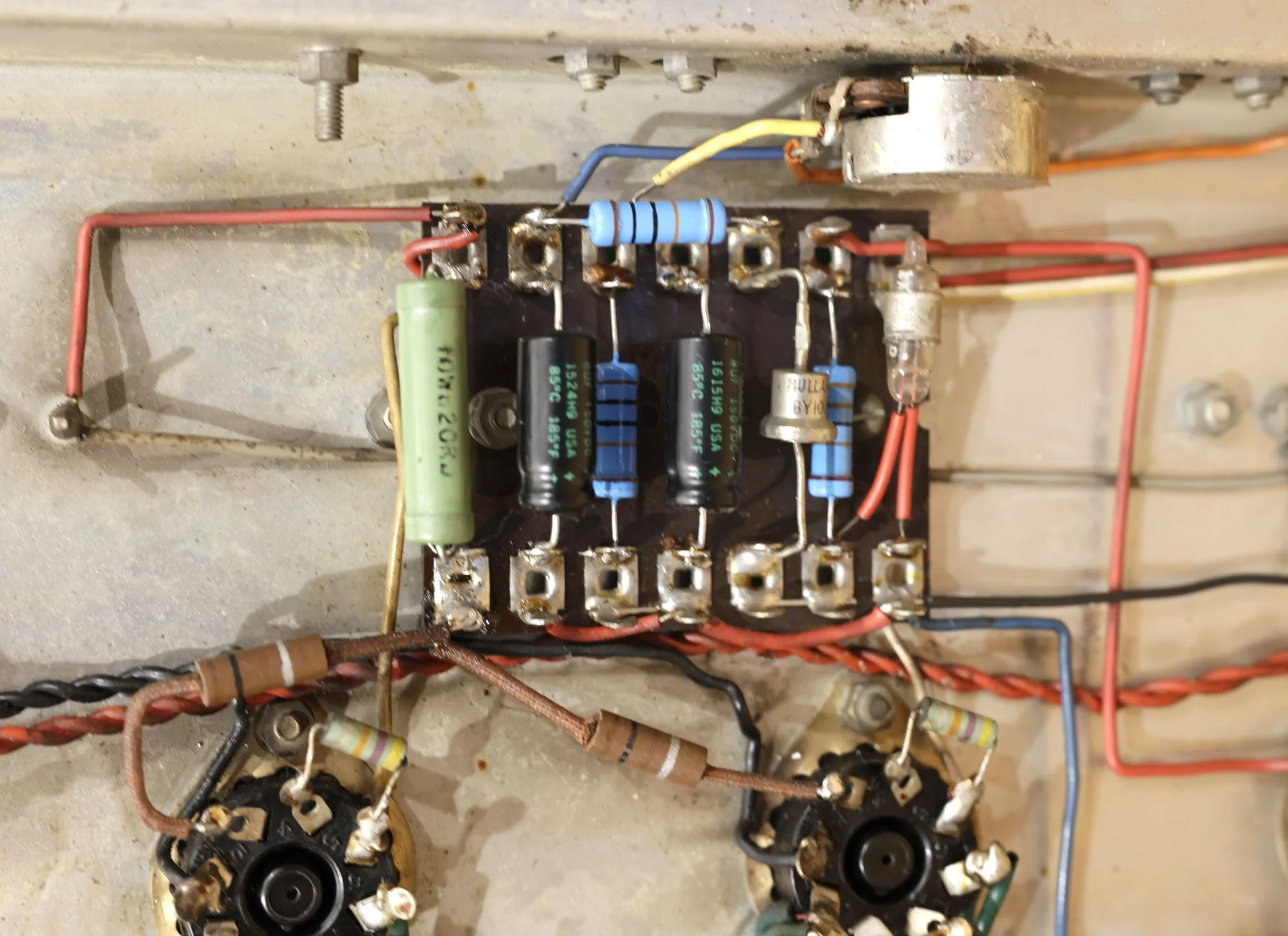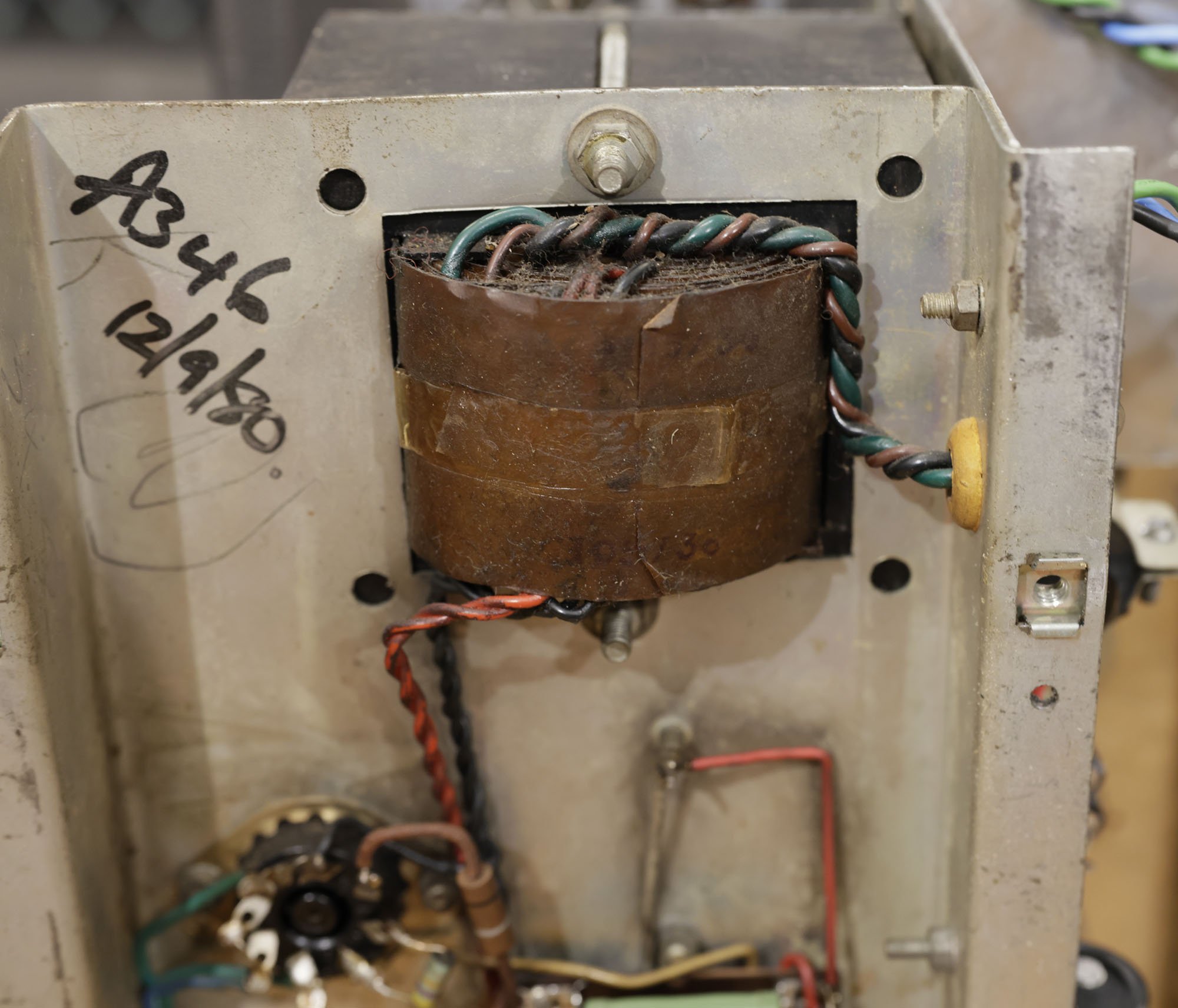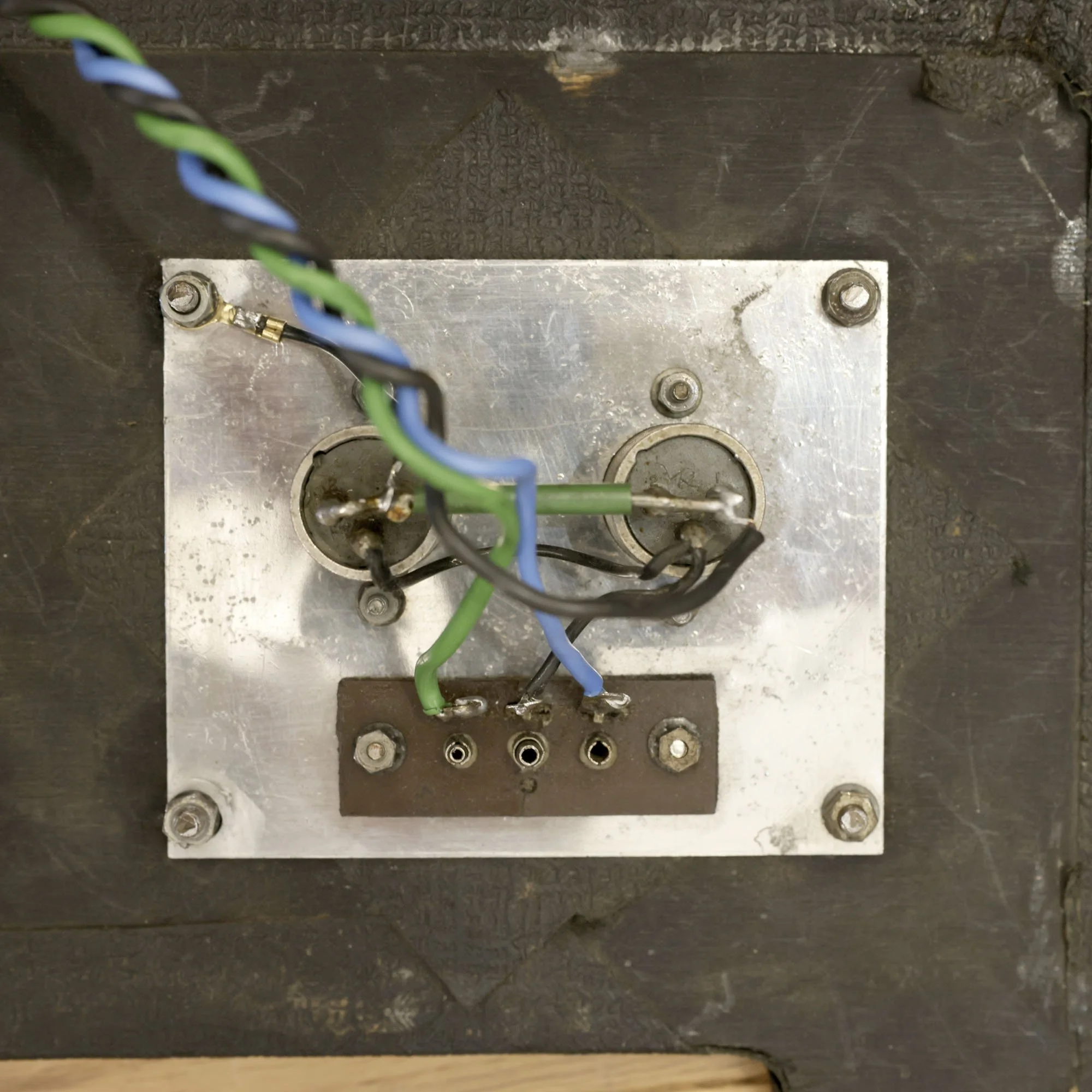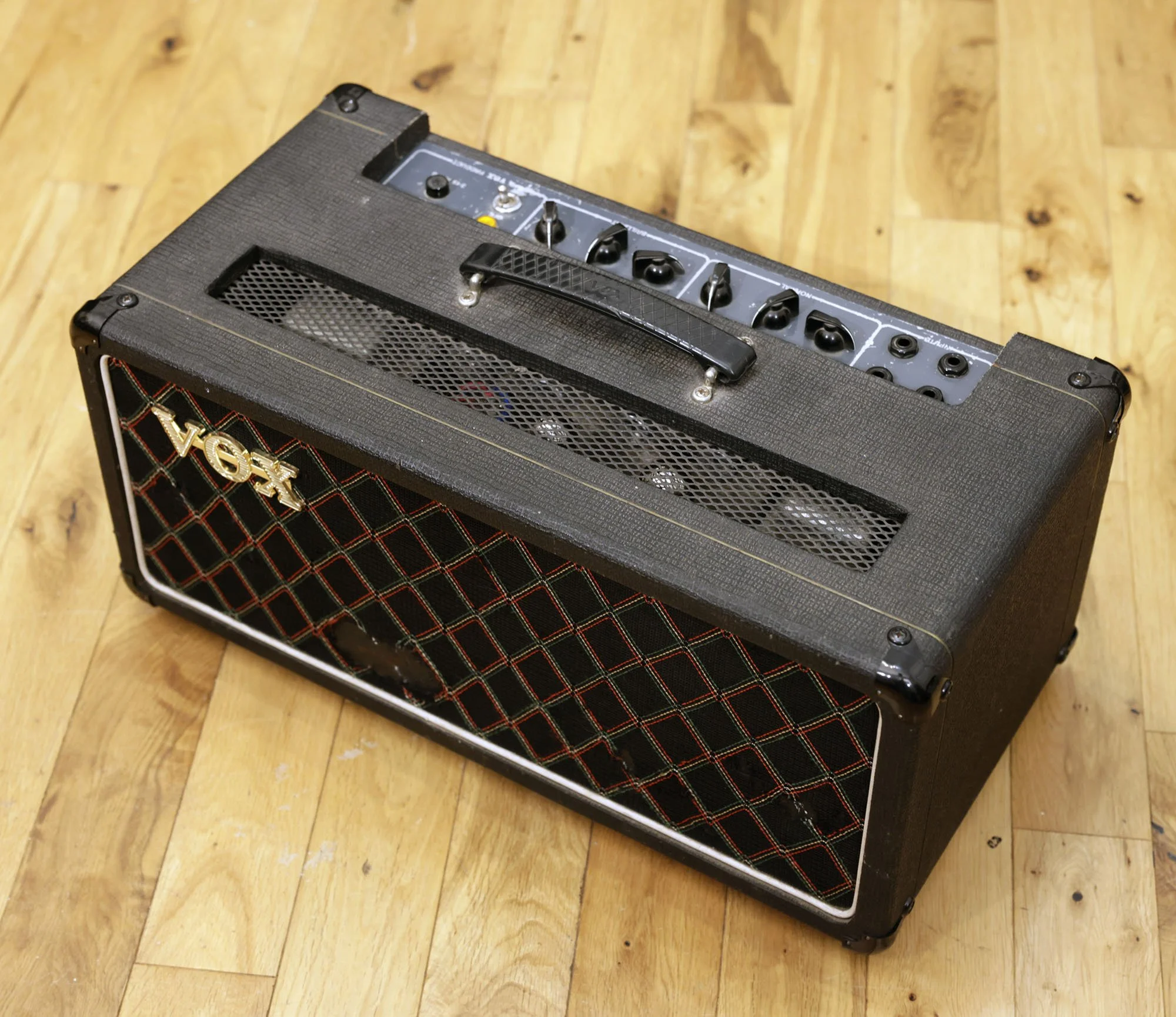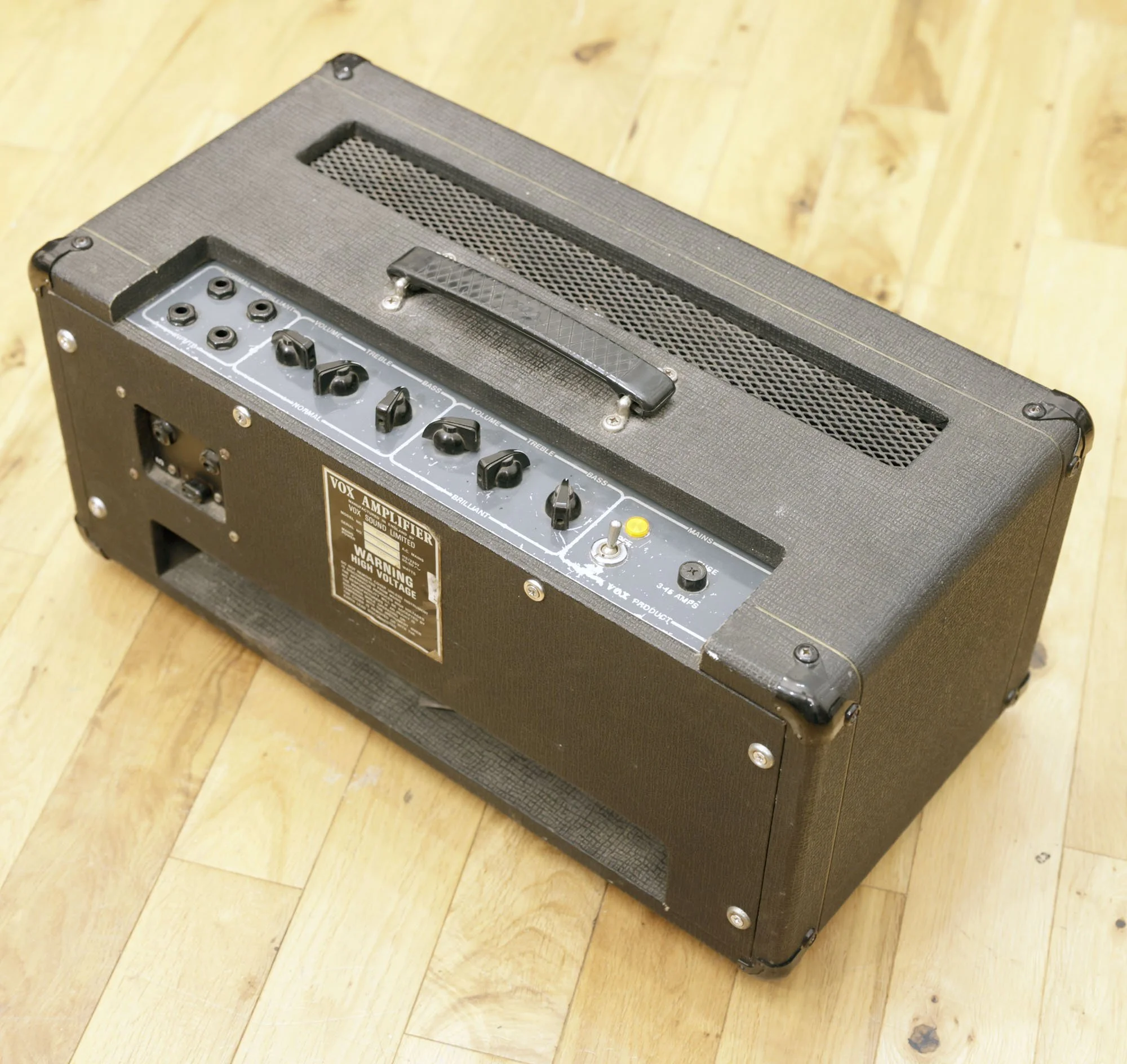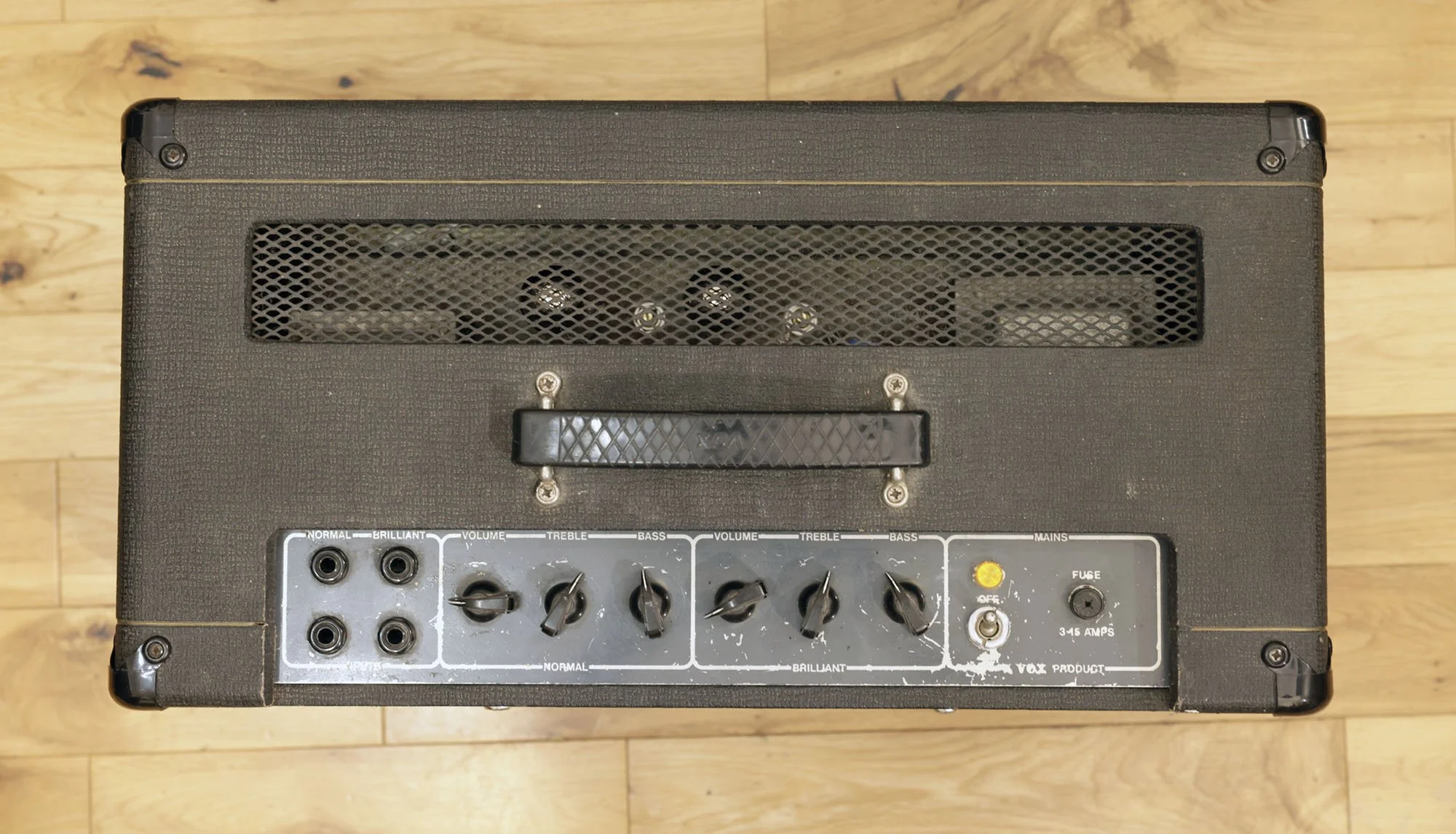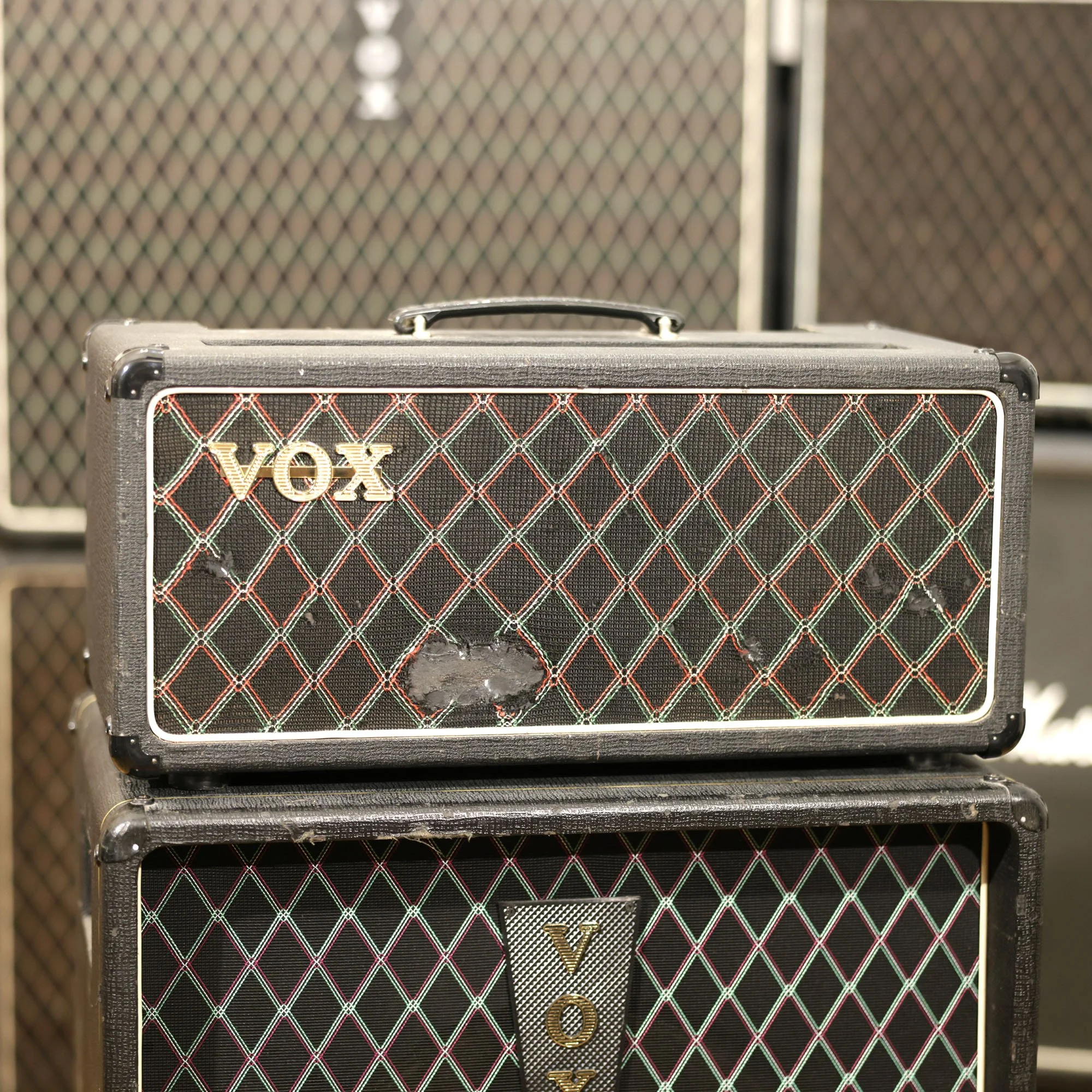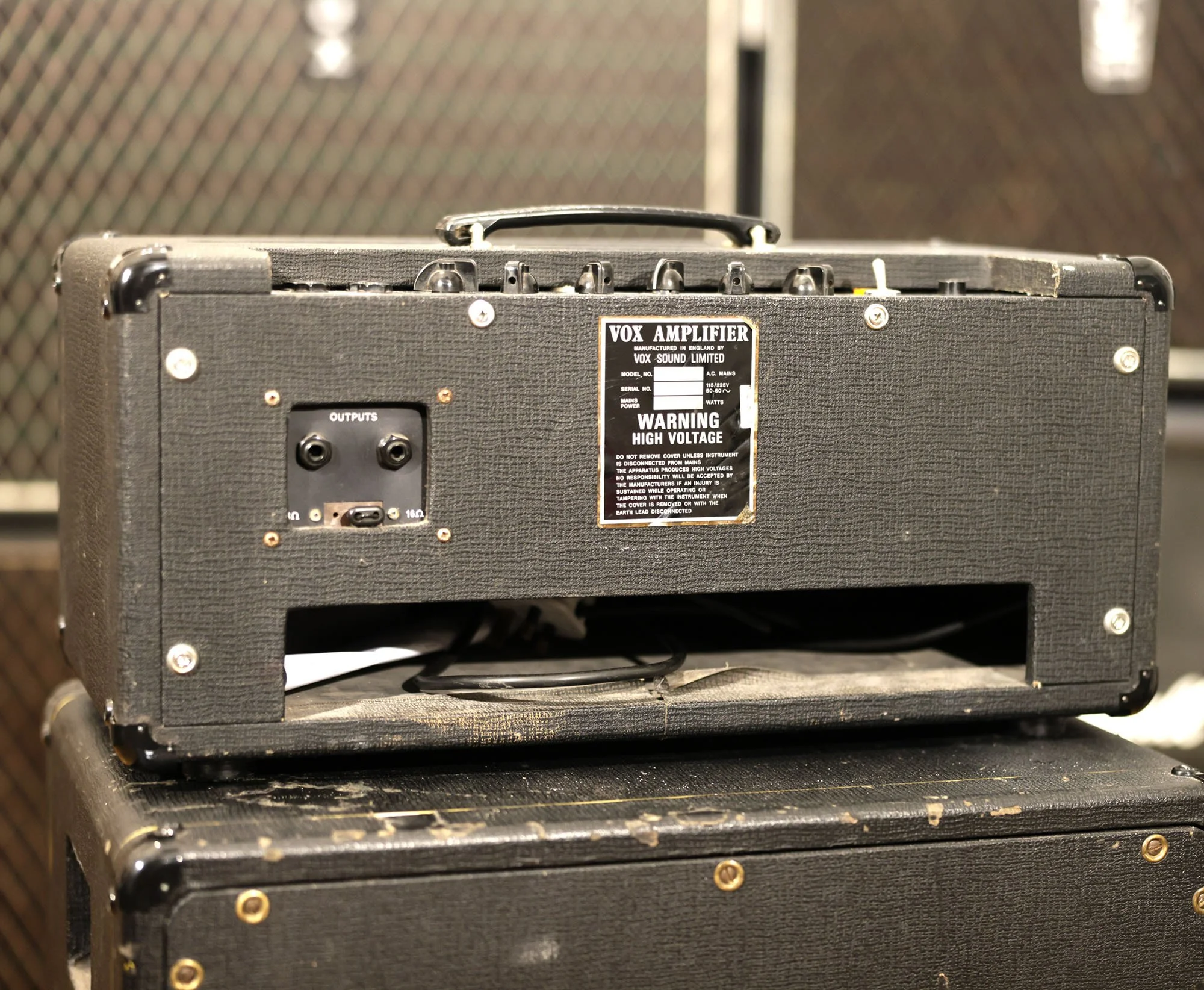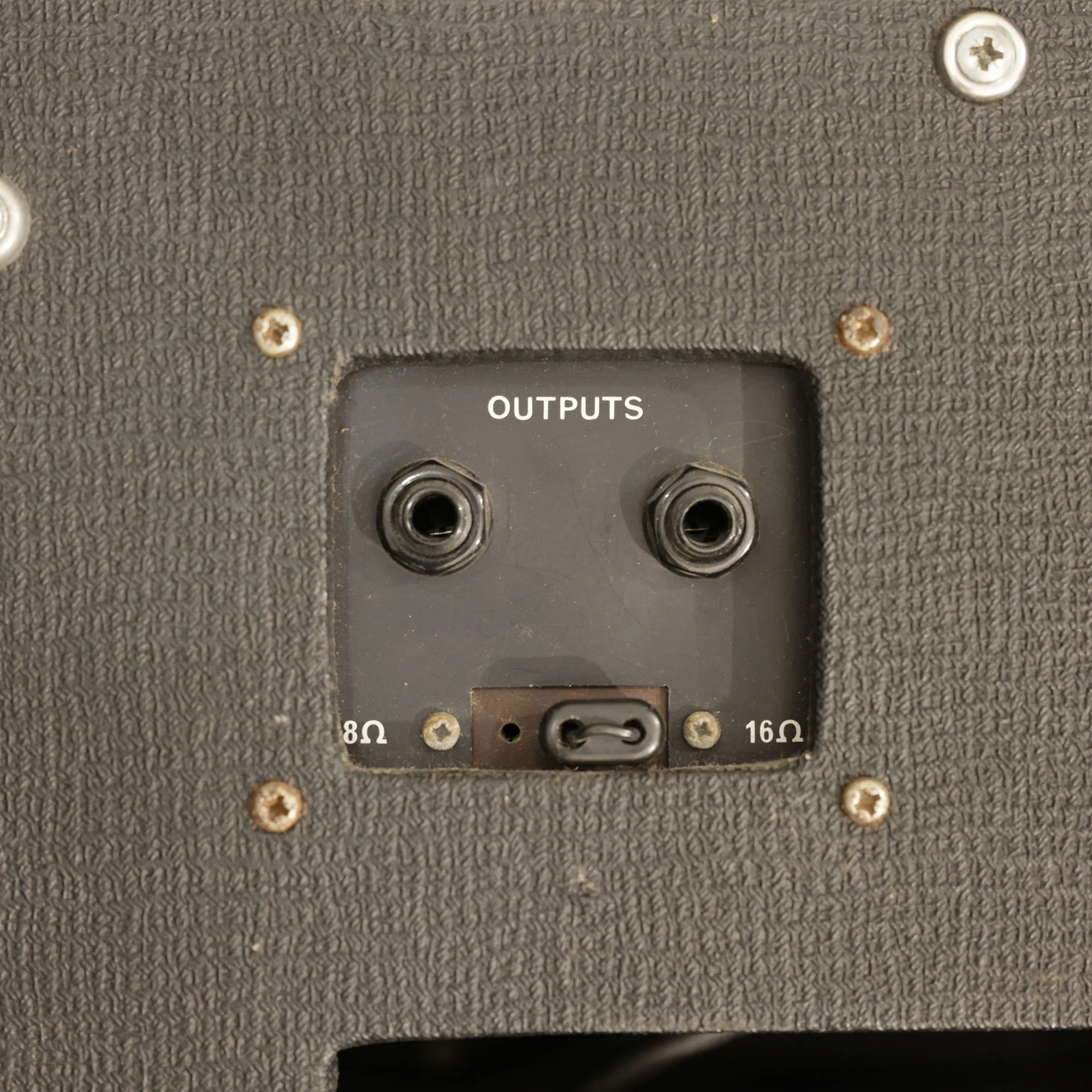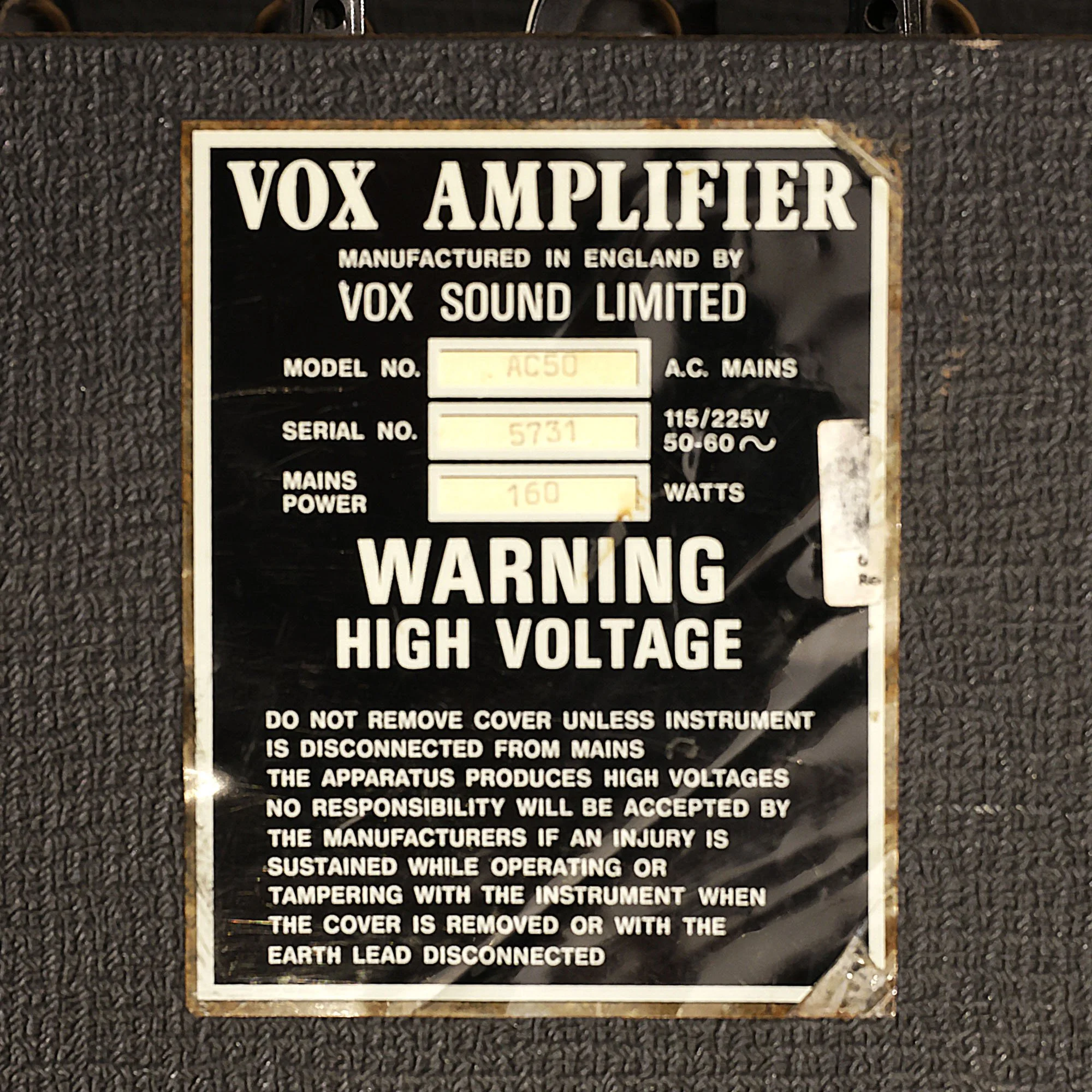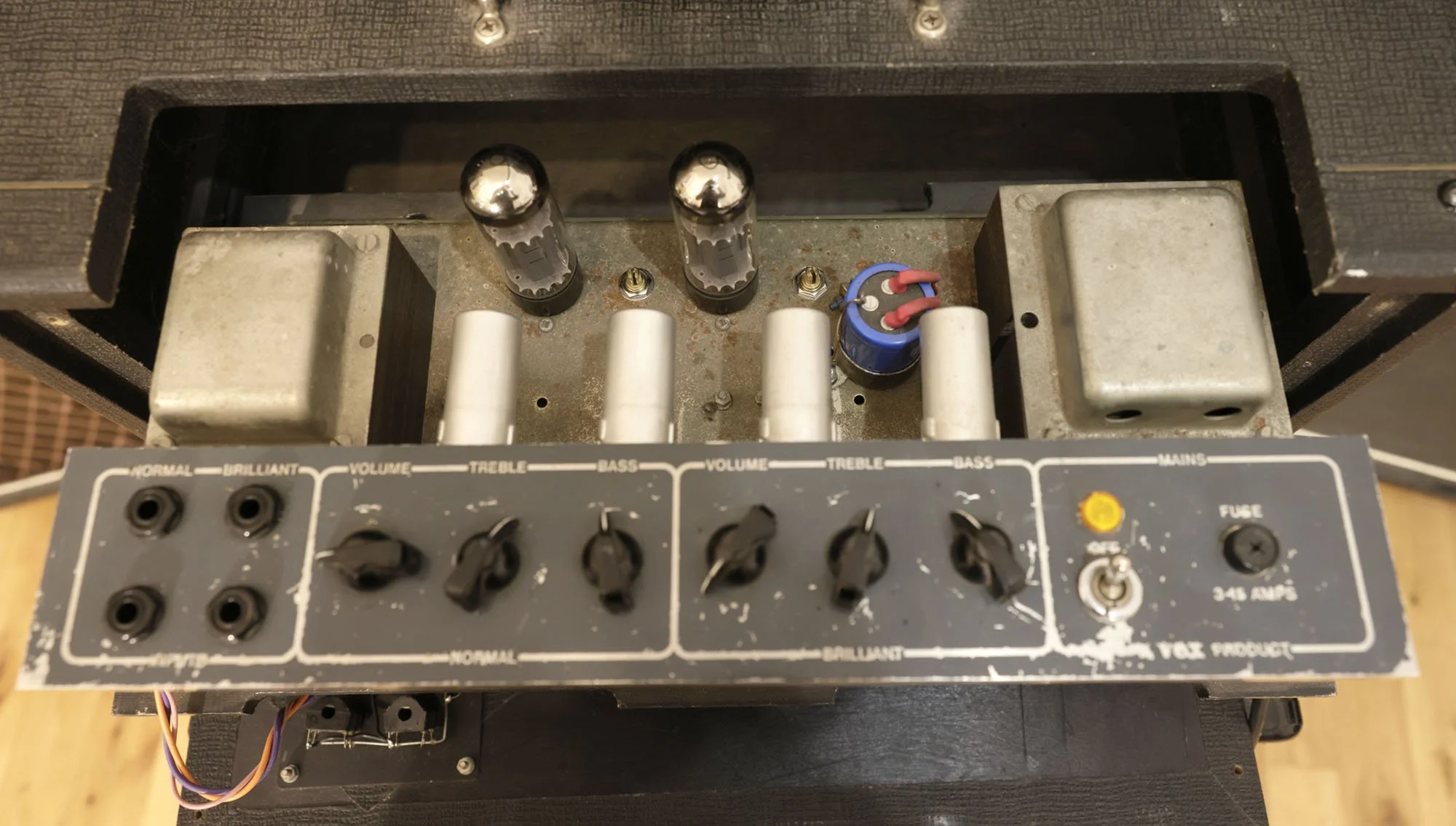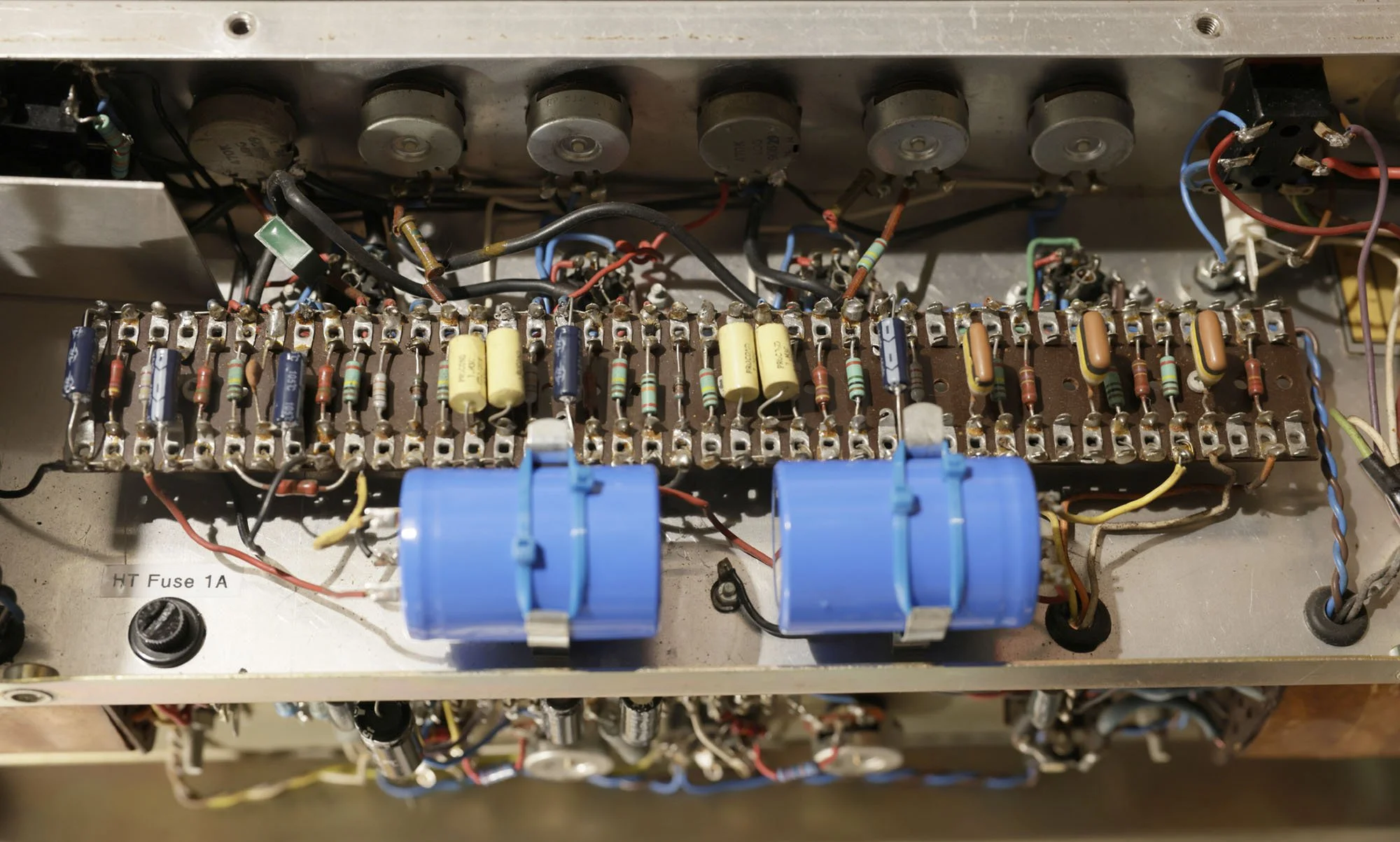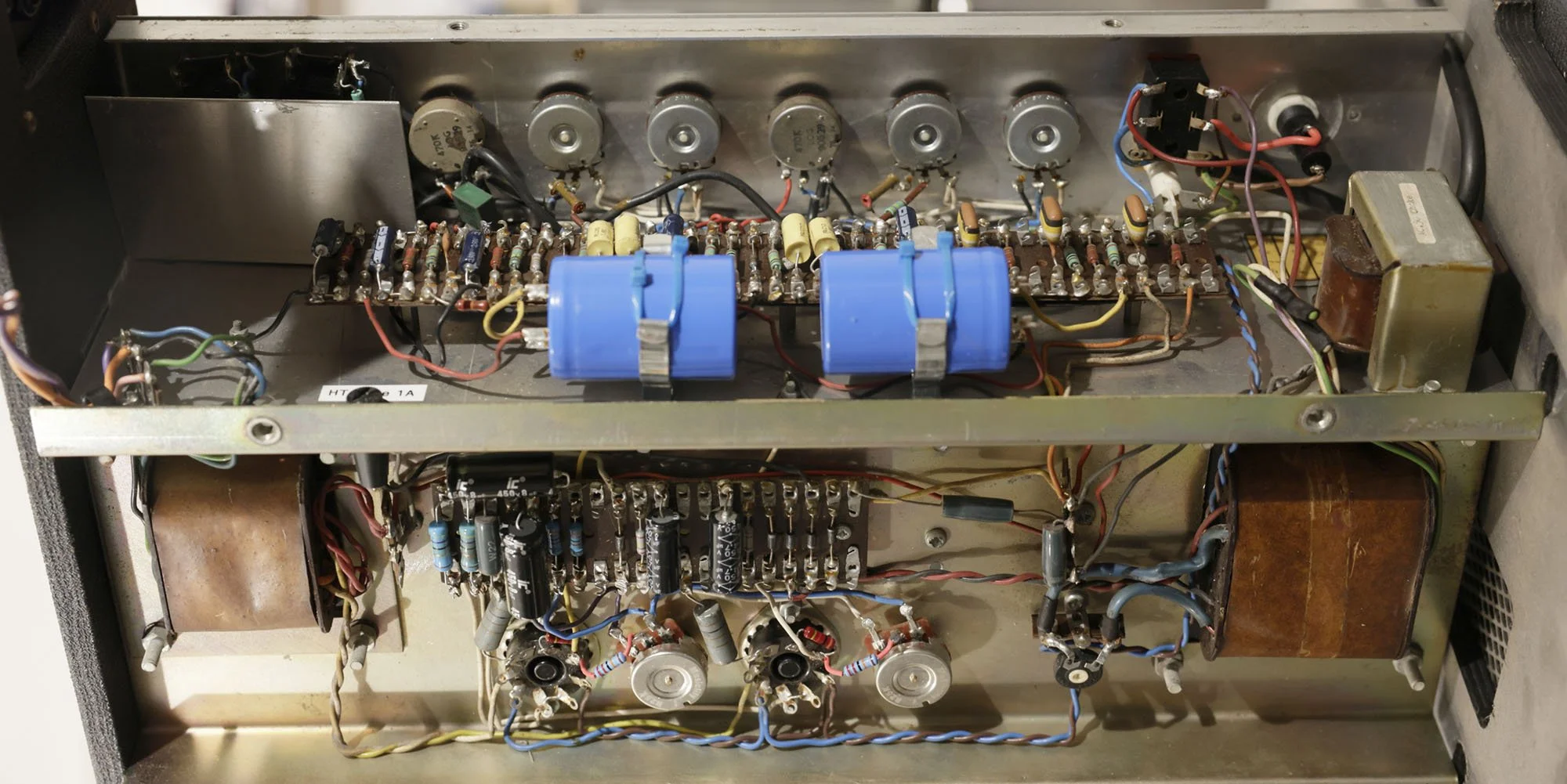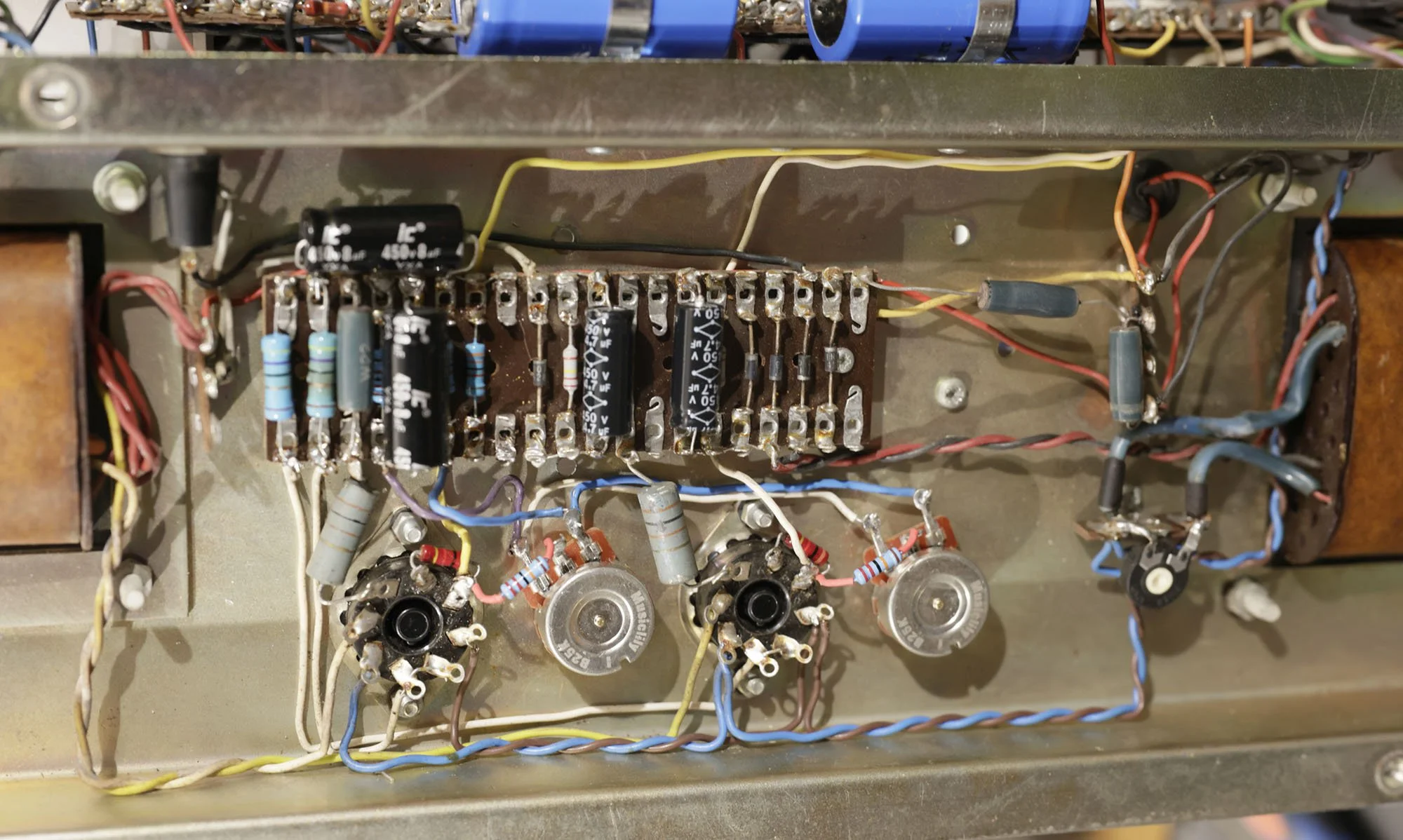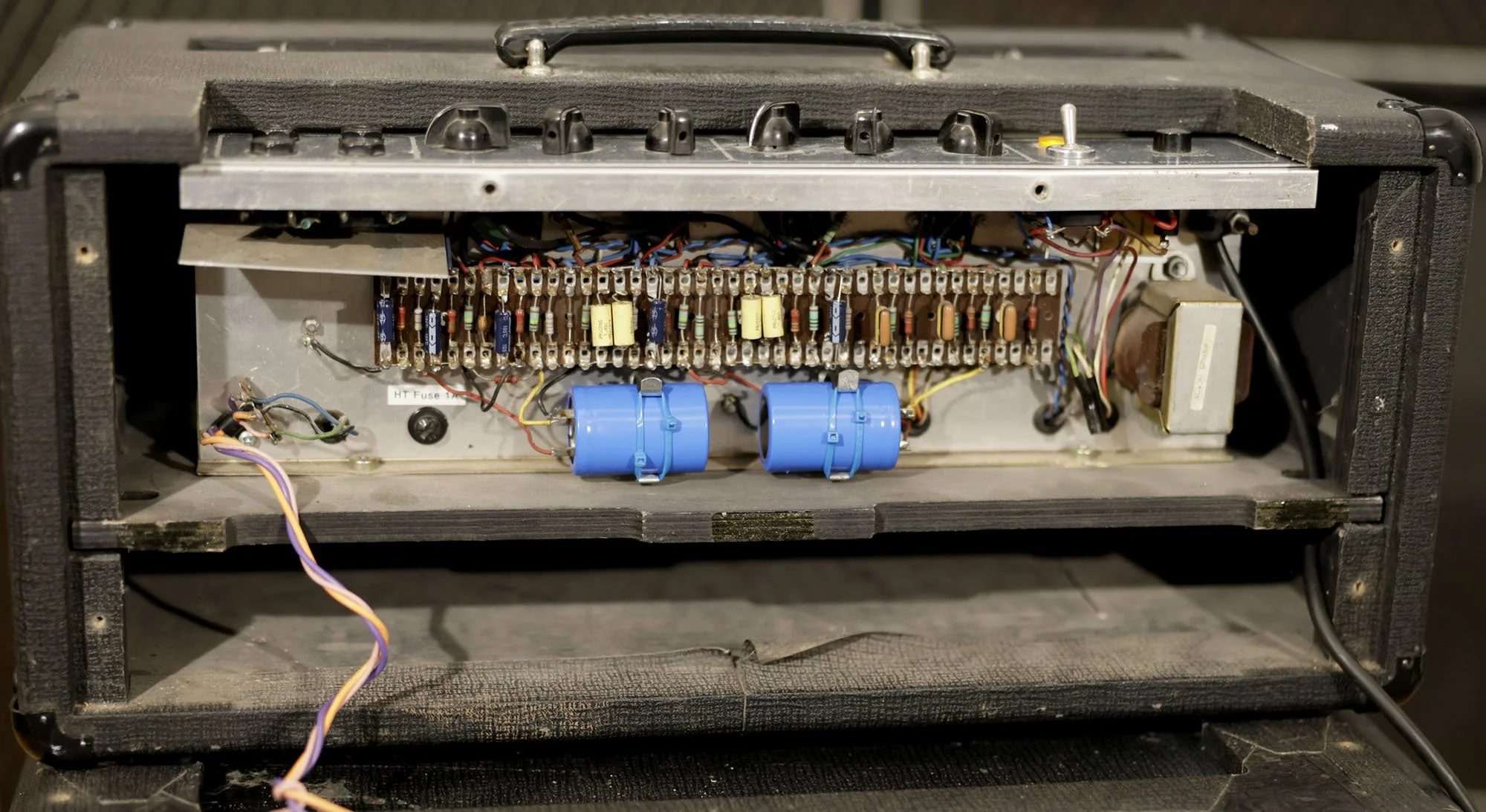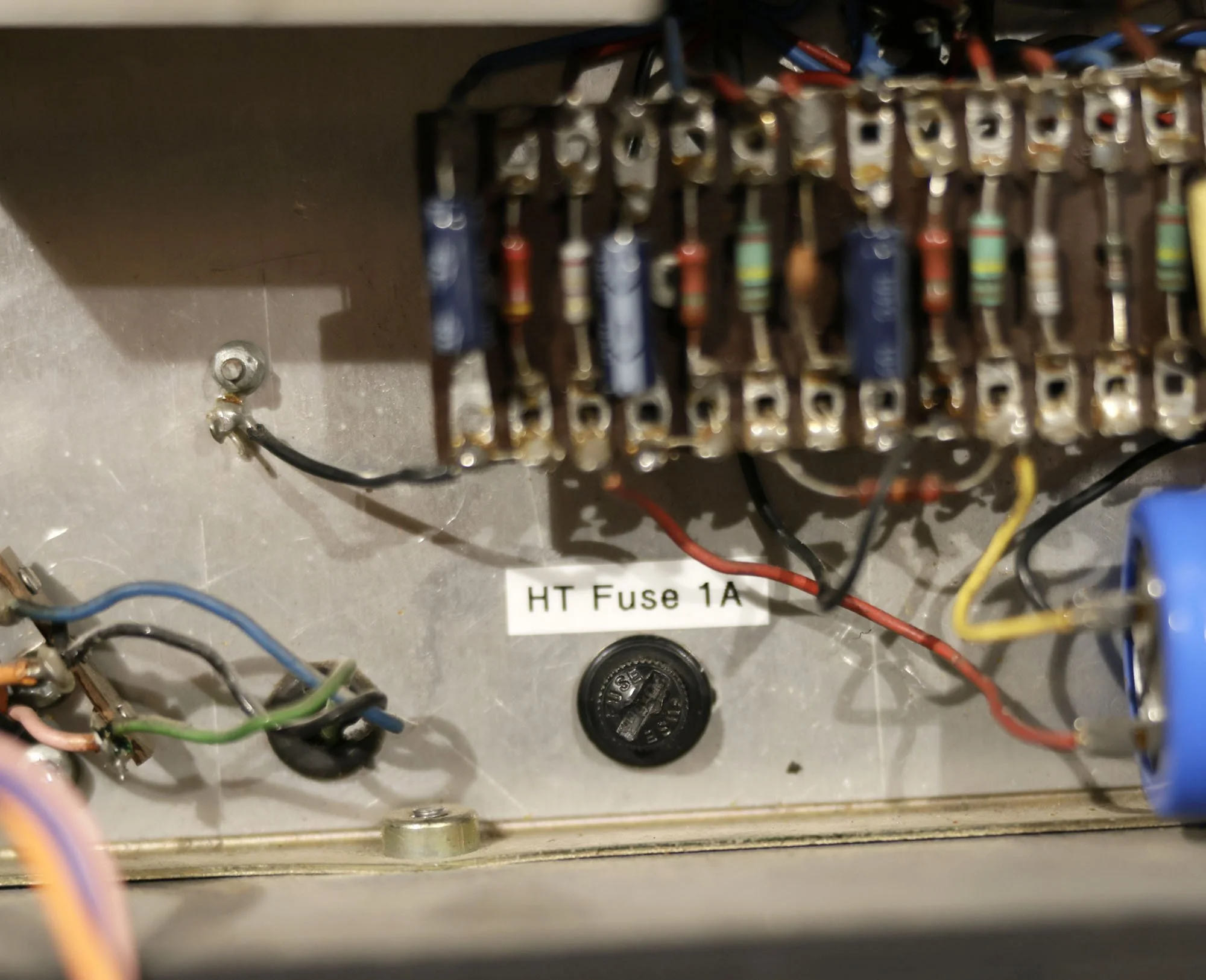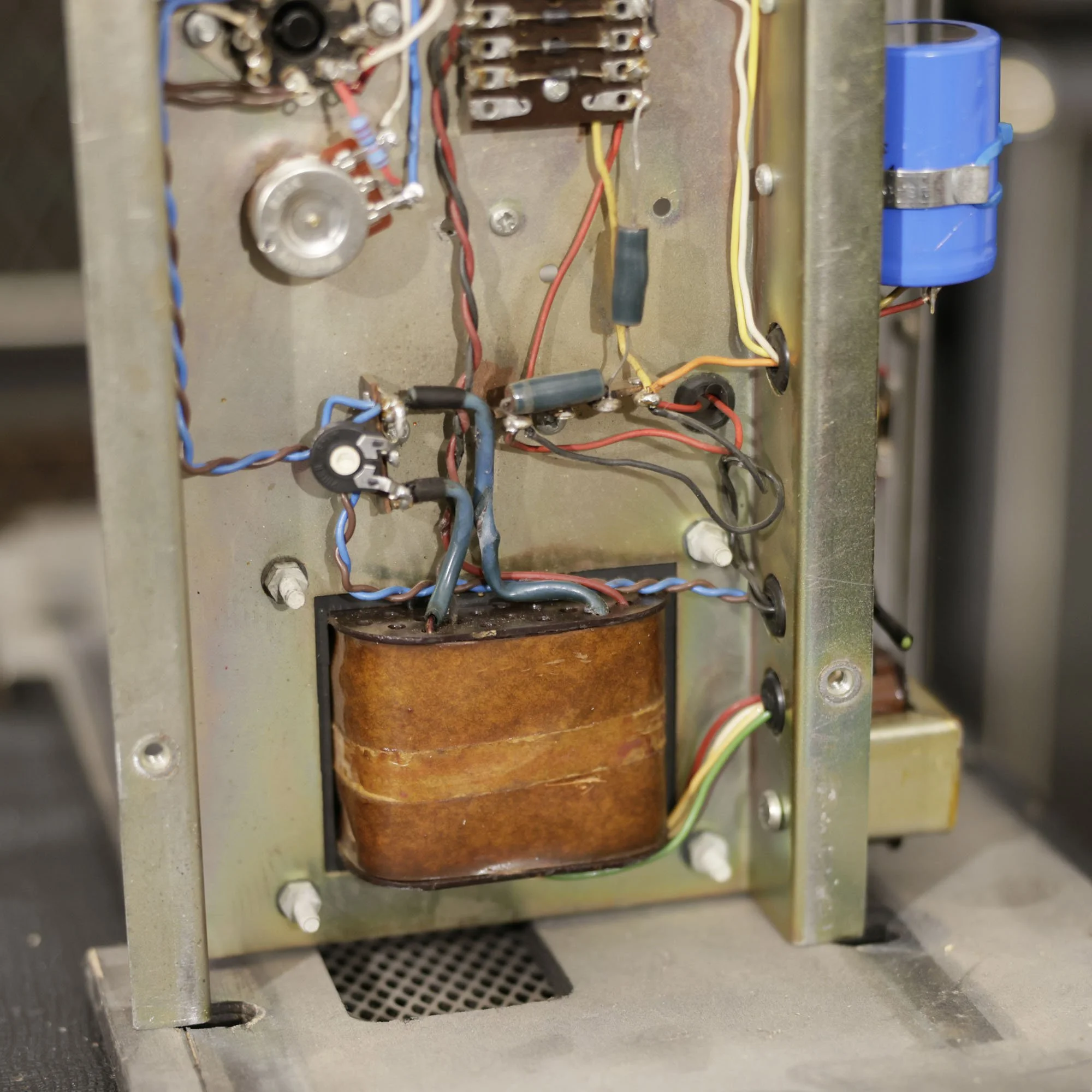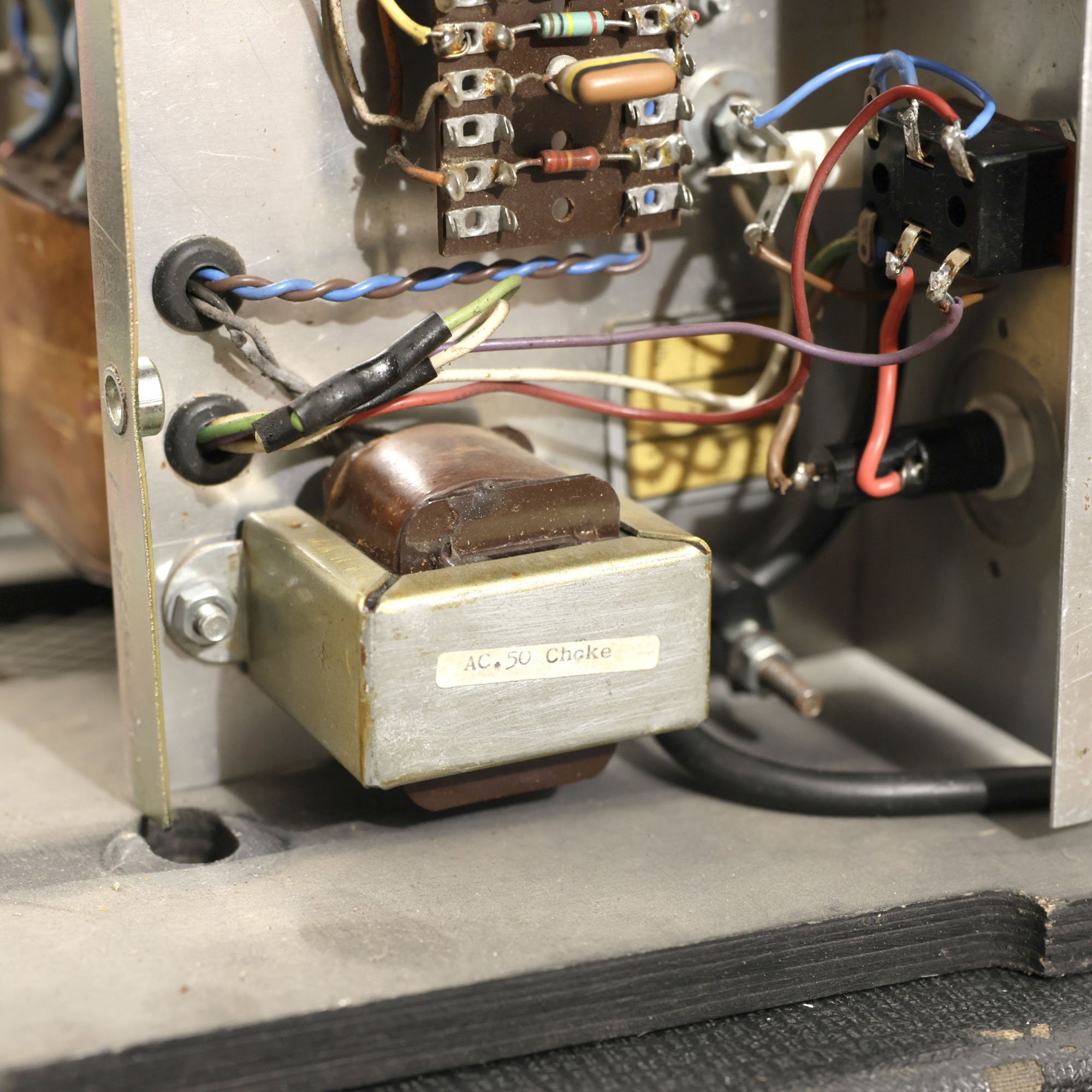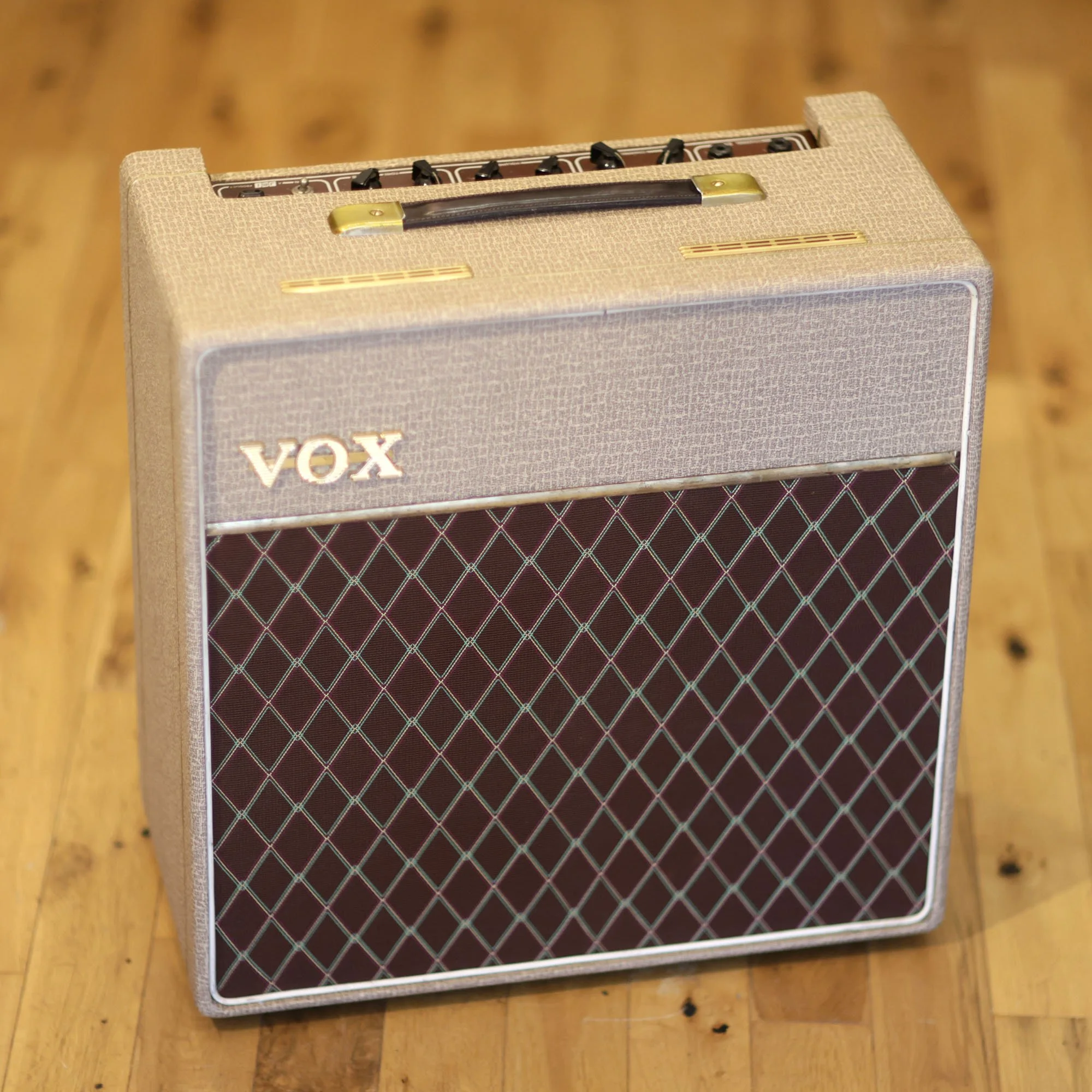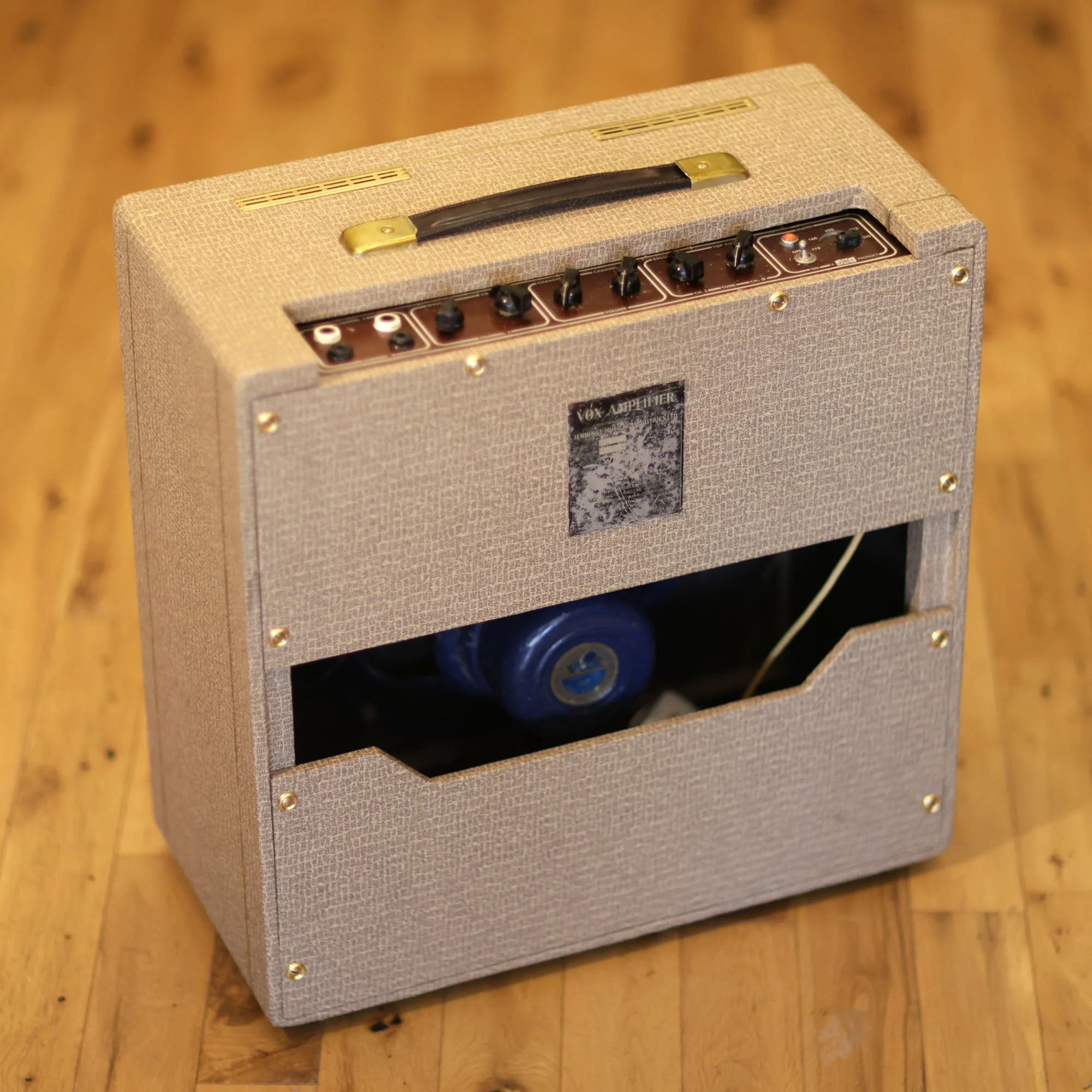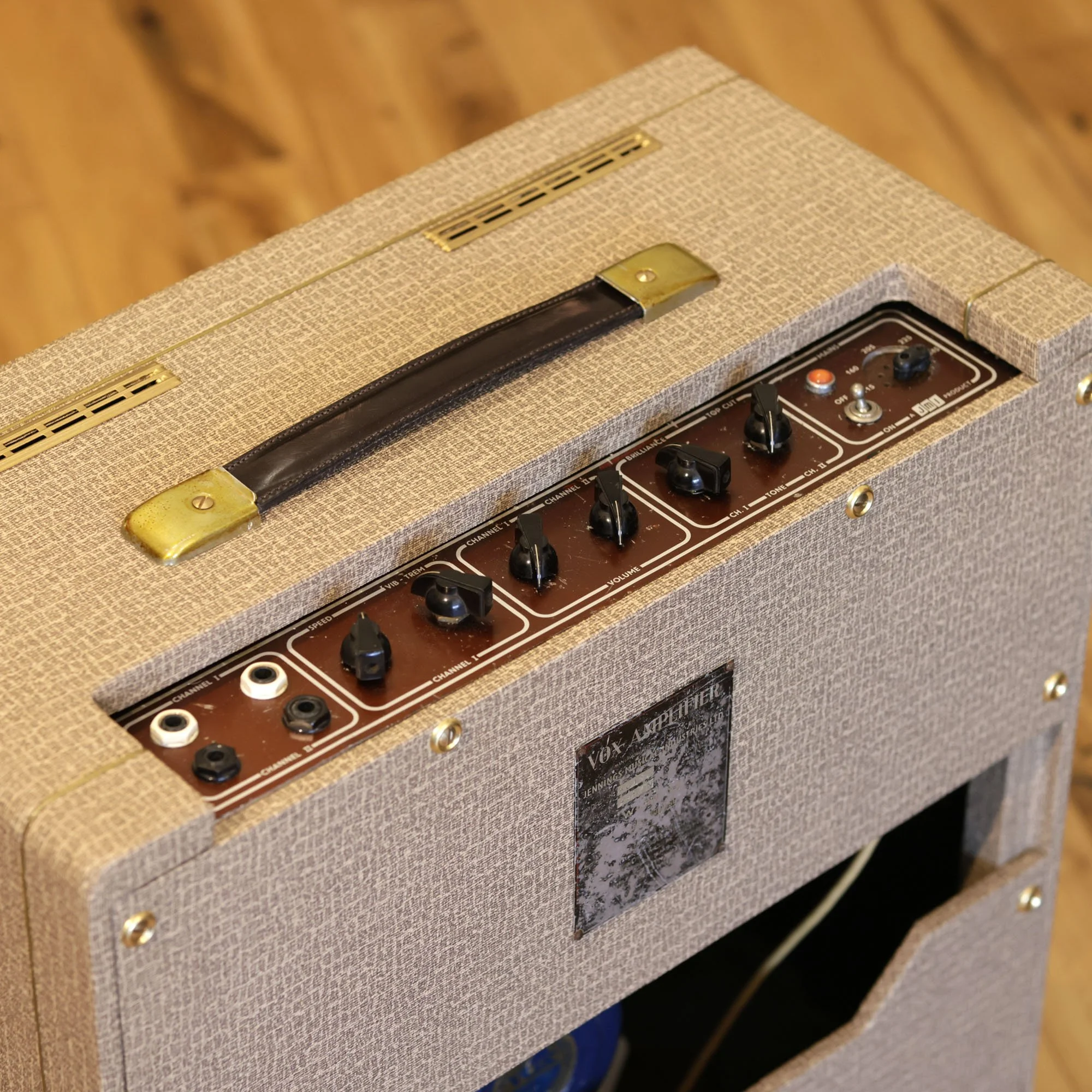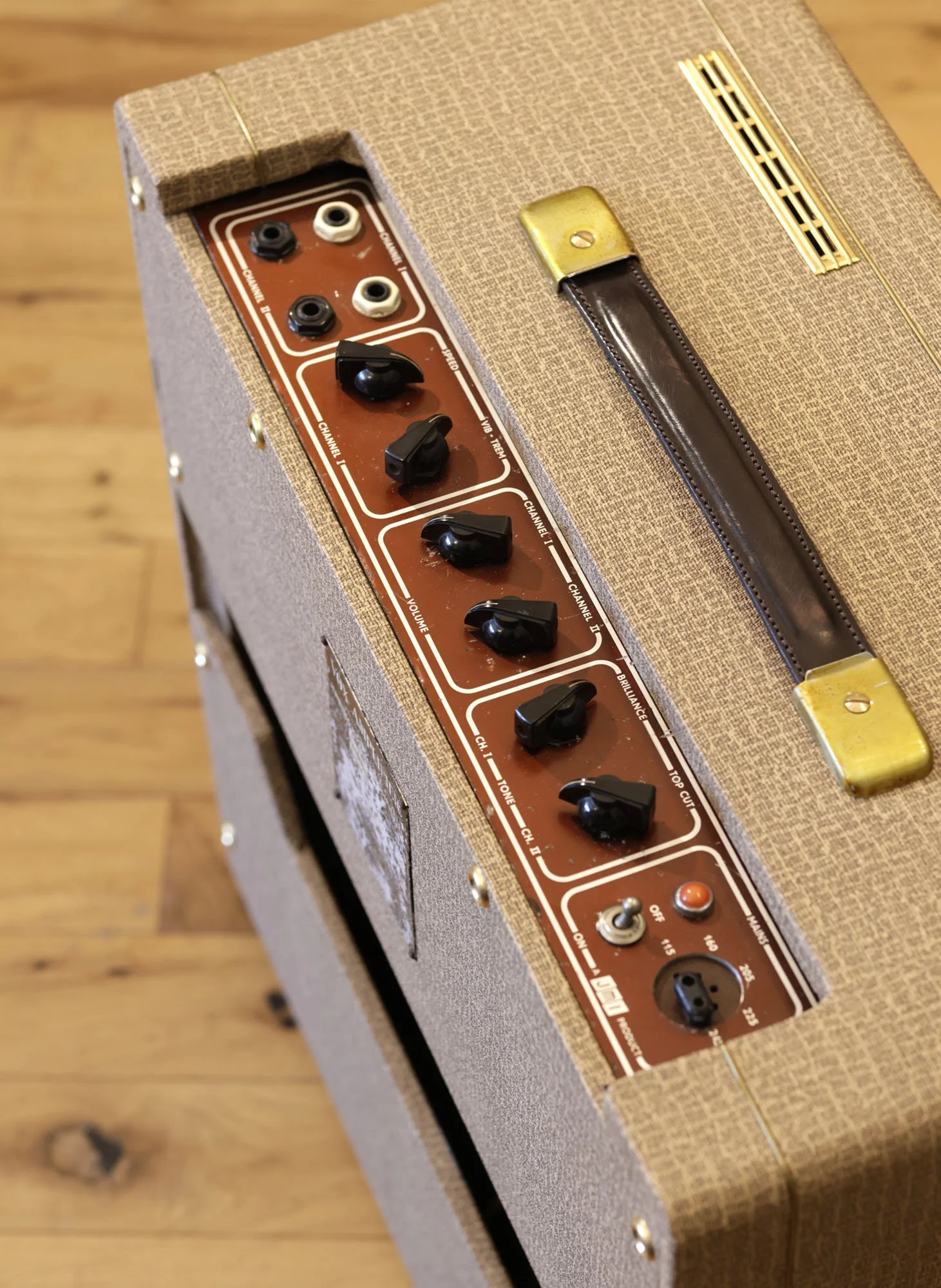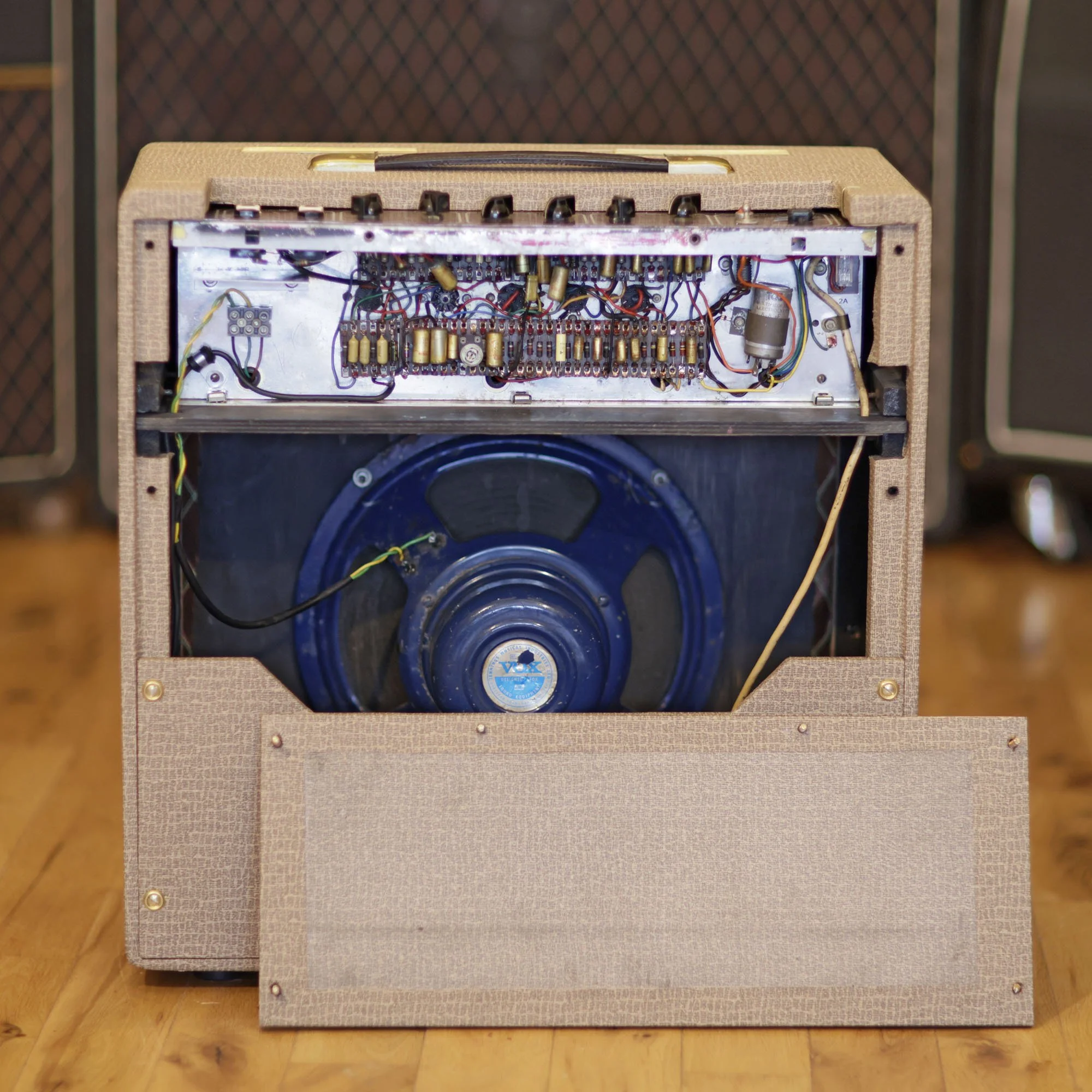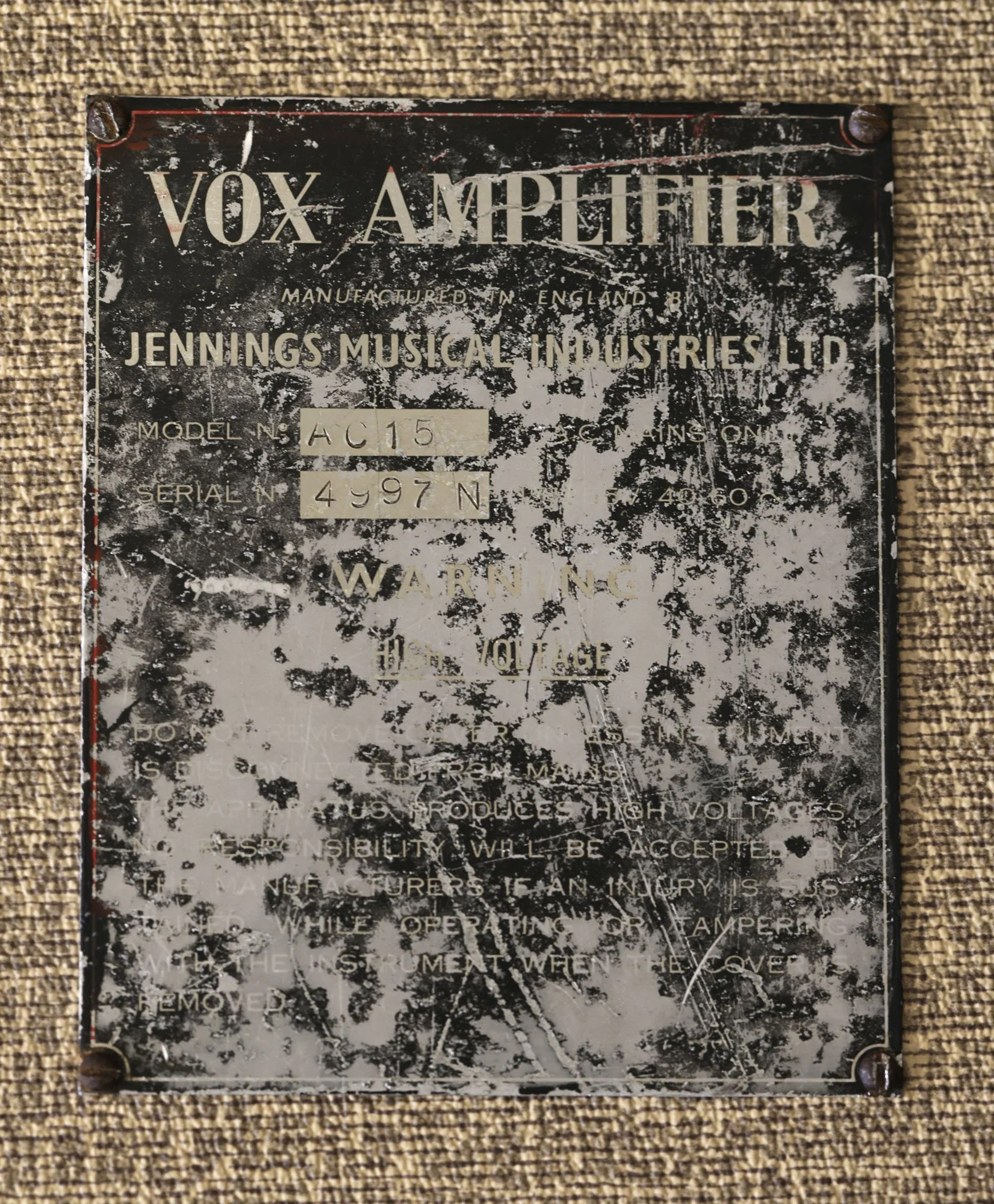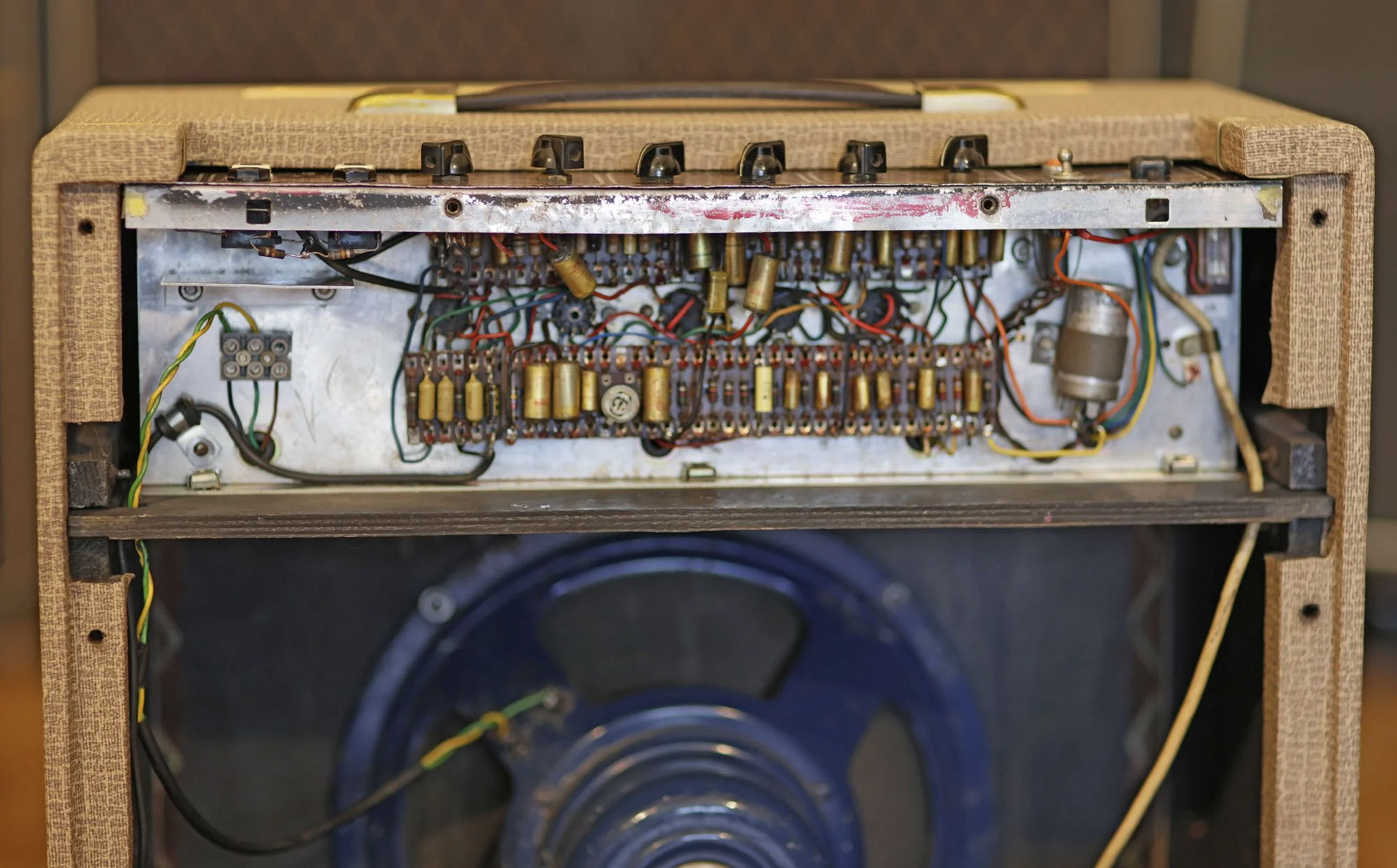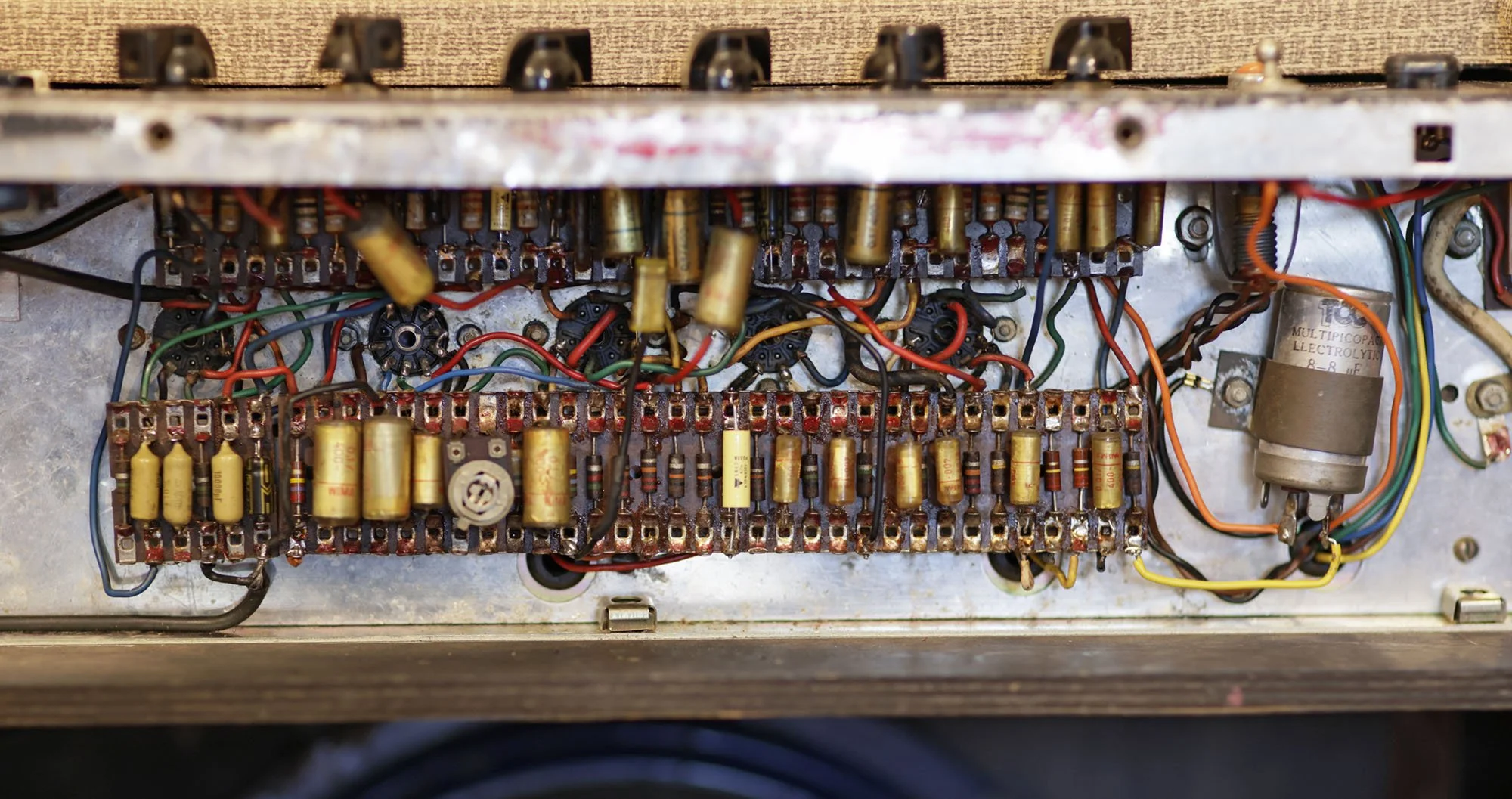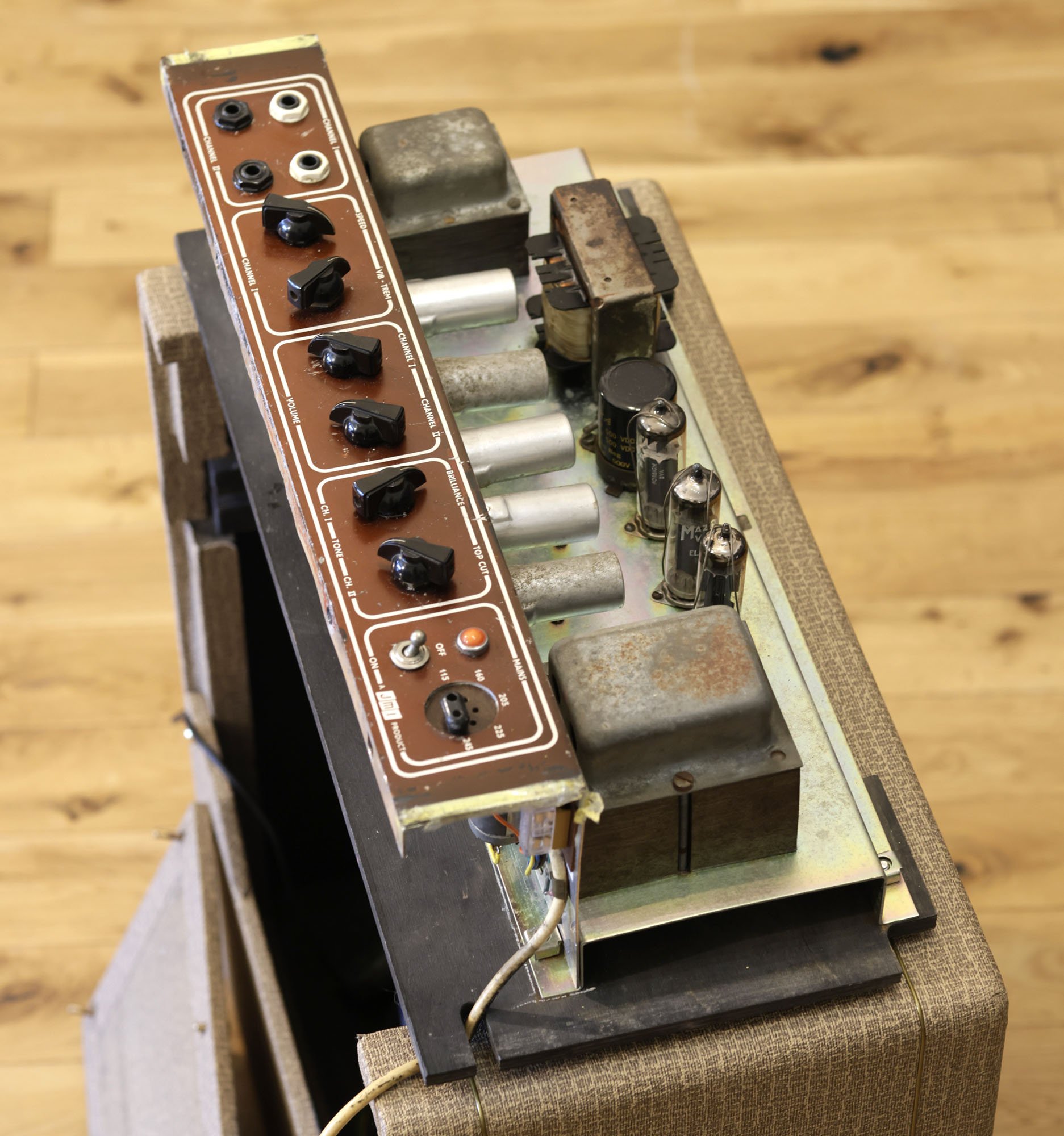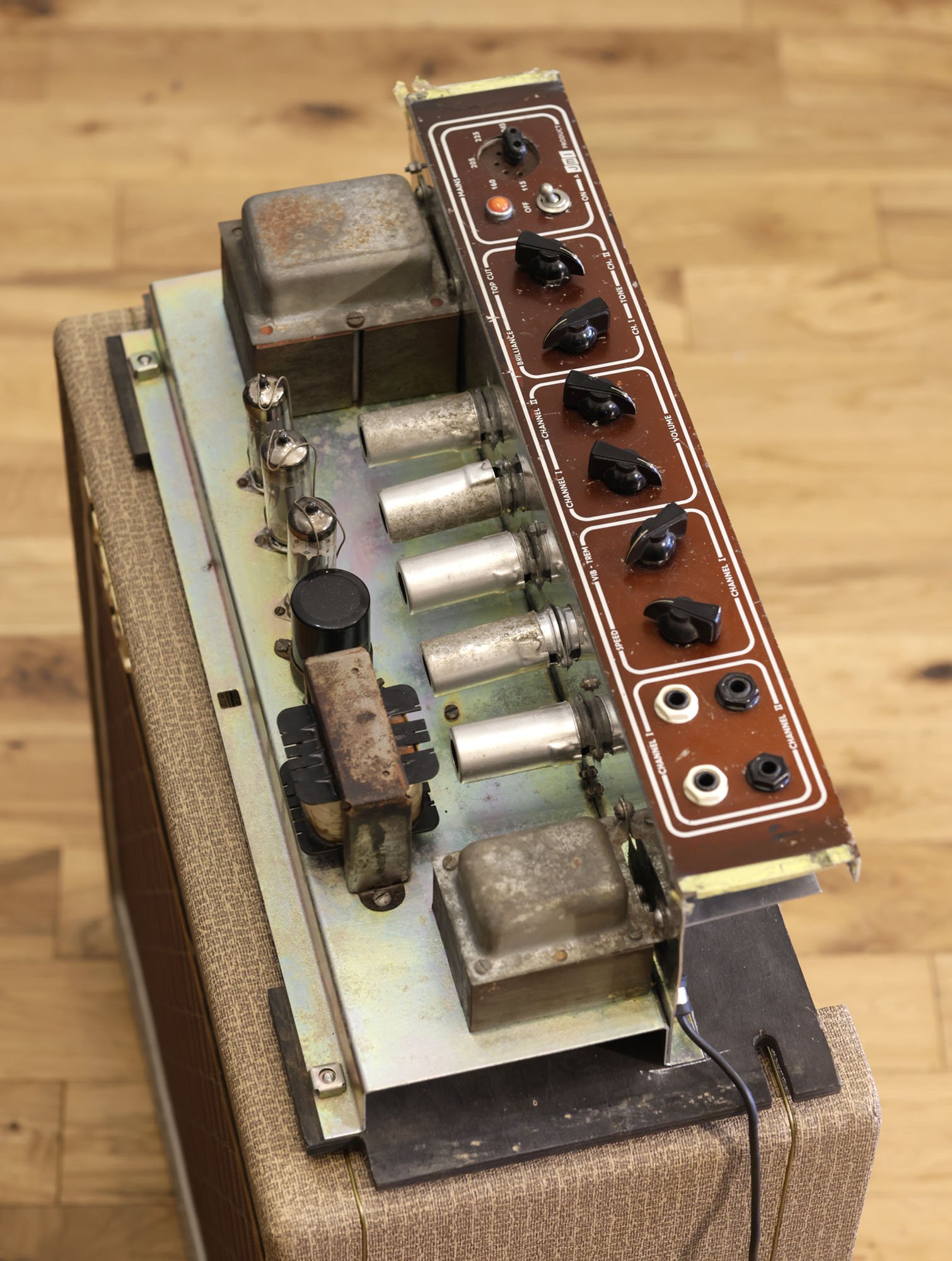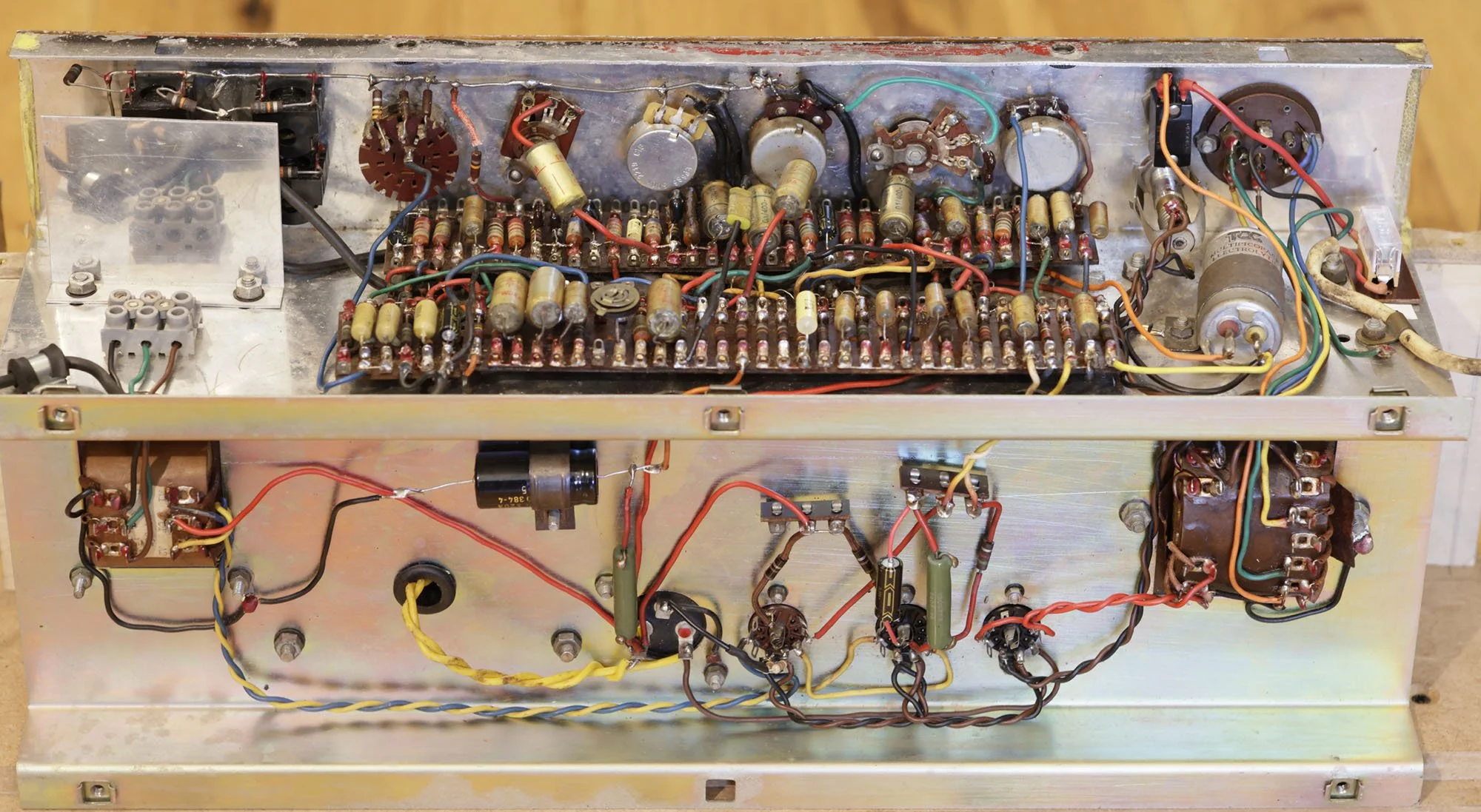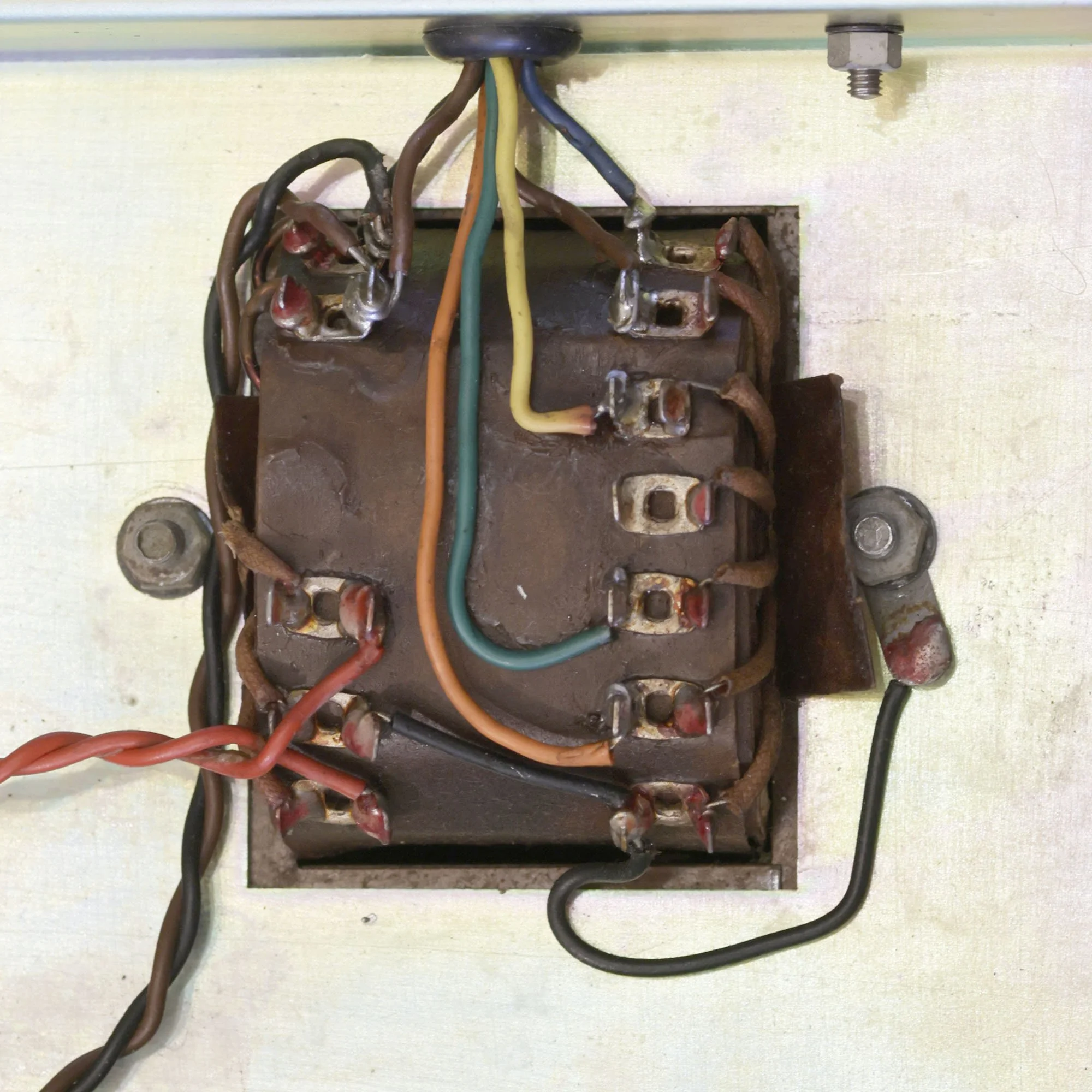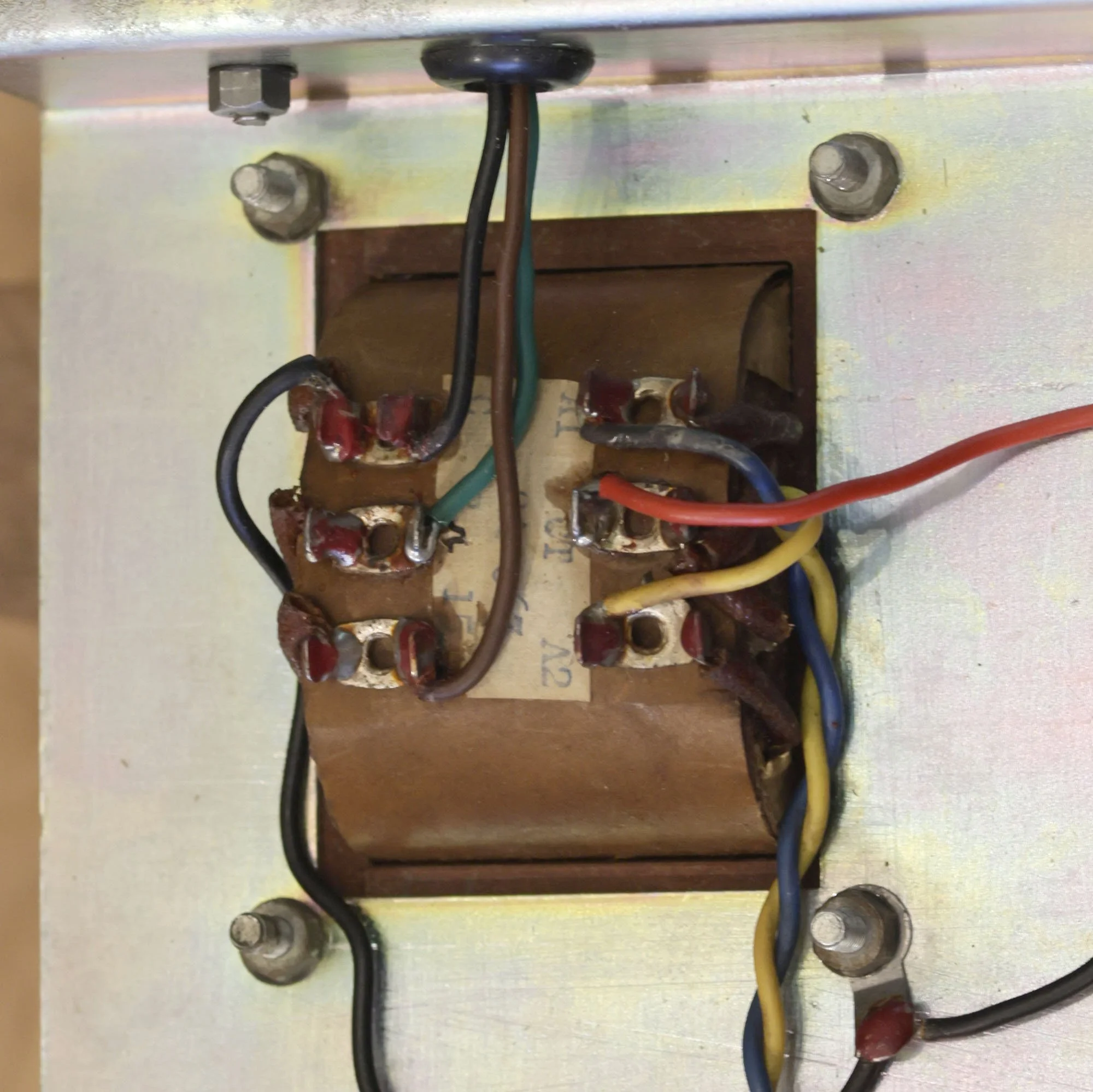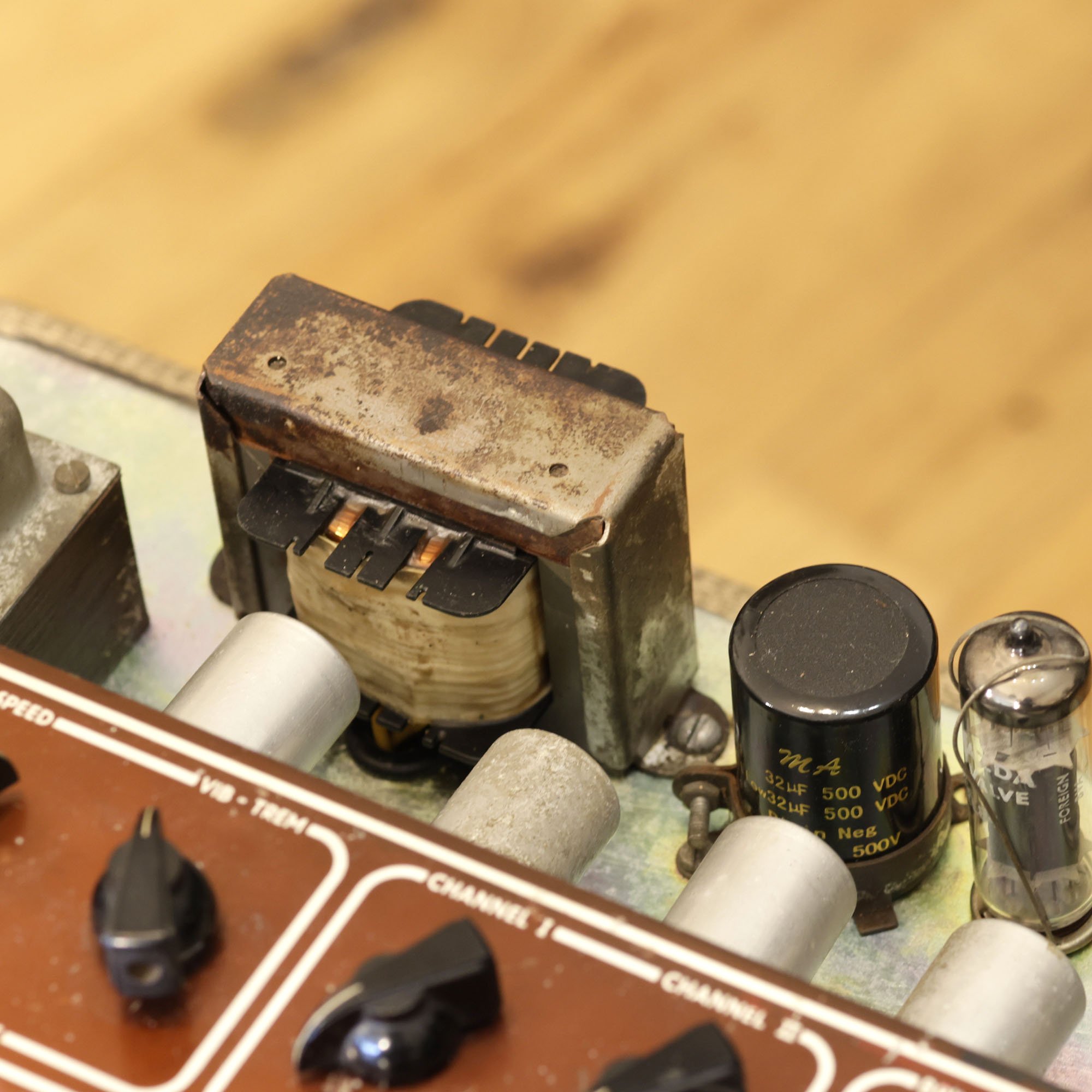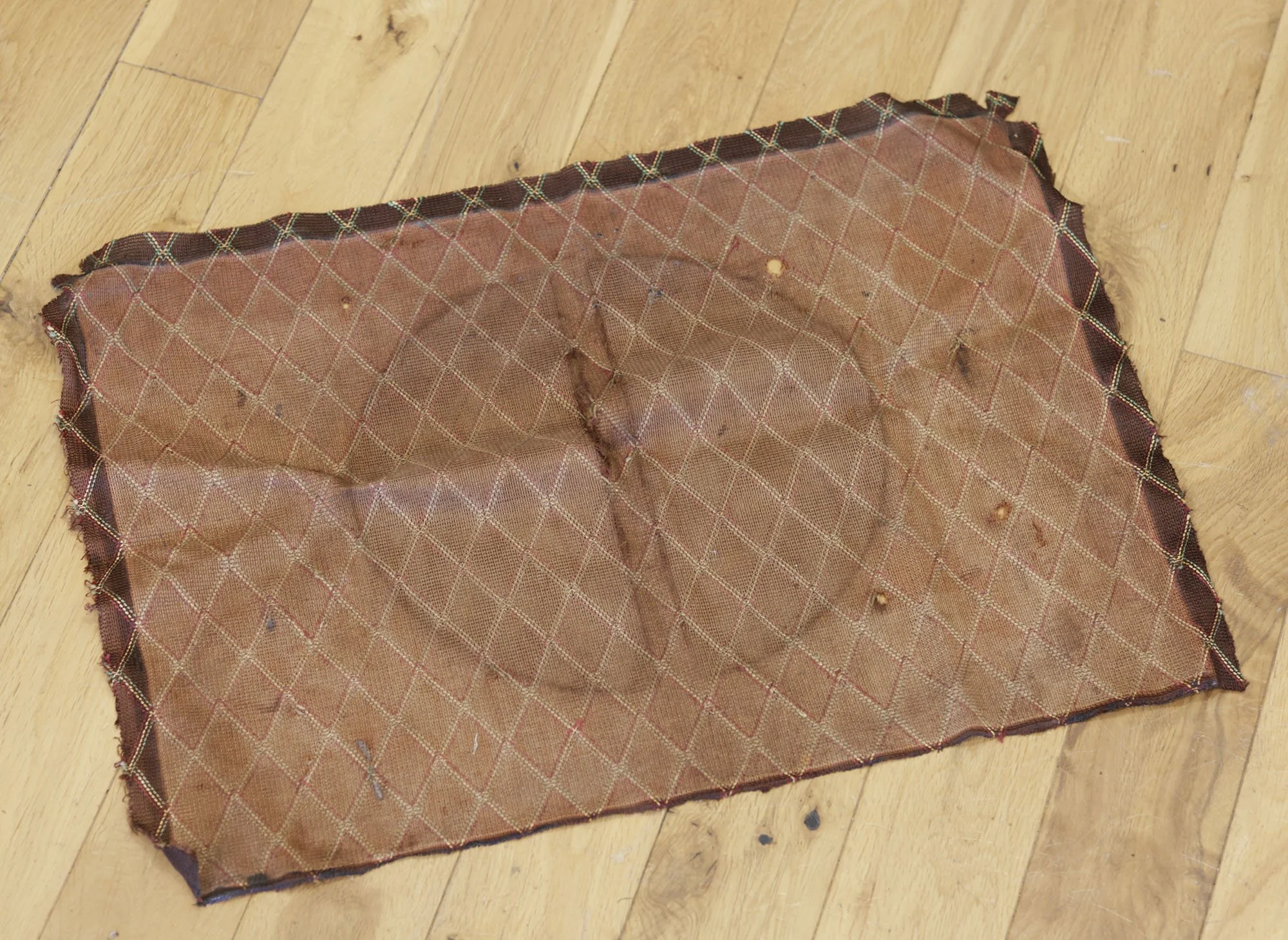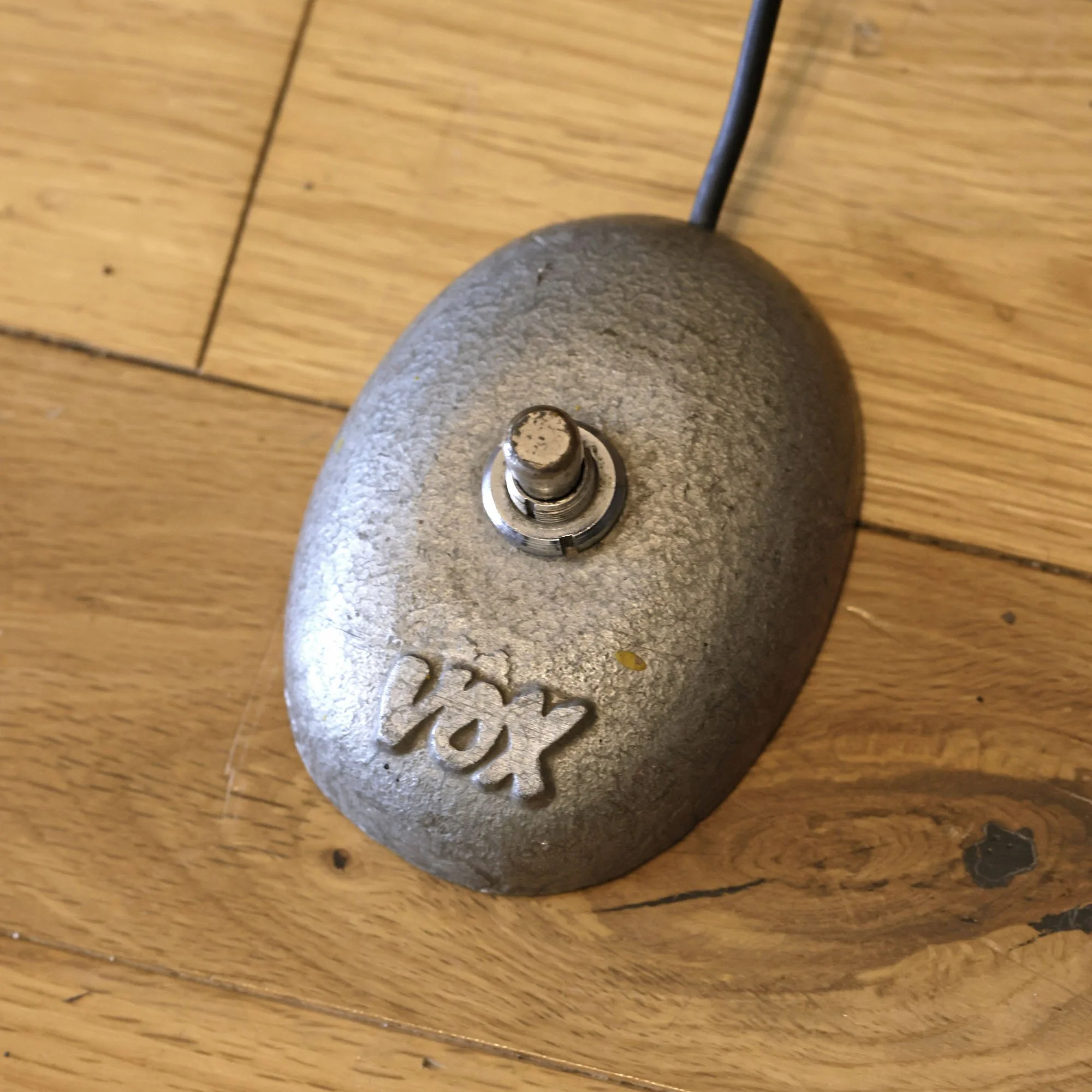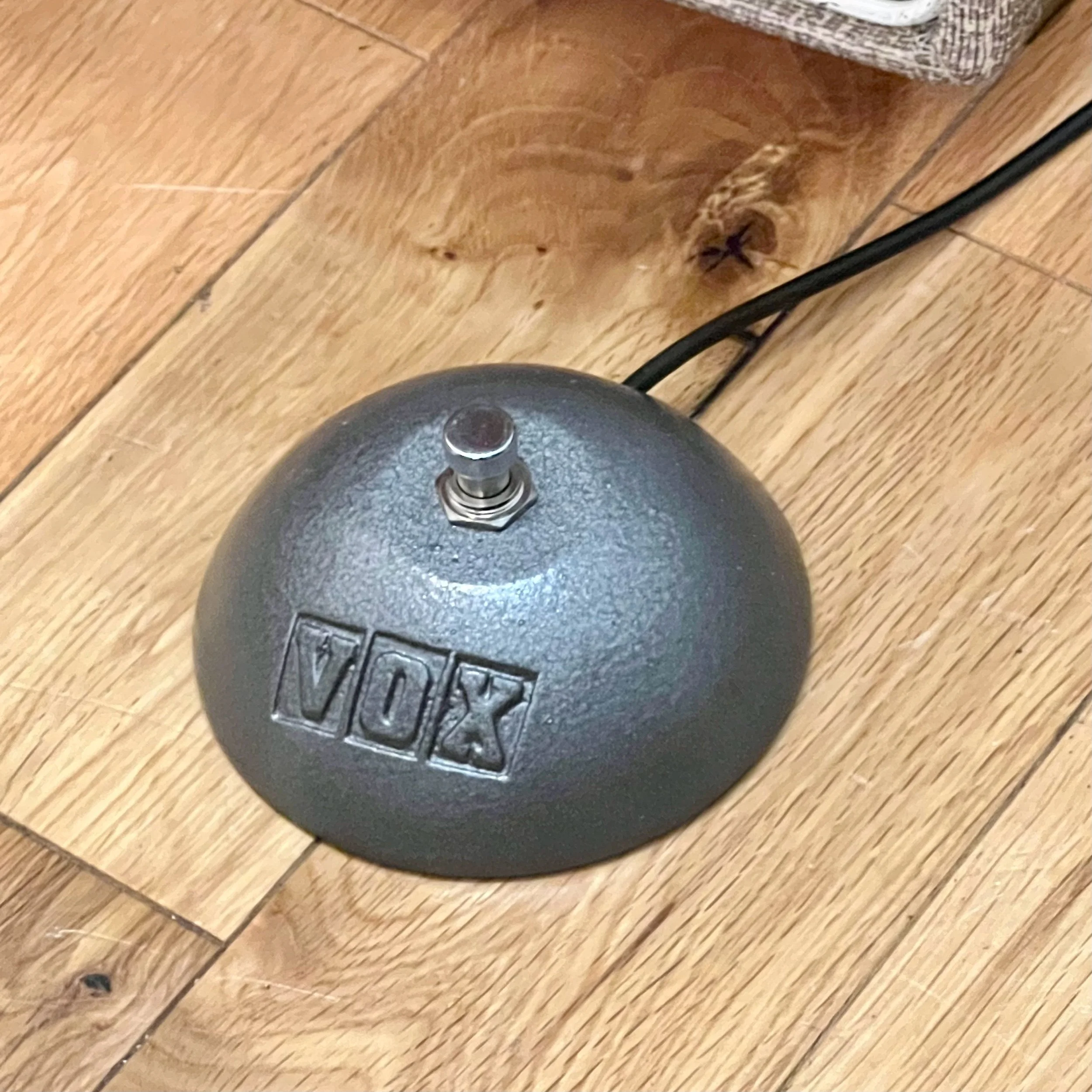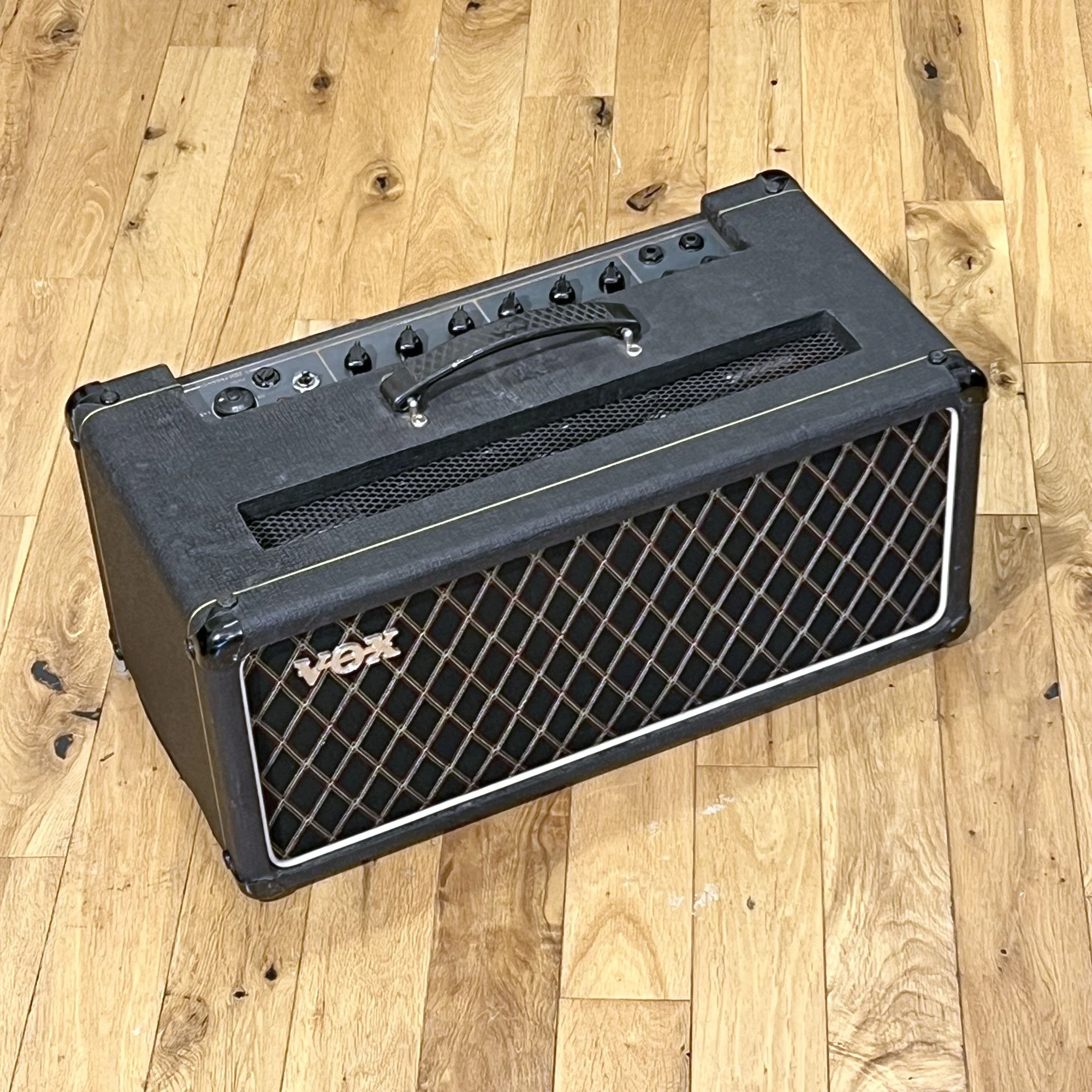 Image 1 of 18
Image 1 of 18

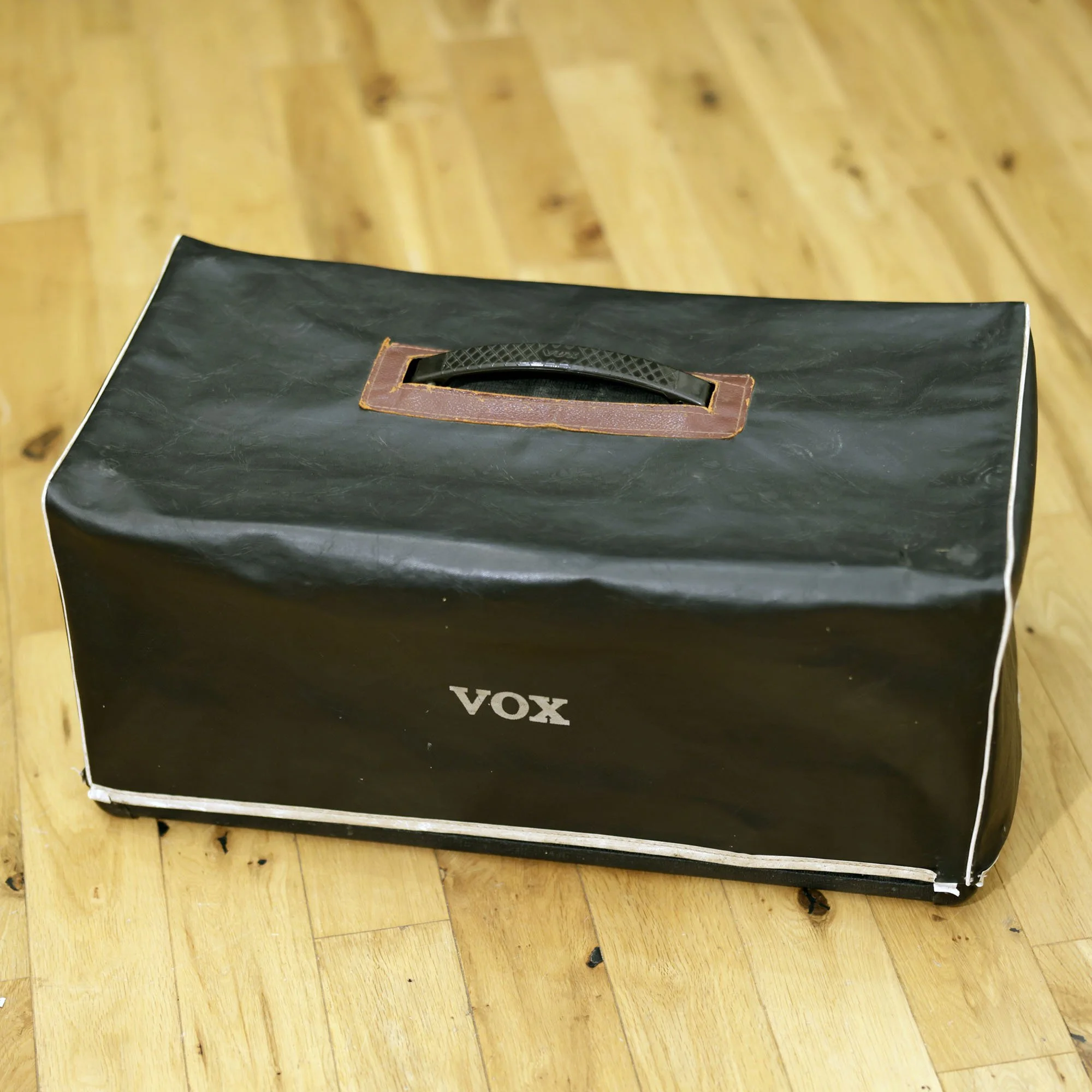 Image 2 of 18
Image 2 of 18

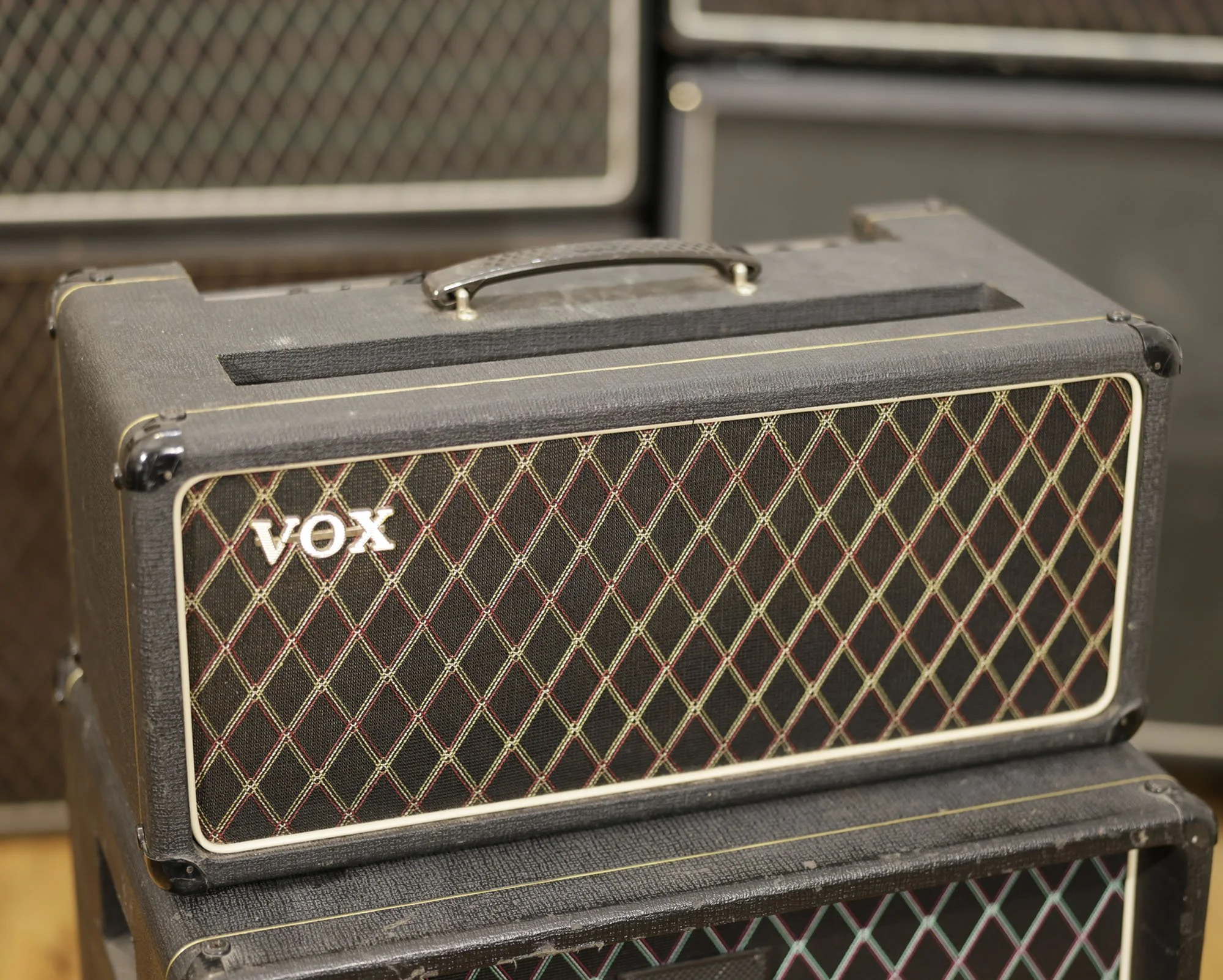 Image 3 of 18
Image 3 of 18

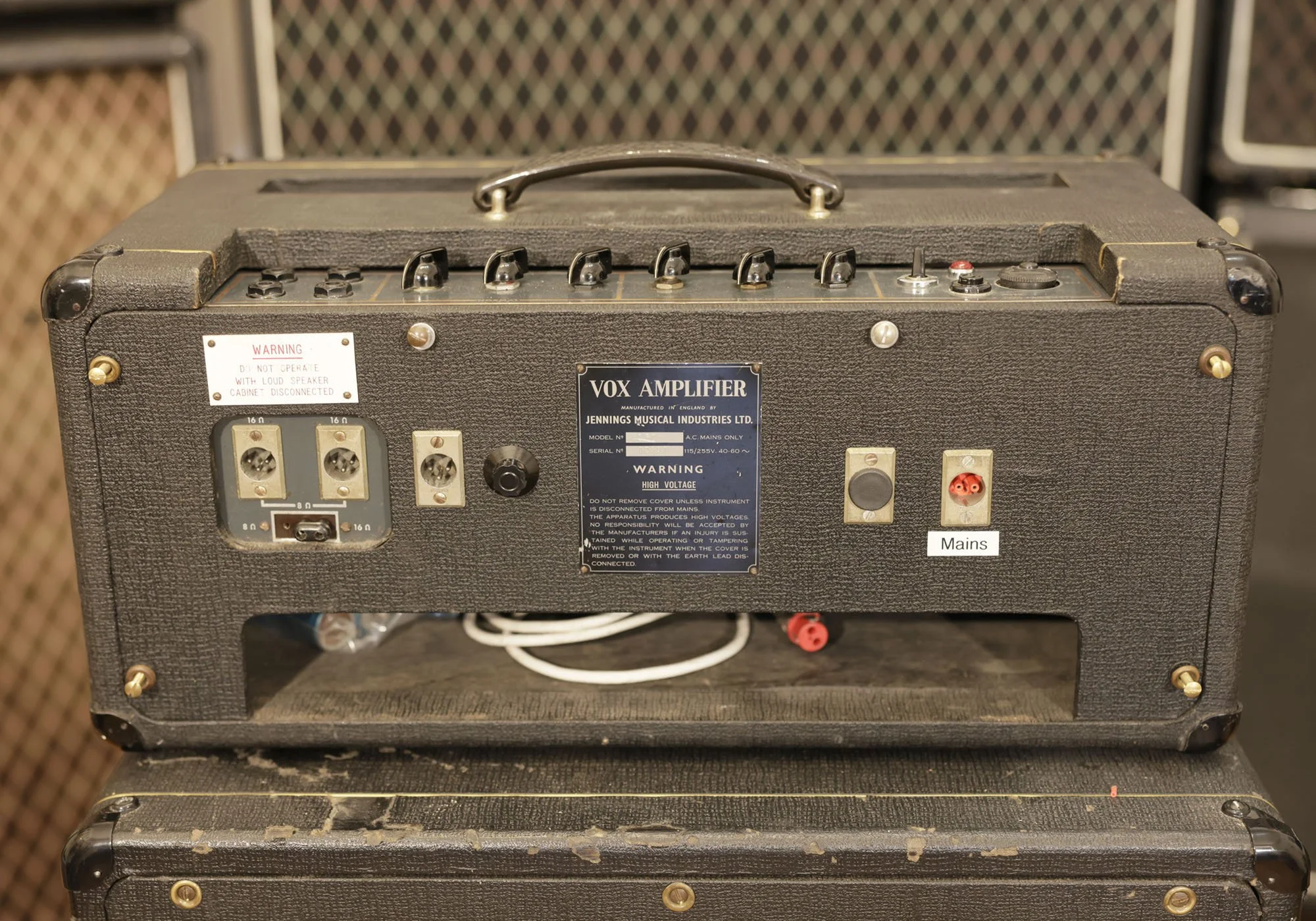 Image 4 of 18
Image 4 of 18

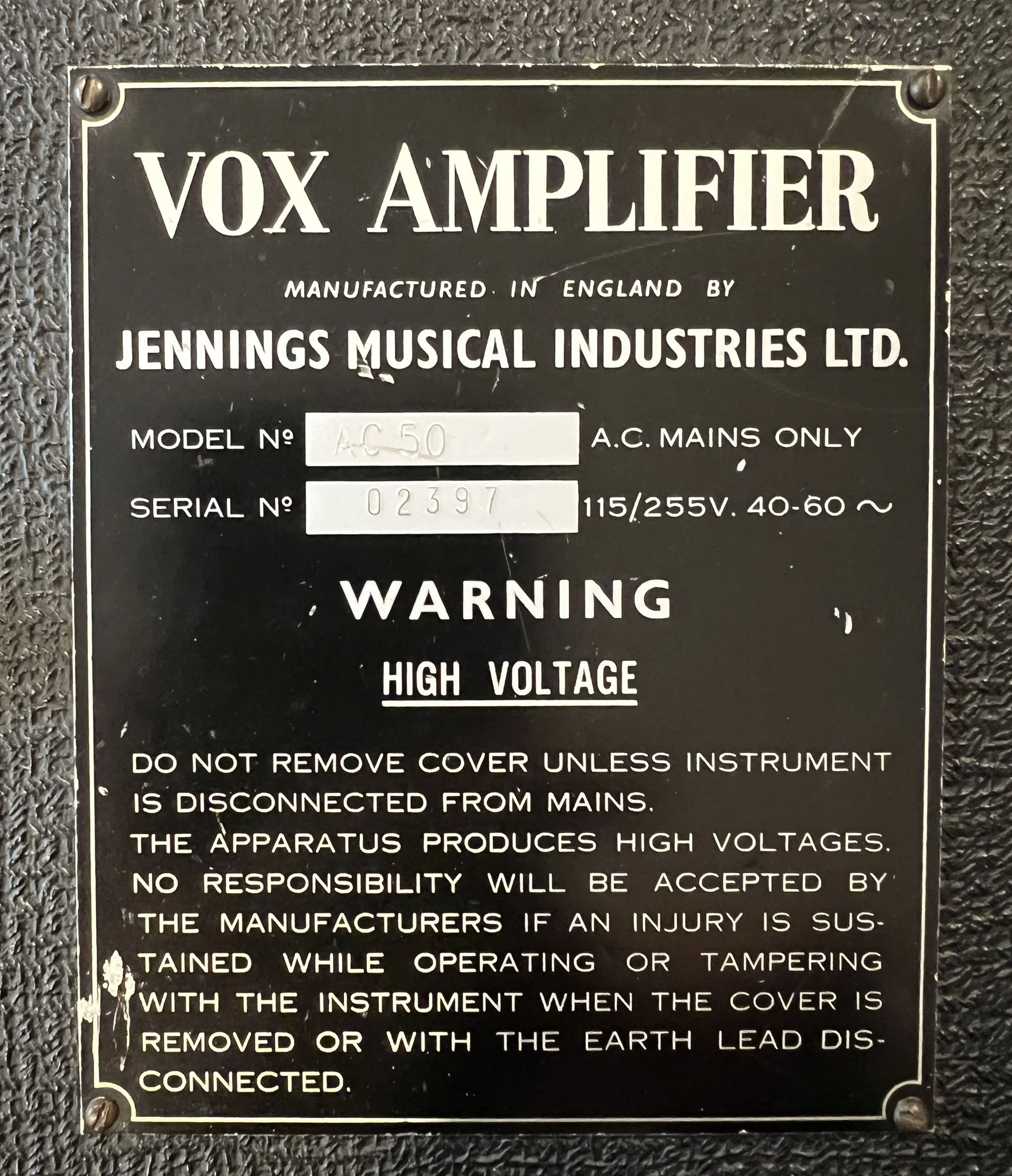 Image 5 of 18
Image 5 of 18

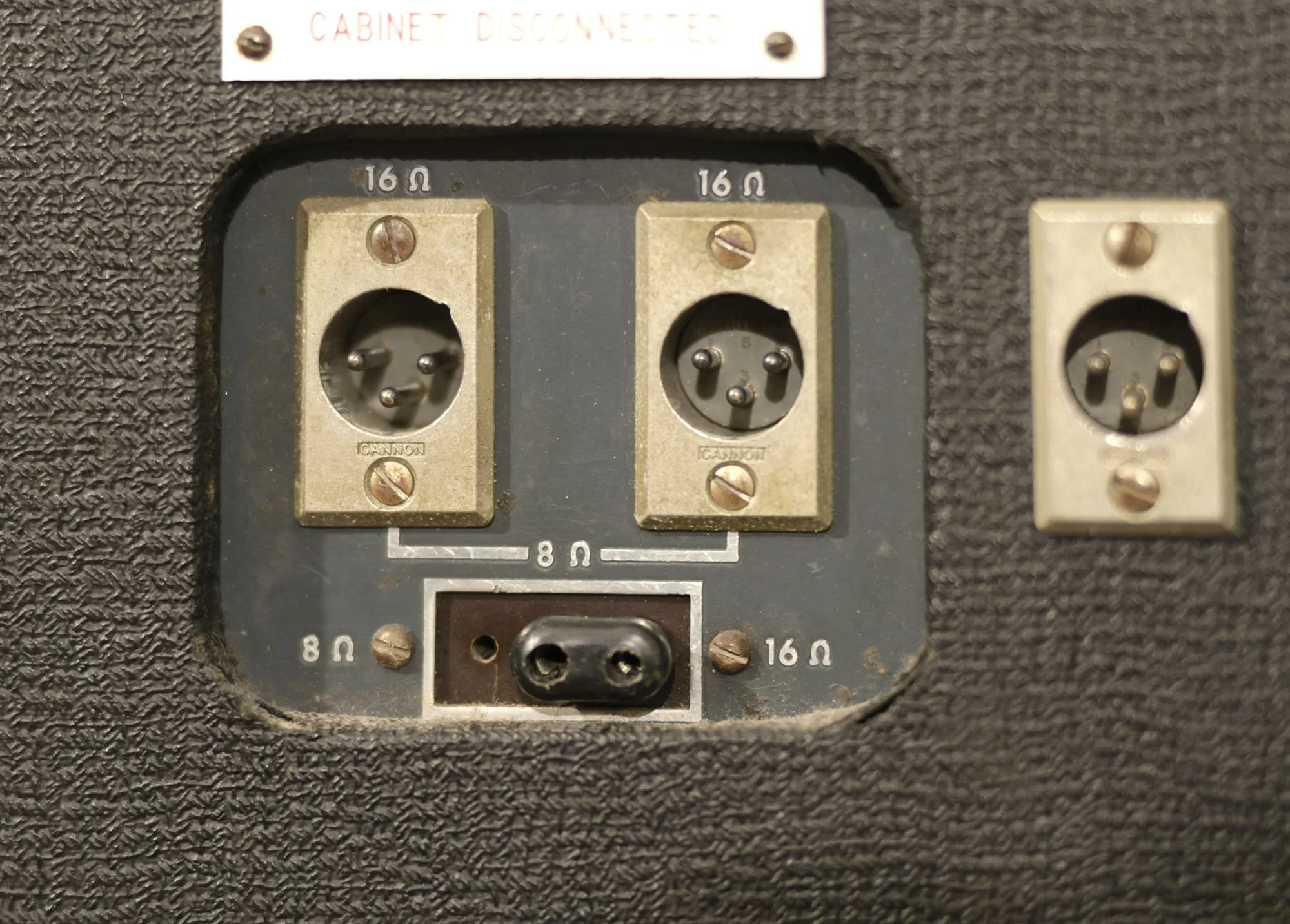 Image 6 of 18
Image 6 of 18

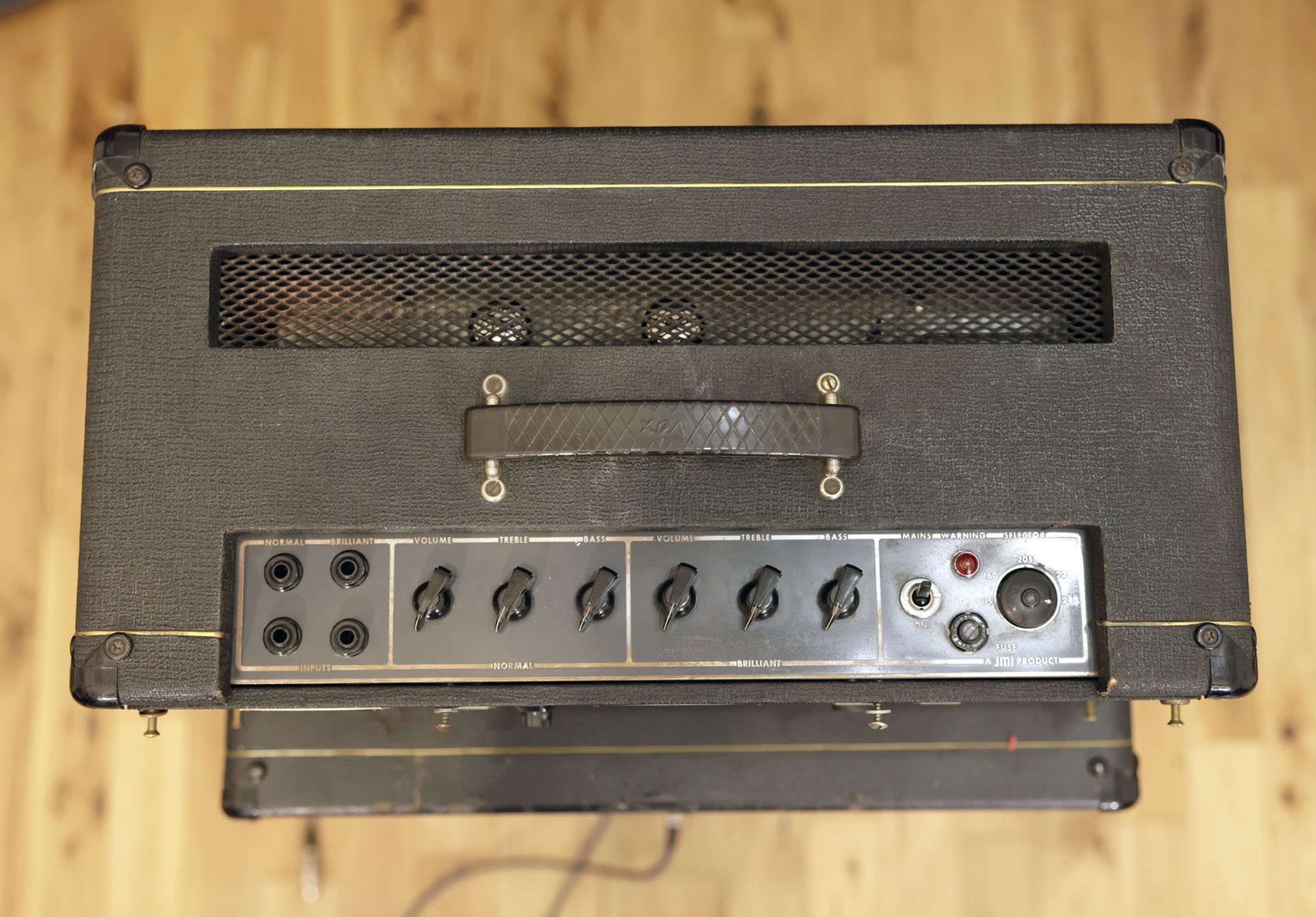 Image 7 of 18
Image 7 of 18

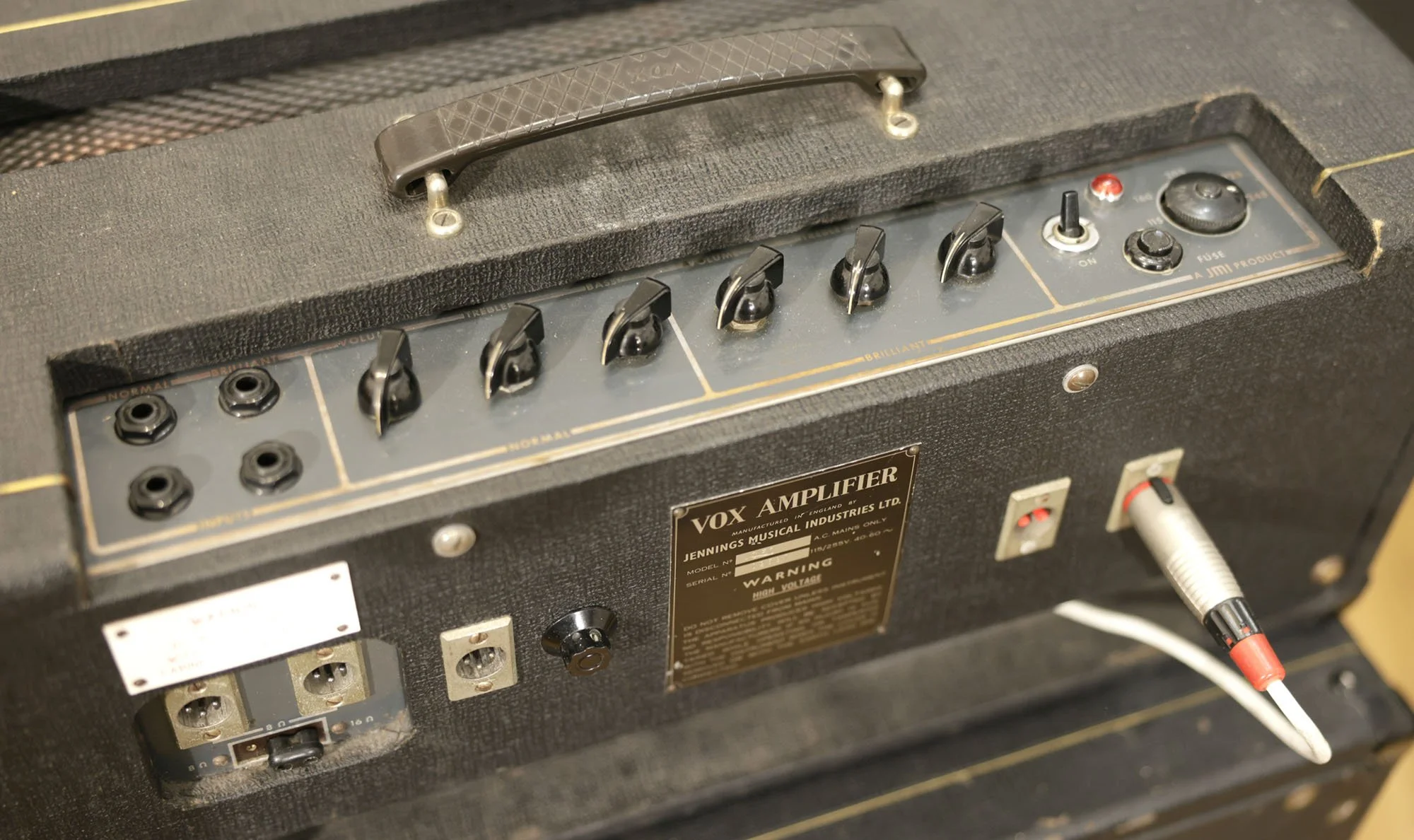 Image 8 of 18
Image 8 of 18

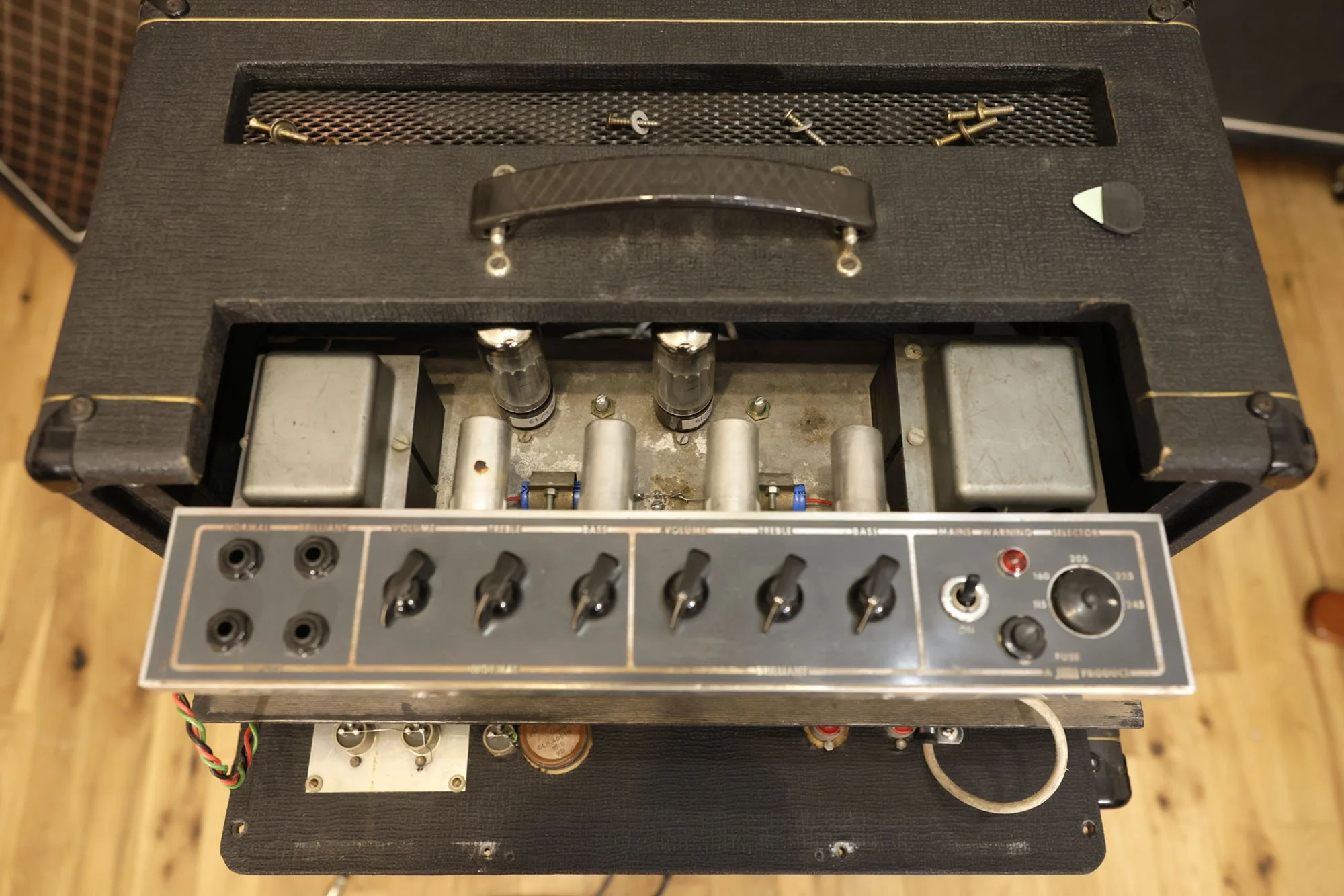 Image 9 of 18
Image 9 of 18

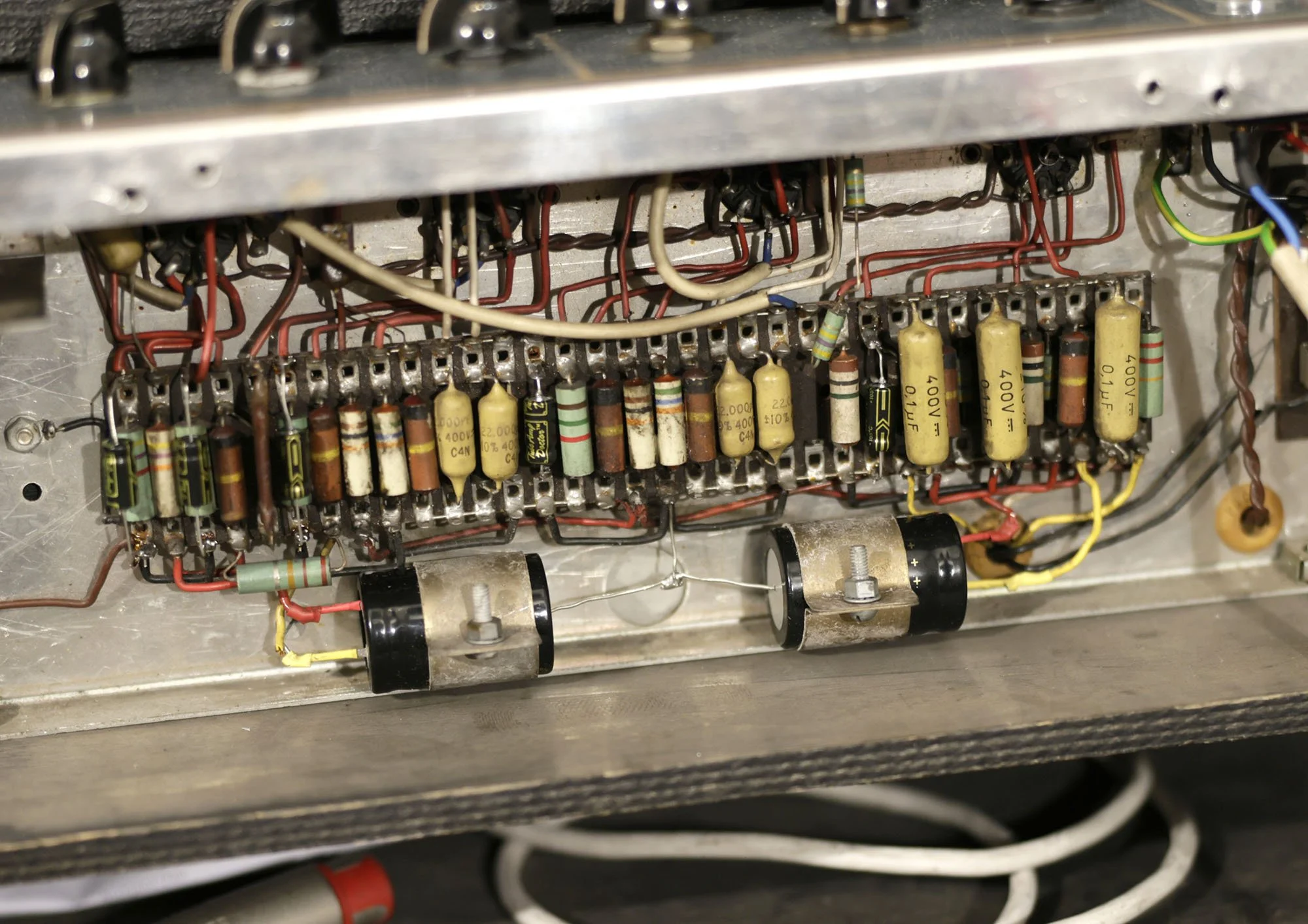 Image 10 of 18
Image 10 of 18

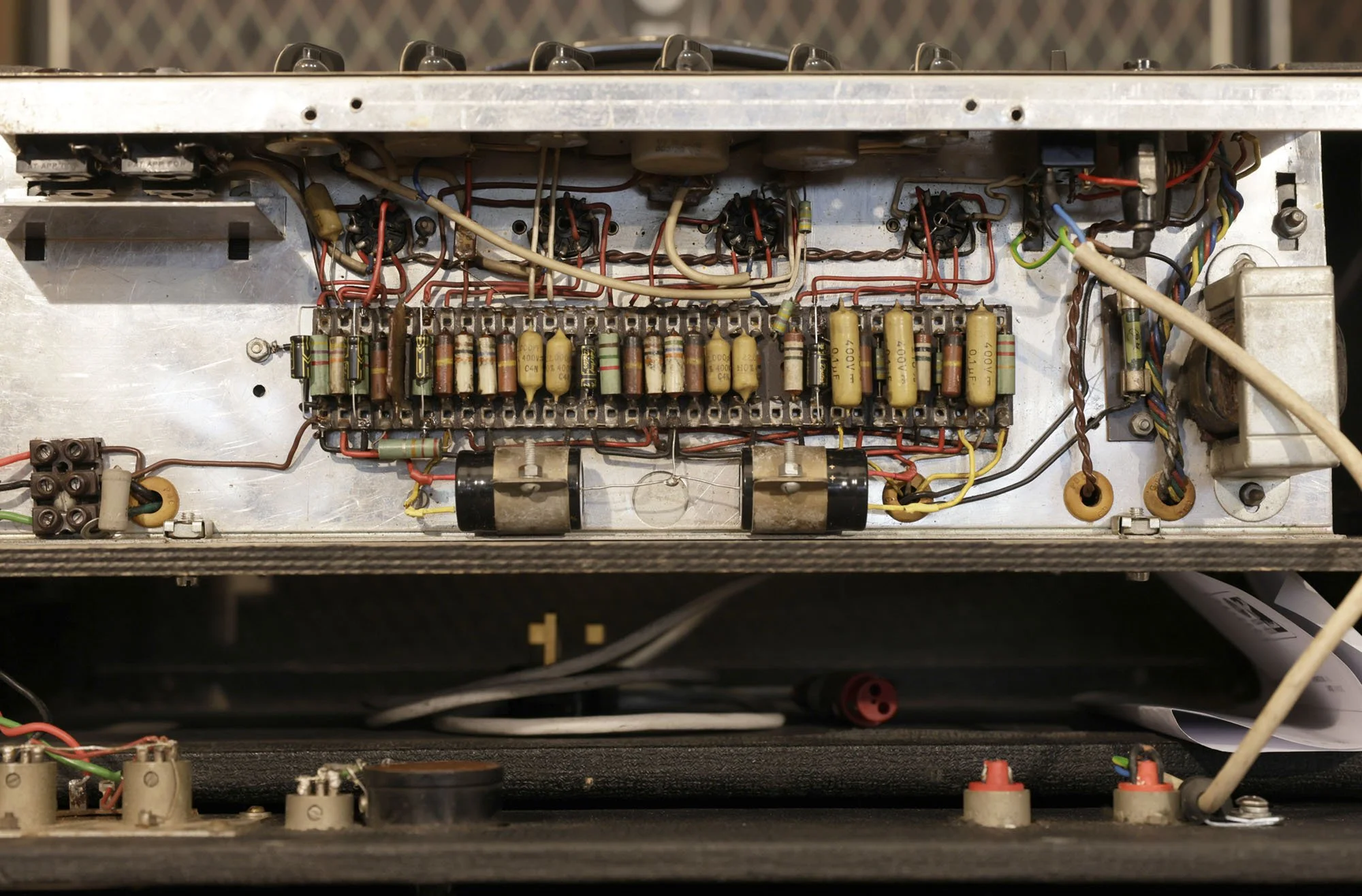 Image 11 of 18
Image 11 of 18

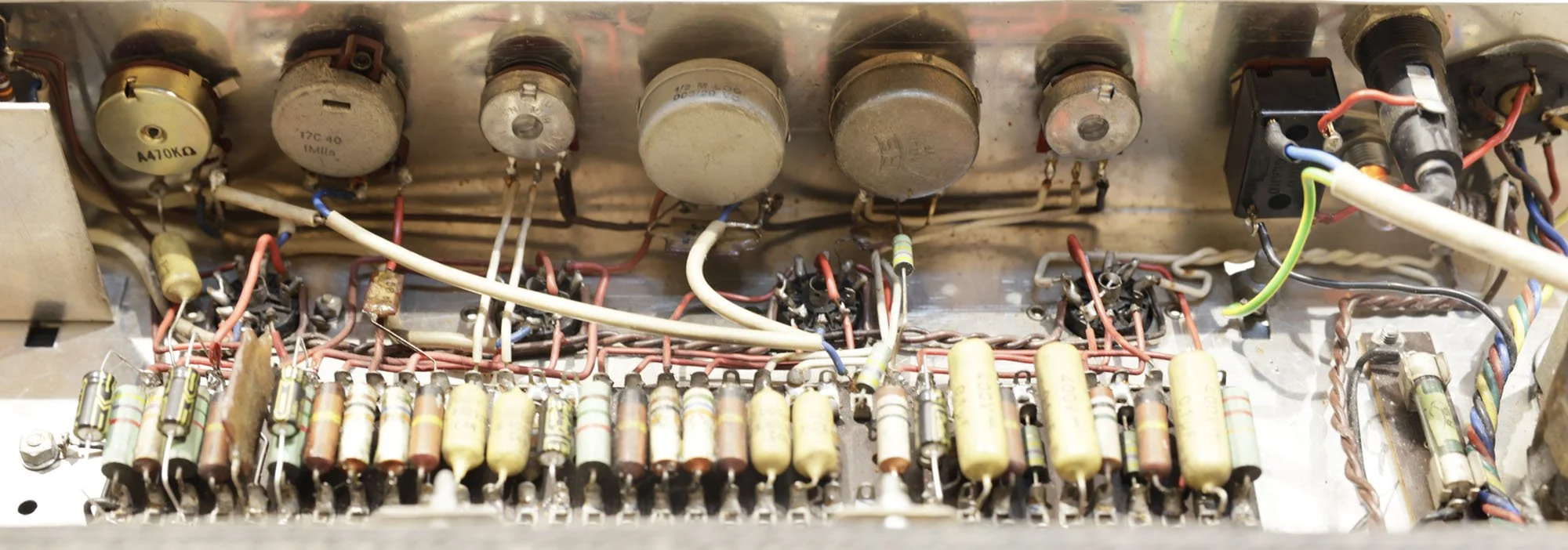 Image 12 of 18
Image 12 of 18

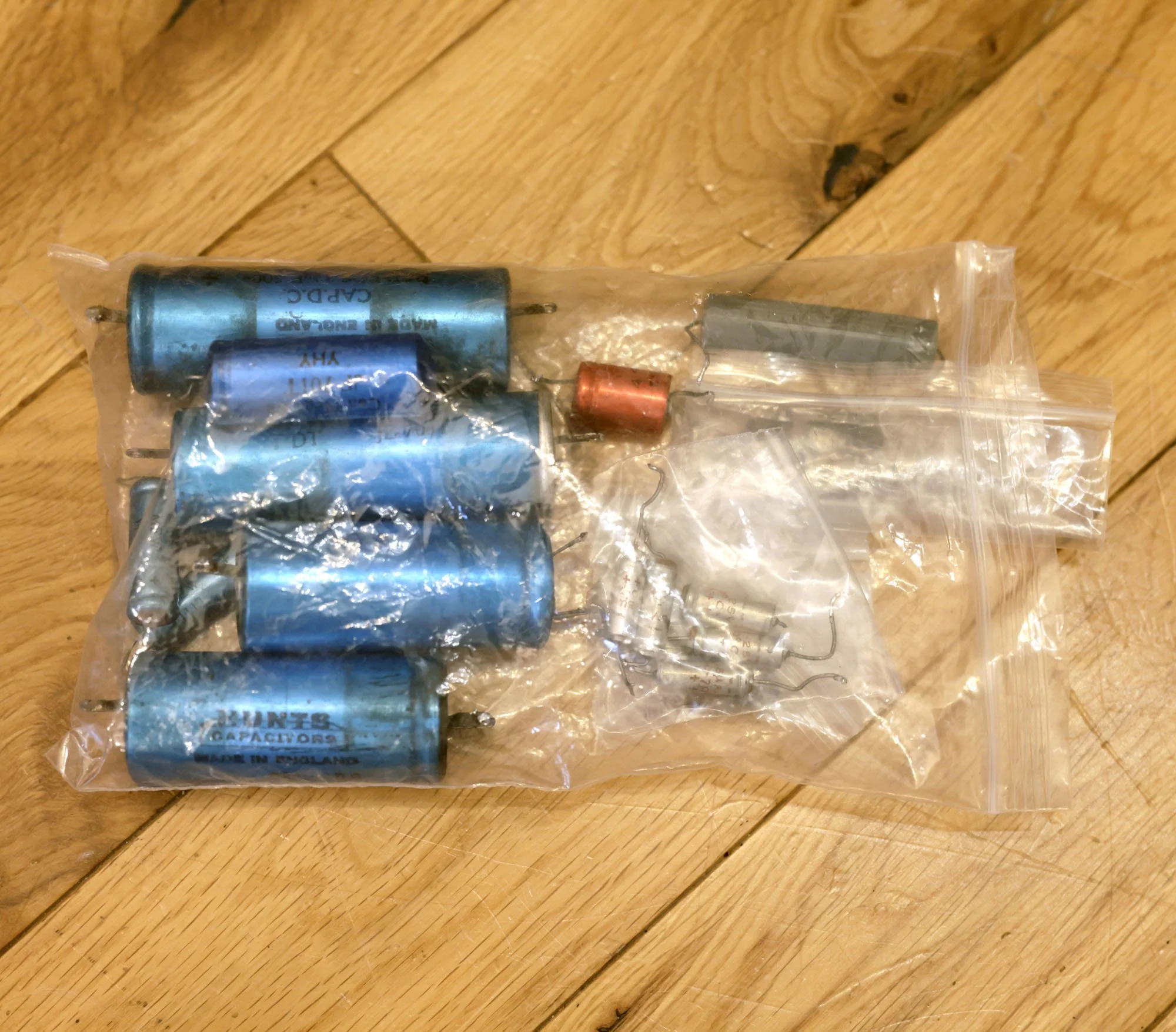 Image 13 of 18
Image 13 of 18

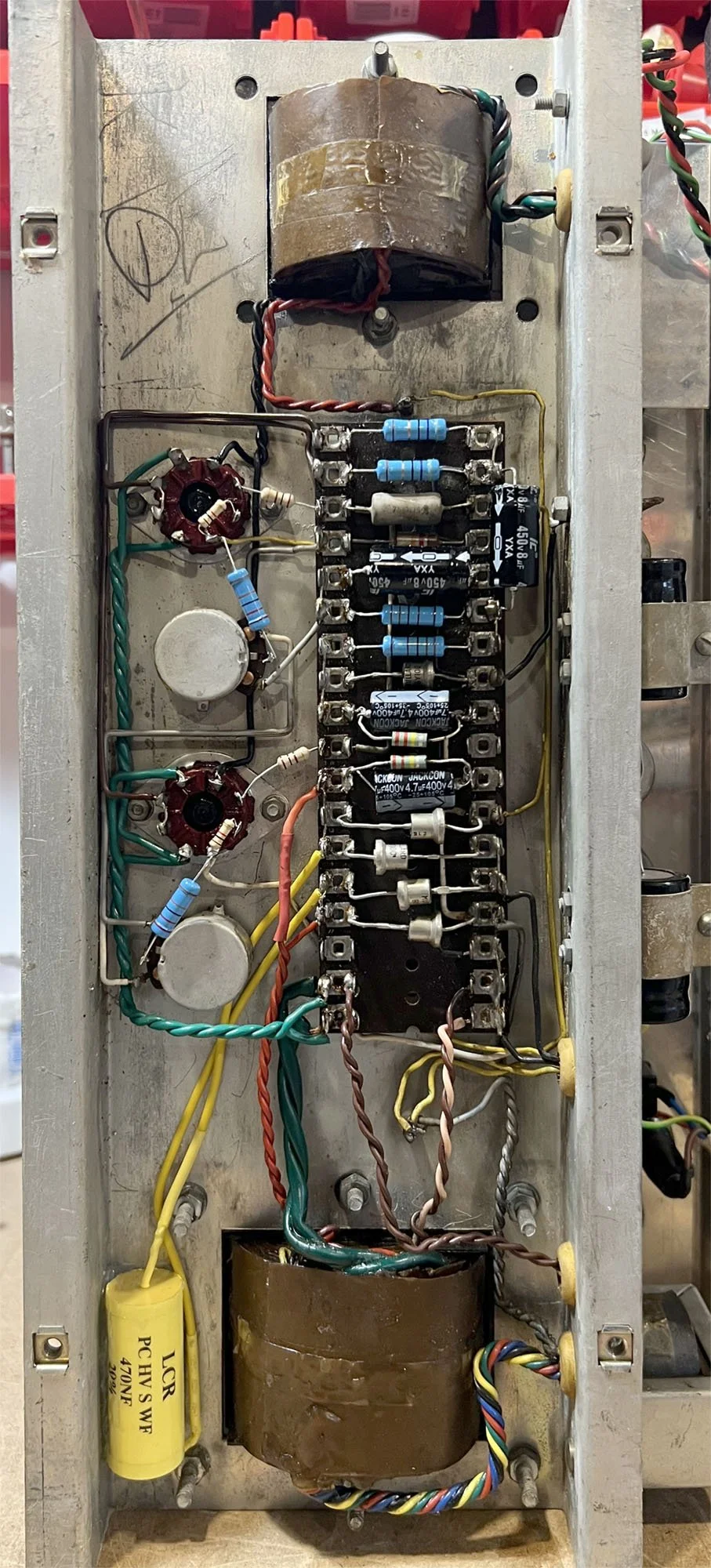 Image 14 of 18
Image 14 of 18

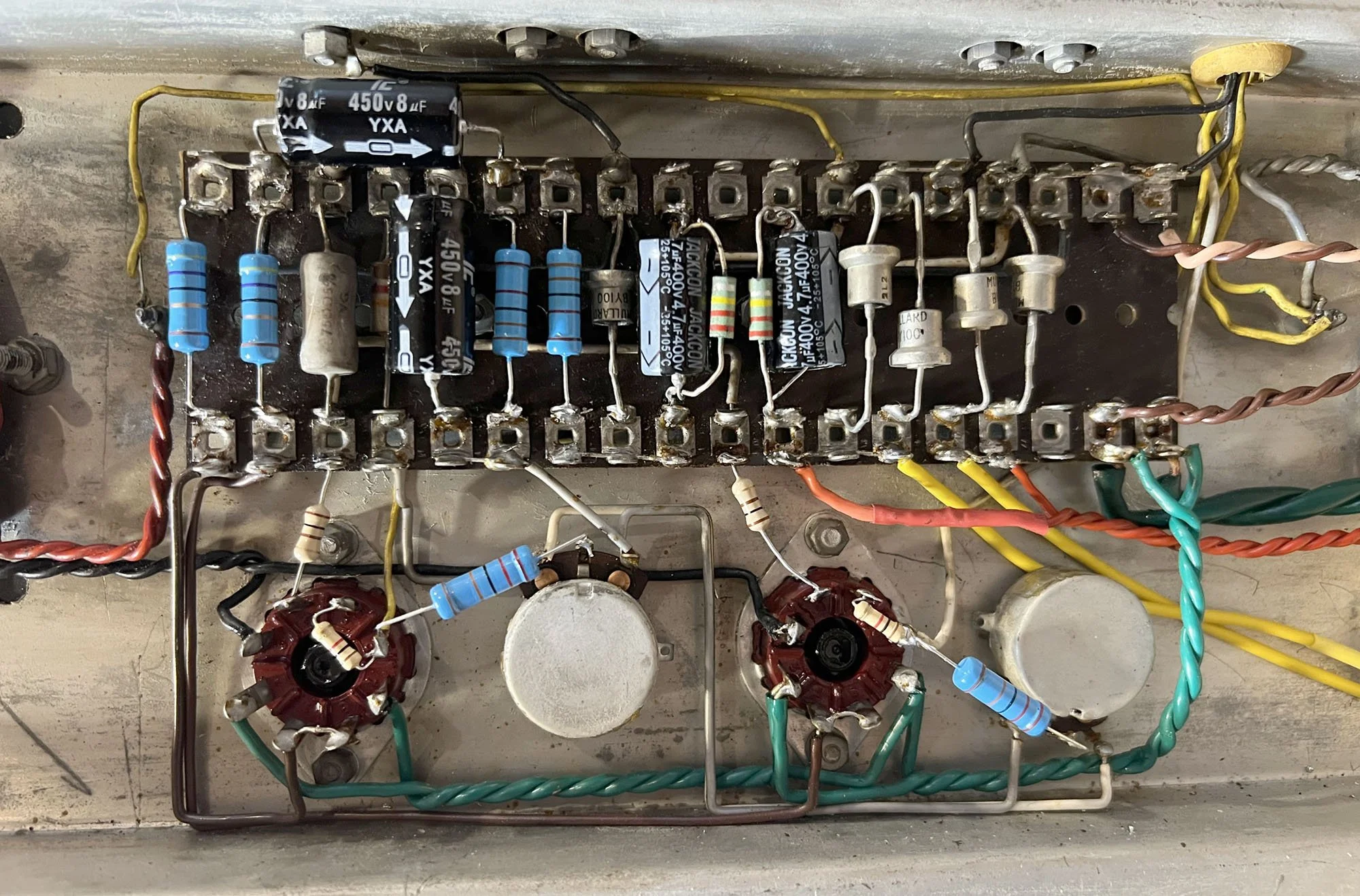 Image 15 of 18
Image 15 of 18

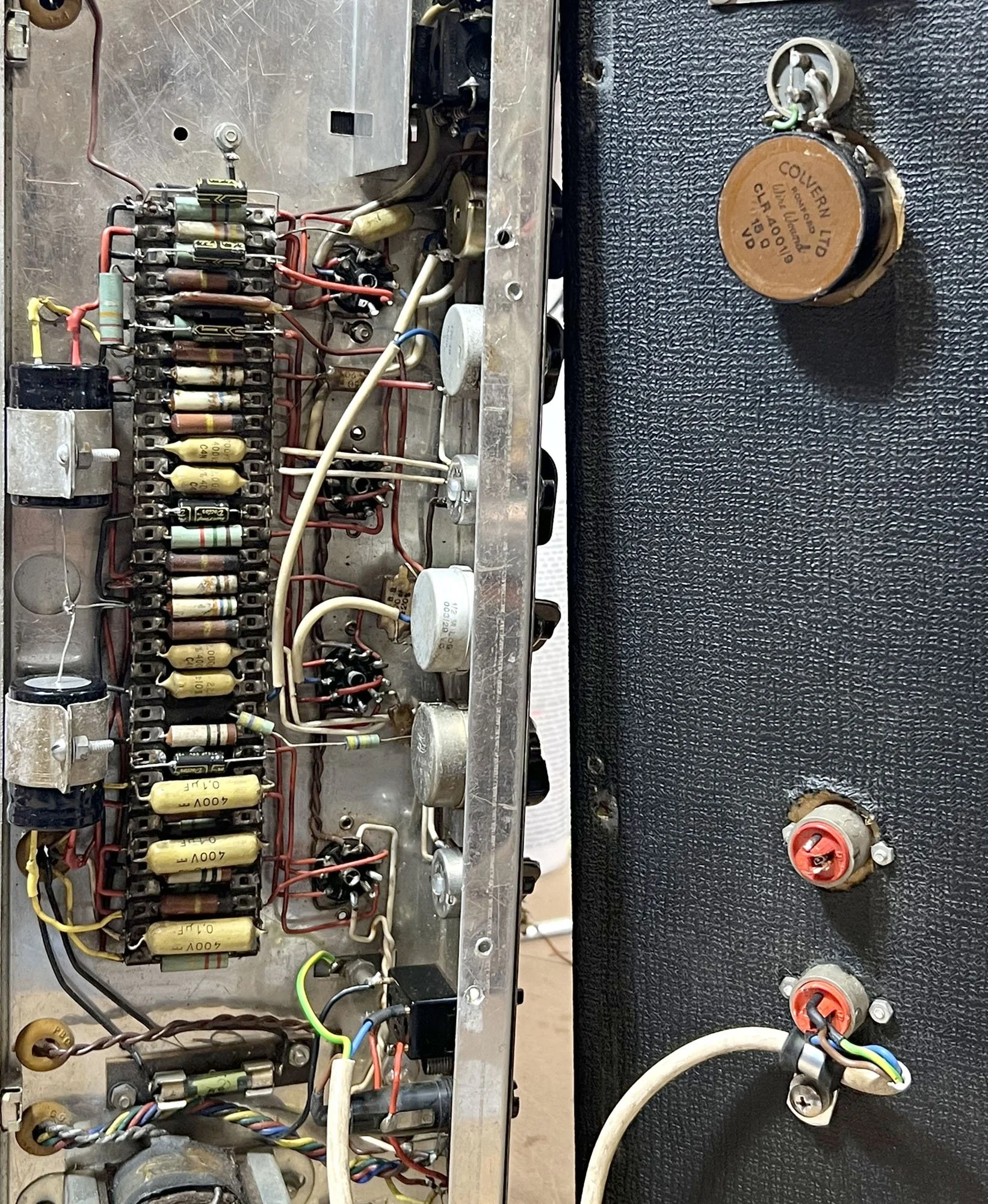 Image 16 of 18
Image 16 of 18

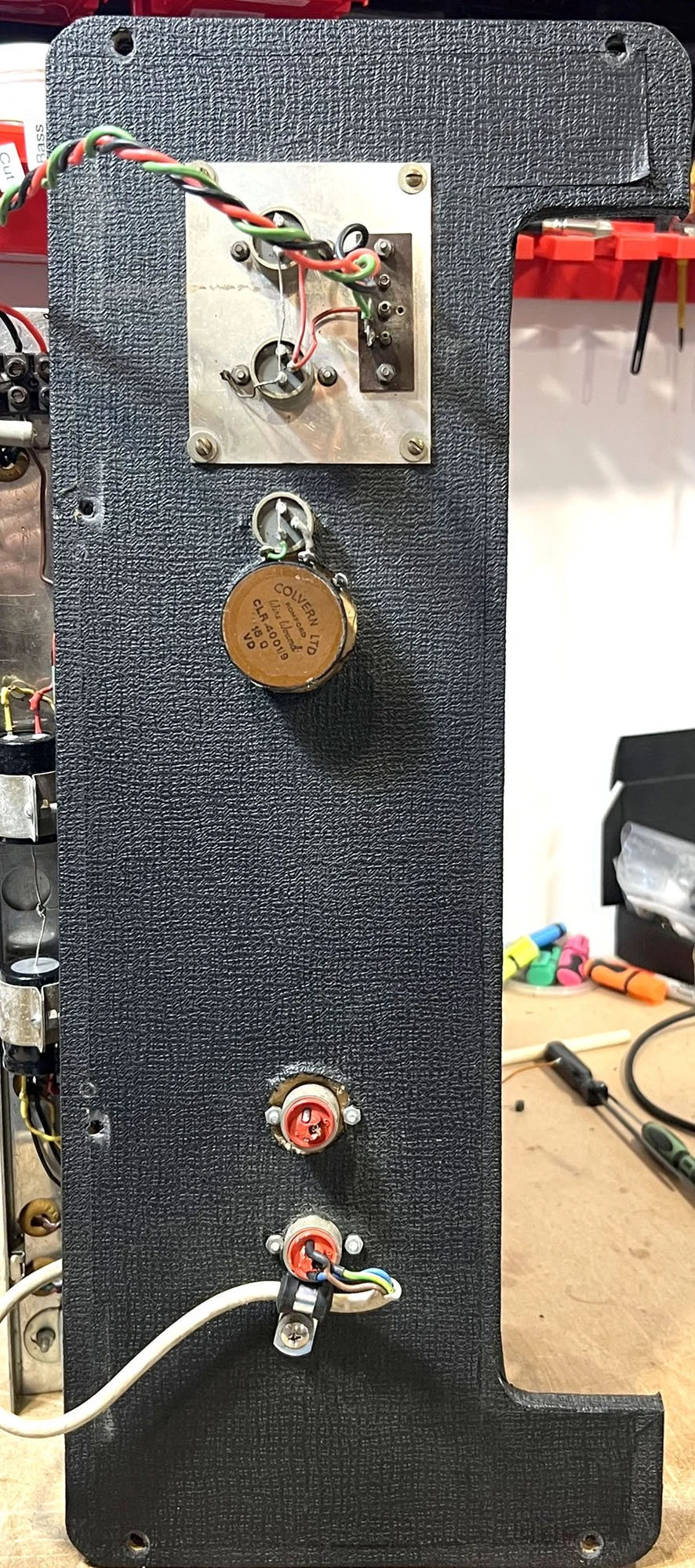 Image 17 of 18
Image 17 of 18

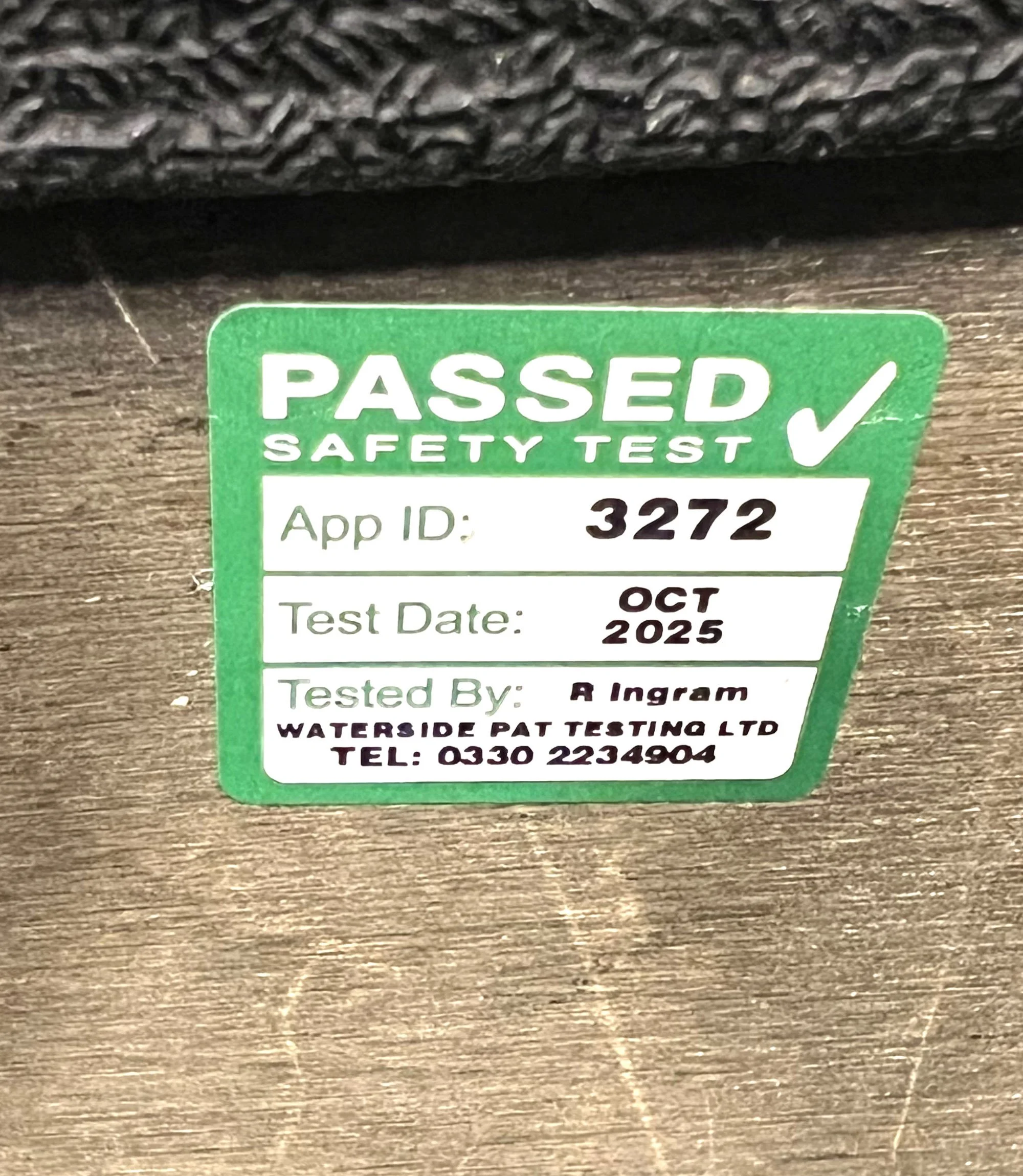 Image 18 of 18
Image 18 of 18



















1965 Vox AC50 MkIII head
Early AC50 Mk3 in excellent condition, fully working and sounding great.
When the AC30 couldn’t deliver enough volume for the Beatles and other mid-60s bands (in larger venues and over the screaming fans!) Vox recognised that they needed to compete with Fender’s more powerful options and the AC50 was born. In contrast to the AC30, the AC50 (and AC80/100) design was based on EL34 power valves that could deliver more output and Vox dropped the complex vibrato/tremolo circuit. The result was a great sounding, uncomplicated and reliable amp that continued in production in various guises until at least 1975.
Perhaps because they offer far more bass than the established AC30, AC50 amps are often underrated yet provide iconic, rich tones for which Vox is celebrated across generations. They are not lacking in top end but - unless the bass is dialed down a long way - they can appear to because these amps are capable of huge bass response. As such, and especially when paired with Vox ‘Foundation’ cabs (1×18), they make fantastic bass amps as well as guitar amps and Vox marketed them for both.
AC50 MkIII amps have two independent channels (one ‘Normal’ and one more treble-voiced ‘Brilliant’ channel) both of which incorporate the Top Boost tone stack that Vox had used on the later AC30s. The channels can also be used simultaneously (using a Y-switch or cable) for even more tonal options.
This is a third-generation AC50 MkIII head built to schematic OS/072 so far as I can tell. It was probably built by Triumph, as there is no stamp on the chassis, and would therefore have been among the first diode rectified amps built after JMI switched from valve-rectifier to a solid-state rectifier for the AC50 in (according to Jim Elyea’s excellent book) January 1965. It seems probable that this one dates to early 1965, therefore, although component date codes are mostly from the final quarter of 1964, so a slightly earlier date is feasible.
This amp is actually documented on the excellent AC50 website (see https://www.voxac50.org.uk/ac50_large_03a.htm) where it is shown with two LS-40 column speakers (that we also have in the Amporium) and with the Vox Echo Reverb unit offered for sale separetely.
All the transformers, and the vast majority of the preamp components, are original and this is another great sounding AC50. Amazingly, this one comes with its original dust cover which is still in fantastic condition. It seems to have spent much of its life with the Vox Echo Reverb unit and LS-40 PA speaker columns so - if you want the whole rig - please contact me to discuss.
The rear of this amp has some additional sockets including a second mains socket that was previously used to power the reverb unit and an additional output socket that was wired with a variable resistor, perhaps as a crude ‘line out’. The mains connector and the (now disconnected extra power socket) are XLR LNE connectors which are unusual to see these days but appear original (JMI used various mains connectors including hard wiring, Bulgin and Bellingh-Lee sockets as well as these). The additional sockets and the pot have been left in place for historic reasons but are currently disconnected.
The mains lead and earth have been rewired, filter caps and cathode bybass caps replaced, and some work has been done to the power and bias supplies to ensure that the power amp is healthy. Three of the pots had already been replaced by a previous owner but they and the three original Egen pots have cleaned up and all work well. Any original components that have been replaced will be supplied with the amp.
This is offered with a complete complement of vintage Mullard valves, all of which are testing strong and quiet. Needless to say - because these are the valves the amp was designed for - they sound fantastic.
The original XLR speaker sockets and impedance selector are in place and I can - at additional cost - make up and supply the correct leads to connect this to your cab, or I can make an adapter to enable you to use your existing 1/4” jack speaker cables and cabs.
Fully checked over by our consult amp tech, this also comes with a recent October 2025 PAT test so it’s good to go.
Early AC50 Mk3 in excellent condition, fully working and sounding great.
When the AC30 couldn’t deliver enough volume for the Beatles and other mid-60s bands (in larger venues and over the screaming fans!) Vox recognised that they needed to compete with Fender’s more powerful options and the AC50 was born. In contrast to the AC30, the AC50 (and AC80/100) design was based on EL34 power valves that could deliver more output and Vox dropped the complex vibrato/tremolo circuit. The result was a great sounding, uncomplicated and reliable amp that continued in production in various guises until at least 1975.
Perhaps because they offer far more bass than the established AC30, AC50 amps are often underrated yet provide iconic, rich tones for which Vox is celebrated across generations. They are not lacking in top end but - unless the bass is dialed down a long way - they can appear to because these amps are capable of huge bass response. As such, and especially when paired with Vox ‘Foundation’ cabs (1×18), they make fantastic bass amps as well as guitar amps and Vox marketed them for both.
AC50 MkIII amps have two independent channels (one ‘Normal’ and one more treble-voiced ‘Brilliant’ channel) both of which incorporate the Top Boost tone stack that Vox had used on the later AC30s. The channels can also be used simultaneously (using a Y-switch or cable) for even more tonal options.
This is a third-generation AC50 MkIII head built to schematic OS/072 so far as I can tell. It was probably built by Triumph, as there is no stamp on the chassis, and would therefore have been among the first diode rectified amps built after JMI switched from valve-rectifier to a solid-state rectifier for the AC50 in (according to Jim Elyea’s excellent book) January 1965. It seems probable that this one dates to early 1965, therefore, although component date codes are mostly from the final quarter of 1964, so a slightly earlier date is feasible.
This amp is actually documented on the excellent AC50 website (see https://www.voxac50.org.uk/ac50_large_03a.htm) where it is shown with two LS-40 column speakers (that we also have in the Amporium) and with the Vox Echo Reverb unit offered for sale separetely.
All the transformers, and the vast majority of the preamp components, are original and this is another great sounding AC50. Amazingly, this one comes with its original dust cover which is still in fantastic condition. It seems to have spent much of its life with the Vox Echo Reverb unit and LS-40 PA speaker columns so - if you want the whole rig - please contact me to discuss.
The rear of this amp has some additional sockets including a second mains socket that was previously used to power the reverb unit and an additional output socket that was wired with a variable resistor, perhaps as a crude ‘line out’. The mains connector and the (now disconnected extra power socket) are XLR LNE connectors which are unusual to see these days but appear original (JMI used various mains connectors including hard wiring, Bulgin and Bellingh-Lee sockets as well as these). The additional sockets and the pot have been left in place for historic reasons but are currently disconnected.
The mains lead and earth have been rewired, filter caps and cathode bybass caps replaced, and some work has been done to the power and bias supplies to ensure that the power amp is healthy. Three of the pots had already been replaced by a previous owner but they and the three original Egen pots have cleaned up and all work well. Any original components that have been replaced will be supplied with the amp.
This is offered with a complete complement of vintage Mullard valves, all of which are testing strong and quiet. Needless to say - because these are the valves the amp was designed for - they sound fantastic.
The original XLR speaker sockets and impedance selector are in place and I can - at additional cost - make up and supply the correct leads to connect this to your cab, or I can make an adapter to enable you to use your existing 1/4” jack speaker cables and cabs.
Fully checked over by our consult amp tech, this also comes with a recent October 2025 PAT test so it’s good to go.

